
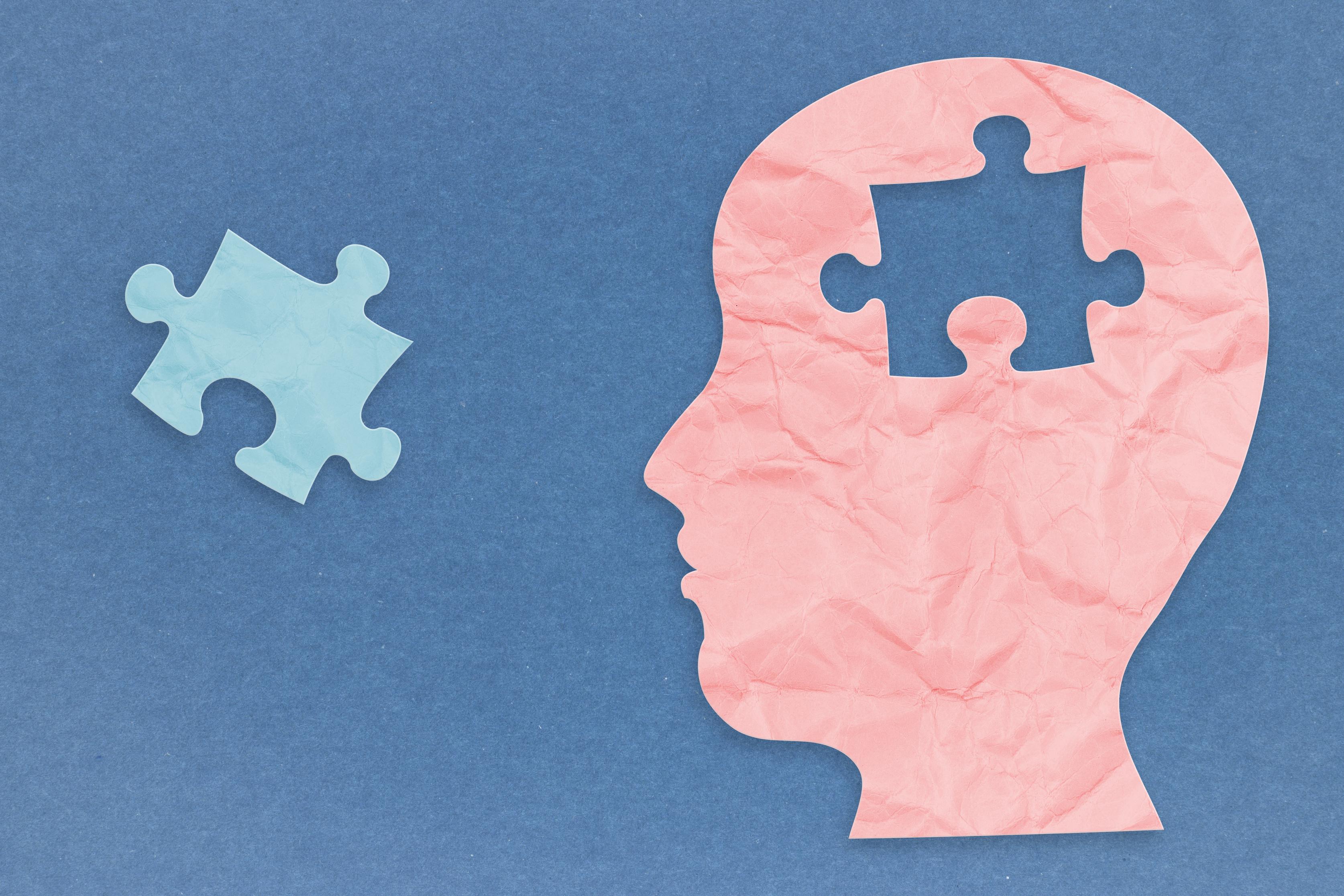
MARCH 2023 N. 23 ISSN 2704-6540
Youth Employment Magazine
Director’s Editorial
Youth Mental Health and the Pandemic: Time to Defuse the Ticking Time Bomb
NEET: recognising fragilities but also desires and potential. The Direction Employment conference in Bologna
NEETs between inequalities and gaps
News from the Fund for Regional Cooperation
Special Issue on mental health: Youth mental health negative effects after the pandemic
Supported Employment for young adults with mental health issues in Norway – a good practice example from the Lost Millennials project
Mental health among NEETs in rural areas
Pandemic and mental health: the negative effects for youth
Precarious employment and mental health: forthcoming research insights from the YOUTHShare project
What have we learned for the mental health of young people during the Covid-19 pandemic? Research testimonies from the YOUTHShare project
Dealing with Issues of Mental Health in Coaching and Mentoring
Special Issue in mental health (Youth mental health negative effects after the pandemic)
Special Issue on mental health
Young people talk to Cowork4YOUTH about mental health and the pandemic
Young people’s mental health in Italy, Spain, Ireland and Greece: A review
The consequences of the COVID-19 pandemic on the mental health of the population
The effects of the pandemic on youth’s mental health
The effects of the COVID-19 pandemic in Extremadura: Youth, mental health and employment
Experiences and testimonials of NIITS - clients of youth home "Hidden likes"
The Covid-19 crisis worsened neurotic and psychotic disorders
Fear reveals the direction in which a society is moving
Impact of the Covid-19 pandemic on young people with mental problems who are not engaged in education, employment or training (NEETS) From the Projects A story with a happy ending
The First StayOn Co-Innovation Labs phase has finished!
1 Youth Employment Magazine
ЗЛОУПОТРЕБАТА С АЛКОХОЛ И НАРКОТИЦИ КАТО СТРАНИЧЕН ЕФЕКТ ОТ ПАНДЕМИЯТА
3 5 8 10 12 13 14 16 18 21 22 24 27 30 32 34 36 38 40 42 45 47 49 51 56 56 57 59
Co-innovation lab in Italy: a real success! Contents
BlueGeneration Project achievements
Young Entrepreneurs Succeed, YES! Workshop
Effective strategies for NEETs to fight procrastination
The Cowork4YOUTH Observatory is here!
The LEAD Project – a real chance for the integration of young adults with disabilities into society
Experience exchanges between young adults with disabilities enrolled in LEAD project
Young adults with disabilities, involved in volunteering activities
Experience exchange between employers and young adults with disabilities
Up to the 30th of september, 158 young Portuguese adults with disabilities benefited from opportunities offered within the LEAD project
Beneficiaries of the LEAD project, attended the Youth Job Fair
New opportunities for young adults with disabilities enrolled in LEAD Project
Interest for Supported Employment – specialised service for stimulating employment and integration on the labour market of people with disabilities
Lithuania: the Department for the Affairs of People with Disabilities under the Ministry of Social Security and Labour, Member of the National Network of Supported Employment Services Providers
Young beneficiary of HAO, winner of a talent contest
“Supported Employment is the only solution for integration of people with disabilities on the labour market”
"Trust yourself!"
"Don't give up!"
International project Opportunities4autism (2020-1-PL01-KA202-081445) a good practice for European employers in the area of Corporate Social
2 Youth Employment Magazine
Responsibility Contributors & Credits 60 62 63 65 66 68 69 70 71 74 75 76 79 80 81 83 84 85 87
Director’s Editorial
Dear Friends,
Talking about mental health is never easy. It is even more difficult when one has to talk about youth mental health, especially considering the negative effects of the pandemics.
I won’t use long introductions, since I believe this is a delicate topic, that however we had to take into consideration, sooner or later, being member of the Youth Employment Family, where young people are the protagonists.
I would like to reflect on the term ‘effects’, since one may wonder why we are talking about this issue only now. Well, I believe that ‘effects of something’ in general, derive from a problem that has settled, some way, in some dimensions of our life. Sometimes they remain hidden (but this doesn't mean they don't exist) other times they suddenly 'pop'. But their causes have always been there. And we all know how difficult it was, mentally, for so many young people to go through the pandemic.
I am even more convinced if I have a look at the contributions we received. I saw, this month, a strong engagement. Which doesn’t mean that our Projects are not contributing the rest of the year. This can mean, in my opinion, that all of us, during these 3 past years, at least once, have had to deal with a young person who brings with him/her the effects of the lockdown, the lack of freedom, of sociality, of the relationships facilitated by school, and, as if that were not enough, the consequent economic crisis (lack of incentives, stimulus or job opportunities).
These words, reflecting specific conditions, reminds me of the Direction Employment conference organised by Lai-momo in Bologna. Their event was mainly dedicated to NEETs (a target group we know very well), with the title ‘Young generations and the NEET phenomenon - From intersectional needs to transversal skills’, but while I was there listening to the different reflections, I heard some thoughts that made me think about our actual topic. In Italy, in addition, we have some structural problems, but I am sure that by reading the contents prepared by the Project Partners in the following pages, you will agree with me. And when I think about it, I feel sometimes sad, since I don’t have direct weapons to combat those situations. What ‘I have’ or better, what I always try to do, is to continue working to stimulate new activities, policies, programmes, able to help those young people, which are persons first than a simple target group.
Related to that, since we always try as well to give you real inputs for concrete actions, I would like to share with you – with the preliminary agreement of our FMO – a new EC initiative, Active Youth Dialogues, that you can find at this link: ‘Neighbourhood, Development and International Cooperation Instrument – Global Europe (NDICI)’. In turn, you are free to share it with your networks, since for sure you have heard about the Youth Action Plan and, in general, the tools of the EU External Action Service.
In general, the reasons behind our topic proposals and the inputs we try to give you, is because – to say with our Friend Tom’s words, it is ‘Time to Defuse the Ticking Time Bomb’. And we appreciate that you are part of this process, even by sharing in this online space, our Mag, your human stories, which are enriching our attempts through concrete thoughts.
3
Youth Employment Magazine
I am happy, as well, to see that some of the issues that we are covering through the Fund for Youth Employment Online Mag are analysed also – while horizontally if you prefer – by our colleagues of the Fund for Regional Cooperation. I have been a participant of the Gala ‘Women in Economy – Day by Day Heroes’, the largest and most remarkable event in Romania dedicated to female excellence, which took place on the 6th of March 2023 at the Romanian Athenaeum in Bucharest, organised by our Project WINGATE.
Not only this gives me the opportunity to tell you that I am very excited to see how our unique Mag will look like, starting from April, but I am happy to use their term to create a common thought (and I hope they will agree with me). Related to that, just announcing a little news, please see the most recent news coming from the Fund for Regional Cooperation, since the FRA held a hybrid Roundtable with NHRIs, the European Network of National Human Rights Institutions (ENNHRI), inviting also its National Liaison Officers and the EU Charter Focal Points, to discuss challenges and opportunities with regard to the application of the EU Charter of Fundamental Rights and monitoring the fundamental rights aspects of the rule of law.

Heroes. Heroes are our young people, our excellent women, people suffering from mental health issues whichever is the case behind that, all possible vulnerable/fragile groups we are working for, in general all our ‘target groups’ included into the scopes of both the Youth Employment and Regional Cooperation, which as I was saying are first of all persons, whatever is the Fund, or the area of intervention, we are talking about.
With our Mag, which will be one soon, we want to talk about Heroes. And we want you to be the voices for those Heroes that cannot directly tell their stories.
Enjoy our Mag and thanks for being the voices of our ‘Heroes’
Gian Luca Bombarda The Fund Director

4
Youth Employment Magazine
Youth Mental Health and the Pandemic: Time to Defuse the Ticking Time Bomb
It is now more than three years since the emergence of Covid-19 which led to a long period of economic and personal uncertainty, disruption and interrupted lives. In January 2020, human-to-human transmission was confirmed by the World Health Organisation (WHO). Three years ago, life, as we knew it, was put on hold, livelihoods were lost and childhoods suspended.
There was a new, common language, a redefinition of ‘normal.’ Terms and words that once seemed alien, such as social distancing and variants, have become all too familiar over the past 36 months. It is almost inconceivable that we have lost almost three years of our lives to a pandemic; harder still to imagine that, to date, according to the WHO, that almost seven million people have died.
While the pandemic is primarily perceived as a physical health crisis, it has also had widespread impact on people's mental health, inducing, among other things, considerable levels of dread, fear, worry, anxiety and concern. The growing burden on mental health has been referred to by some analysts as the 'second' or 'silent' pandemic.
While negative mental health consequences affect all ages, young people, in particular, have been found to be at high risk of developing poor mental health. Specific groups have also been particularly hard hit, including
health and care workers, people with preexisting mental health problems, and women. The pandemic has also appeared to increase inequalities in mental health, both within the population among communities and between social groups.
There has been a wide institutional response to the pandemic and the array of analyses that accompany the di ff erent milestones is impressive, and telling. To address the population's increased psycho-social needs, the World Health Organization Regional Office for Europe established an expert group on the mental health impacts of Covid-19 in the European region. The Organisation for Economic Co-operation and Development has issued analyses and guidance on mental health in general and the pandemic's impact on mental health in particular.
A July 2020 European Parliament resolution recognises mental health as a fundamental human right, calling for a 2021-2027 EU action plan on mental health. Members of the European Parliament have also called on the Commission to put mental health at the heart of EU policymaking. Stakeholders broadly rally around calls for programmes and funding to improve citizens' mental health, not least to respond to the pandemic's long-term implications.
At European Union level, a December 2020 European Commission communication addressed the pandemic's impact on mental health. According to the communication, the main psychological impact comprised elevated rates of stress or anxiety. However, as new measures were introduced – such as stay-athome policies, quarantine and prolonged curfews – levels of loneliness, depression, harmful alcohol and drug use, self-harm, domestic violence and suicidal behaviour, also increased.
The OECD's mental health performance framework project aims to establish how 'performance' in mental health should be defined, measured and improved across OECD countries. According to the six principles of mental health performance, a high-performing mental health system:
1. focuses on the individual who is experiencing mental ill-health;
2. has accessible, high quality mental health services;
3. takes an integrated, multi-sectoral approach to mental health;
4. prevents mental illness and promotes mental wellbeing;
5. has strong leadership and good governance;
6. is future-focused and innovative.
5
Youth Employment Magazine
The drivers of declining mental health status during and after the coronavirus pandemic are associated with the increase in the below risk factors ……
• financial insecurity
• unemployment
• fear
• grief
• isolation
• poverty and inequality
….as well as an attendant decrease in protective factors
• social connection
• employment and educational engagement
• financial stability
• access to physical exercise
• daily routine
• access to mental health services
As we emerge from the pandemic, it is thought that many people will suffer psychological problems for years to come. Against a decadelong pattern of deteriorating mental health among European youths, experts warn the Covid-19 pandemic made everything worse. Numerous studies observed sharp increases in rates of depression, anxiety, loneliness, and suicide attempts.
‘Before the pandemic we had about 10-20% of children suffering from mental illness problems, not all of whom progressed to an impairment,’ said Dr Nina Heinrichs, professor at the Department of Psychology at the University of Bremen. ‘Now, from the last 2 years, it looks like it’ll go up to 20-25%.’
We are seeing a variety of statistics confirming that poor mental health is growing amongst the general European population and specifically in young people since the onset of the COVID-19 pandemic.
The latest report from the Organisation for Economic Co-operation and Development (OECD, May 2021) shows that the incidence of mental health problems among people aged between 15 and 24 has doubled in most countries during the pandemic. The same data shows that young people were 30% to 80% more likely to experience depression or anxiety than adults in certain countries (Belgium, France and the United States). Higher levels of loneliness are also being reported by young people.
Moreover, the State of the World’s Children report from UNICEF (October 2021) provides disturbing data about the breadth and depth of adolescent mental health issues and highlights that suicide is the second leading cause of young people’s death in Europe.
The above makes sobering reading and offers cause for concern on many fronts. However, there is an awareness of the problems at political, institutional and community levels, and there are (albeit incremental) parallel investments in assistance at micro and macro levels. I leave you with the below example form my own country, Ireland, which o ff ers considerable fodder for thought – and action.
In the summer of 2020, the Department of Children and Youth Affairs, working with the Department of Health and the youth sector,
collaborated with SpunOut.ie to undertake an online survey of young people’s experiences of COVID-19. A Youth Advisory Group worked with the Department of Children and Youth Affairs to guide the development and analysis of the consultation.
DIFFICULTIES EXPERIENCED BY YOUNG PEOPLE DURING COVID-19
• The COVID-19 crisis had negative effects on young people’s health and wellbeing, especially amongst some marginalised groups. The most common negative effects related to the mental health of respondents, including overthinking, concern, worry, anxiety, depression and a sense of utter hopelessness.
• More than a third of young people missed their friends, with those young people who engage with youth groups/ clubs/services missing their friends slightly less.
• Many had concerns about their education, particularly those aged 18 or over.
• cabin fever
• isolation/loneliness
• missing relatives
• boredom/lack of motivation
• lack of routine
• work and money problems
• loss of social life
• lack of sport
• social distancing
• service reduction in mental health/ addiction services, shops, public
6
Youth Employment Magazine
transport, hairdressers, etc
• cancellation of summer plans
• negative effects of media consumption.
POSITIVES FROM THE COVID-19 CRISIS THAT YOUNG PEOPLE WISH TO CARRY FORWARD
• Around a quarter of young people were keen to maintain a healthy lifestyle.
• The second most quoted benefit, especially amongst young women, was self-care.
• Quality family time, including time spent with family pets, was cherished by many young people.
• the remote/online life, hygiene/social distancing,

• a simpler/slower/quieter life, quality friendships, improved finances, feeling less pressured, not having the pressures of school/college and positive community spirit.
• For many young people, the increased use of technology in their daily lives brought benefits. These included no longer having to endure long commutes, avoiding bullies in school, making daily tasks like shopping easier, being able to enjoy the comforts of home more, and enabling communication with those far away.
Thomas Mc Grath
 Our Irish Journalist
Our Irish Journalist
7
Youth Employment Magazine
NEET: recognising fragilities but also desires and potential. The Direction Employment conference in Bologna
Who are the NEETs? Within the public debate, NEETs are often made to coincide with two categories, very partial and different from each other: those who neither want to study nor work («because of their condition») and those who have tried but are vulnerable and discarded («victims of the system»). NEETs, on the other hand, are also: those who are actively looking for work (unemployed in the proper sense); who is waiting for an opportunity (evaluating offers, planning their own business, etc.); who takes care of the family full time (by choice or fallback); who carries out undeclared work; who has health problems. This clarification, explained by Dr. Alessandro Rosina, Professor of Demography and Social Statistics at the Catholic University of Milan and Scientific Coordinator of the Youth Observatory of the G. Toniolo Institute, opened the conference "Young generations and the NEET phenomenon - From intersectional needs to transversal skills” held on the 15th February 2023, in Bologna, inside the ‘Sala Anziani’
of Palazzo D’Accursio.
Organised by Lai-momo within the Project Direction Employment, dedicated to the digital skills of NEETs belonging to disadvantaged categories, the event brought together expert of this phenomenon, journalists who deal with issues related to work and new poverties, representatives of institutions, operators of public and private services who work in job orientation and accompaniment.
After the greetings from the Italian assessor Luca Rizzo Nervo, followed by the Director of the EEA & Norway Grants Fund for Youth Employment Gian Luca Bombarda together with president of coop. Lai-momo Andrea Marchesini Reggiani, Prof. Rosina introduced the topic by showing its complexity and illustrating in depth the Italian situation, one of the most worrying at the European level: «In 2008 we already had a higher percentage of NEETs than in other Countries, given that it has never decreased, demonstrating the incapacity of our system of acting on the phenomenon».
He reported the data of a survey on the perception of young Europeans of the factors hindering the entry into the world of work, explaining that «alongside indicators similar to other Countries, three indicators stand out and define the national situation: the lack of active policies in the work, the lack of effective guidance services and the absence of development policies». It also appears necessary to reverse the perspective of young people of being victims to the one of being subjects of value who can find the possibility of self-fulfillment and make their abilities available. The "waste" of young people is considered the main indicator to define how much a territory does not take care of its greatest wealth and does not compare with the reality.
Journalists Stefania Zolotti, director of SenzaFiltro – Notizie Dentro il Lavoro, and Maurizio Boschini, director of Cappello di Padre Marella, addressed the theme of the journalistic narration on young people, work and poverty. Bruna Zani, President of the G.F. Minguzzi, illustrated the recent protocol on NEETs signed by the Municipality of Bologna, the Metropolitan City and the Emilia-Romagna Region. The moderator Aurelio Luglio interviewed Dulia Krasnic and Umar Hayat, alumni of the courses held within the Project, who with their enthusiasm and commitment offered to the public of journalists and insiders a concrete cross-section of the difficulties related to integration but also a hopeful note.
8
Youth Employment Magazine
Youth Employment Magazine
The afternoon session, dedicated to projects aimed at job placement of NEETs and young people belonging to disadvantaged categories, has been a mix of interventions by professionals in public and private sector work support: Anna Michela Ferradini (Sportello Lavoro Comune di Bologna), Laura Tagliaferri (Informagiovani Comune di Bologna), Giacomo Sarti (Cefal – Gio-Net), Emanuela Ocello (Agenzia Lavoropiù), Ambrogio Dionigi (Insieme per il Lavoro), Nicola Cameruccio (Lai-momo) and Patrizia Paganini (Agenzia per il Lavoro della Regione Emilia-Romagna).
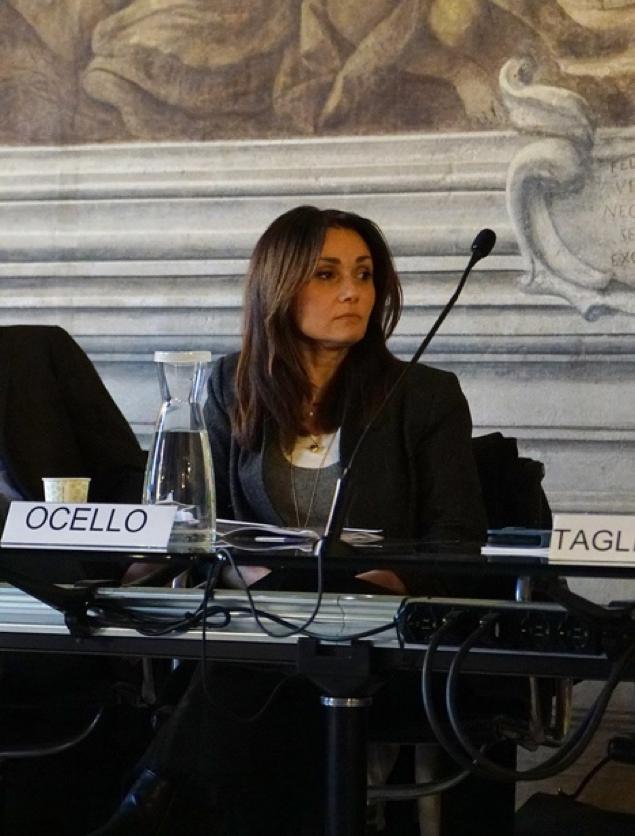
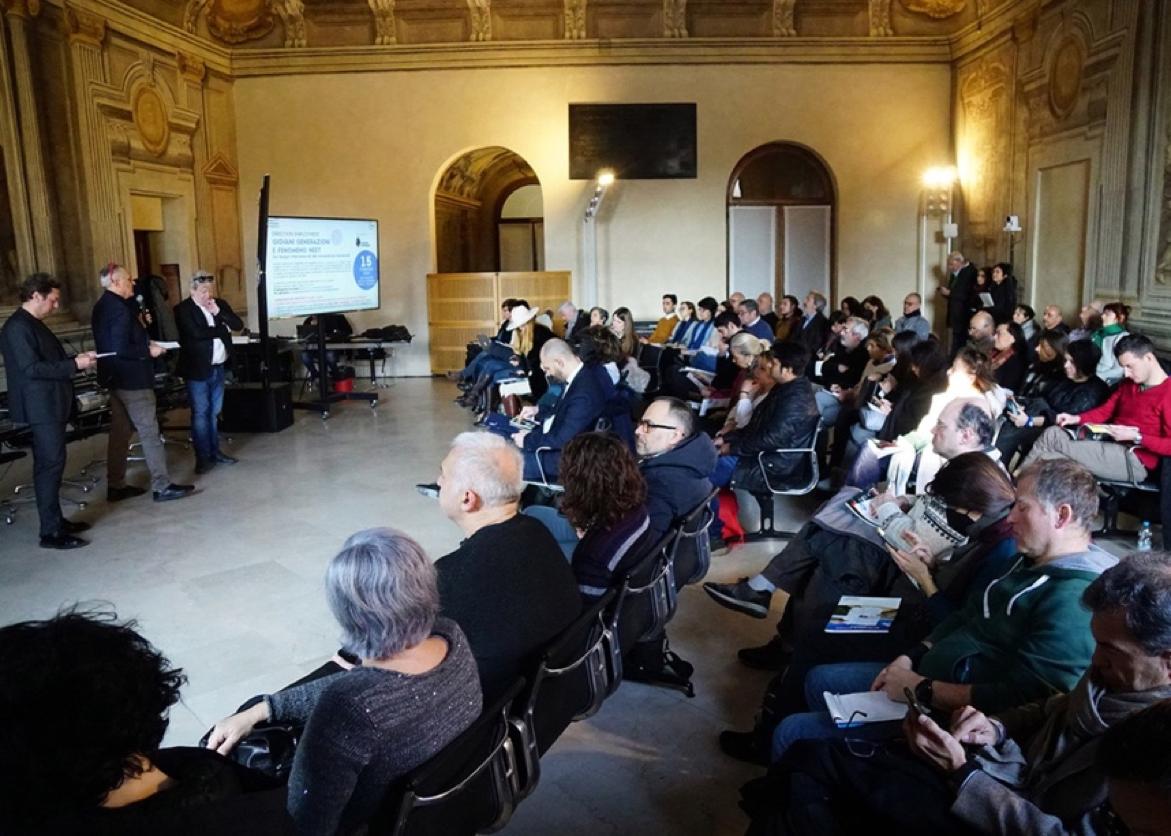
Pictures: Mathias Marchioni – coop. Lai-momo
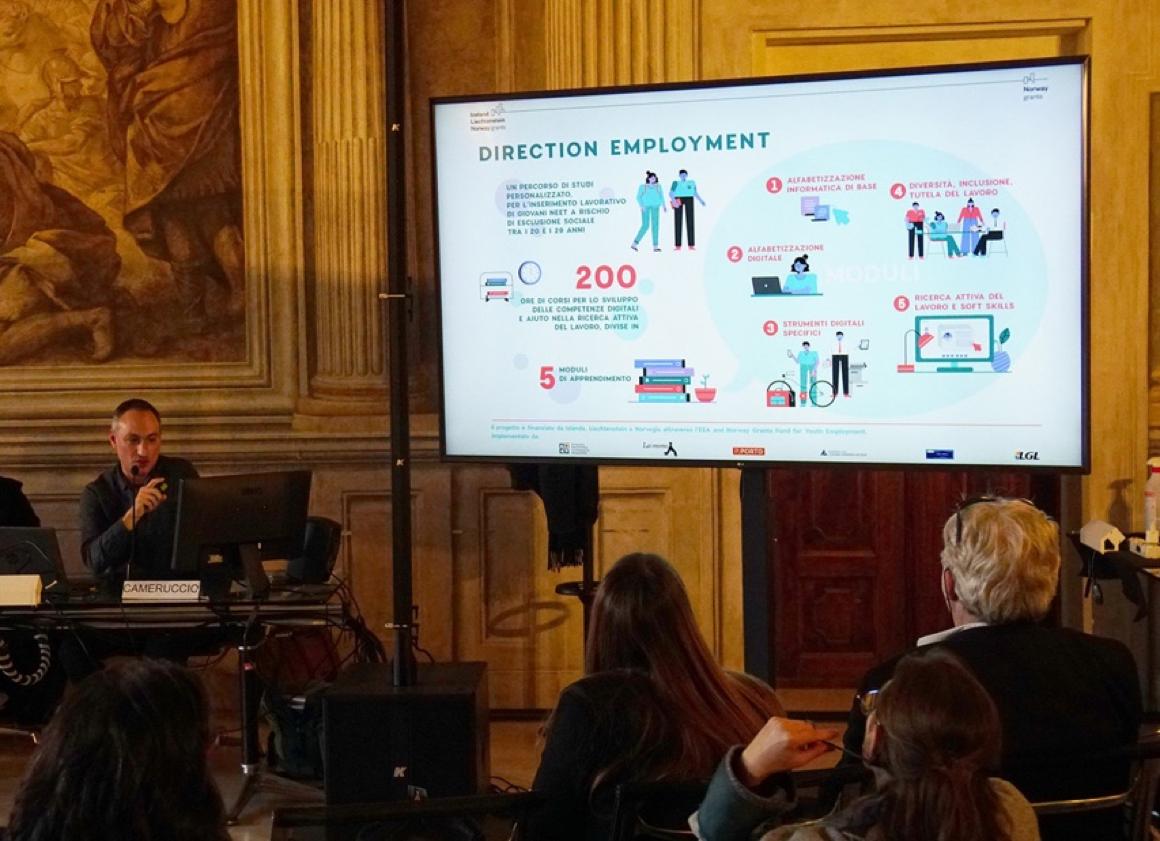
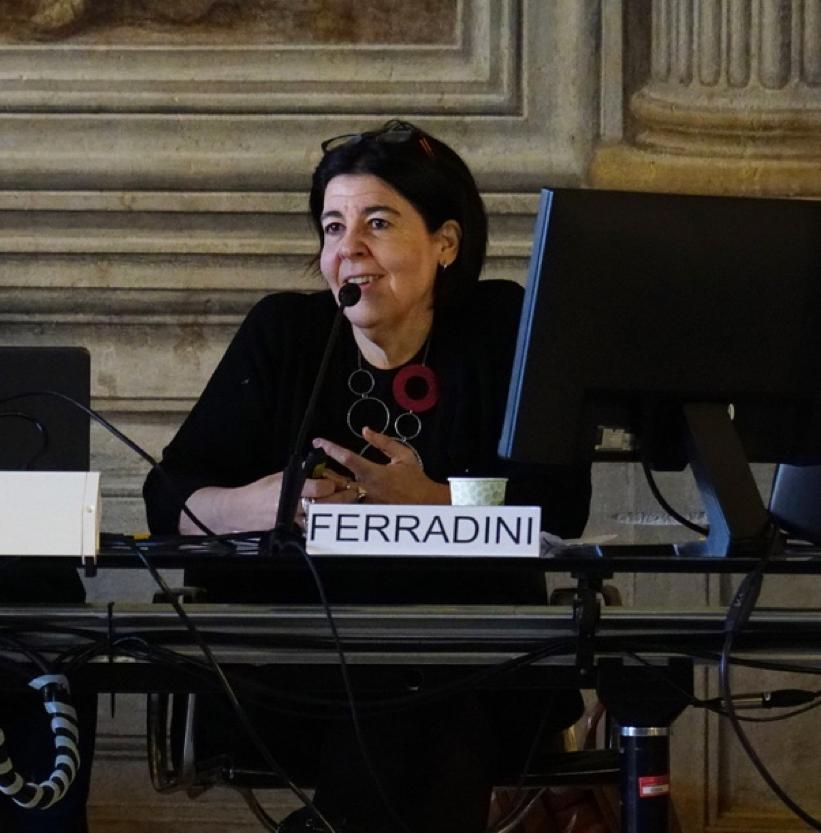
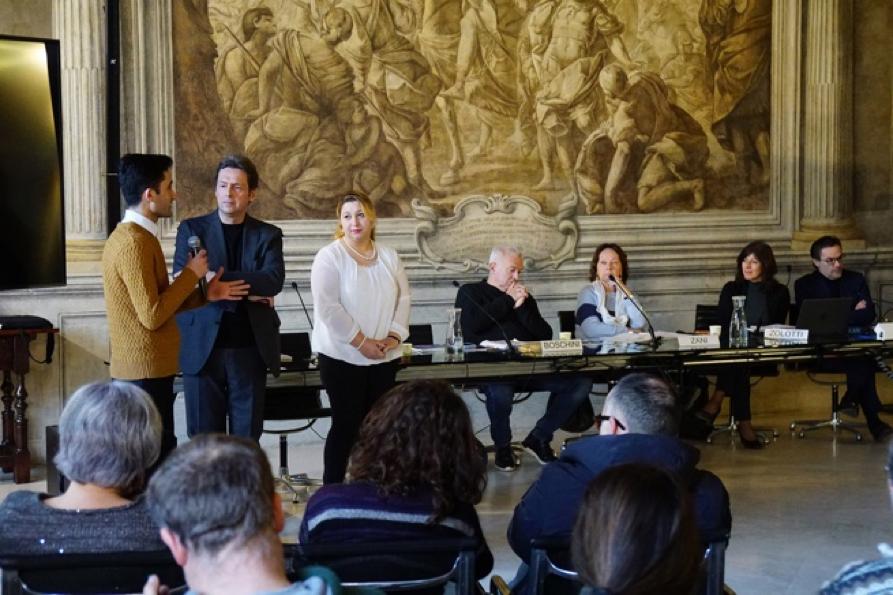
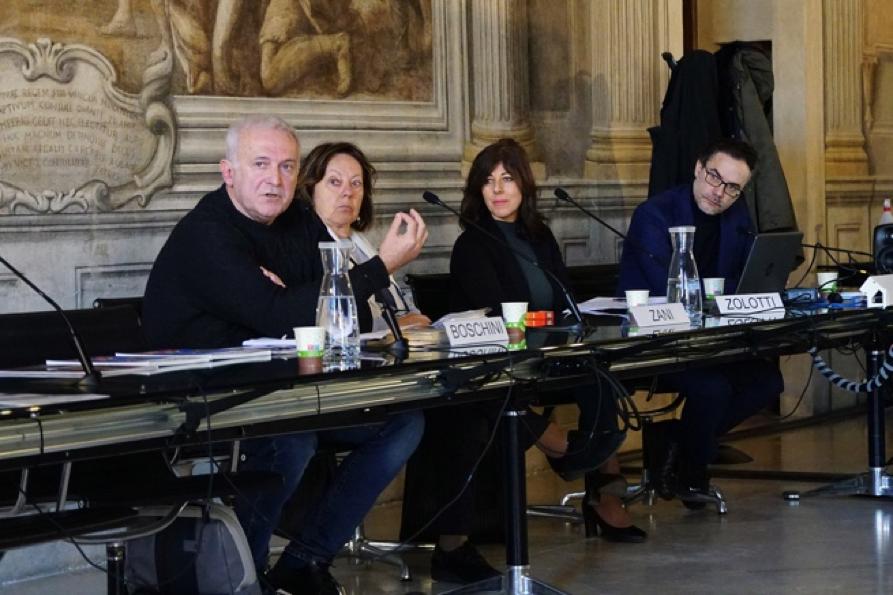
Article written by Lai-momo
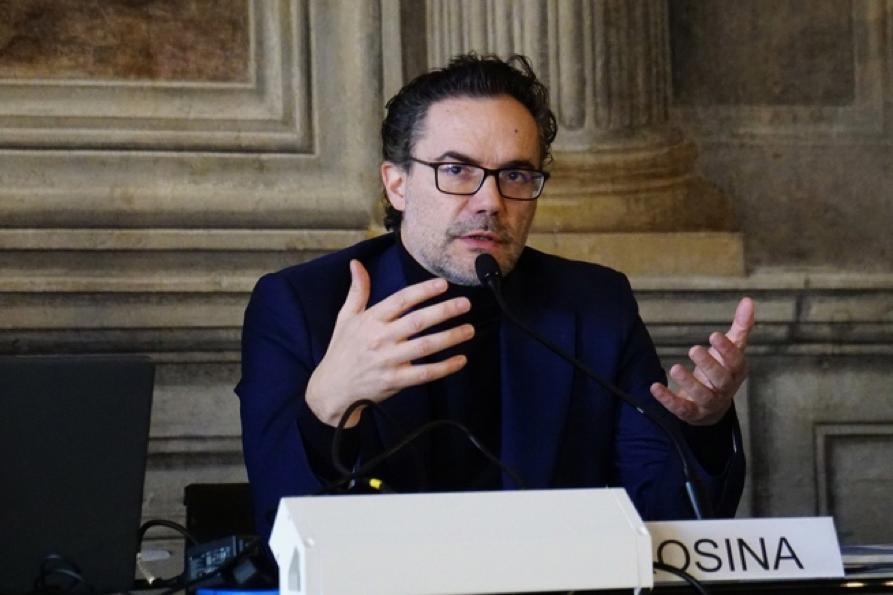
9
NEETs between inequalities and gaps
«Let's imagine the future as a house, made of bricks. These bricks are the people. These people are the new generations, who shape what we all will be».
This reflection opens a summary of what Dr. Alessandro Rosina, Professor of Demography and Social Statistics at the Catholic University of Milan and Scientific Coordinator of the Youth Observatory of the G. Toniolo Institute, explained during the conference organised by our Project Direction Employment in Bologna (picture: Mathias Marchioni – coop. Laimomo)
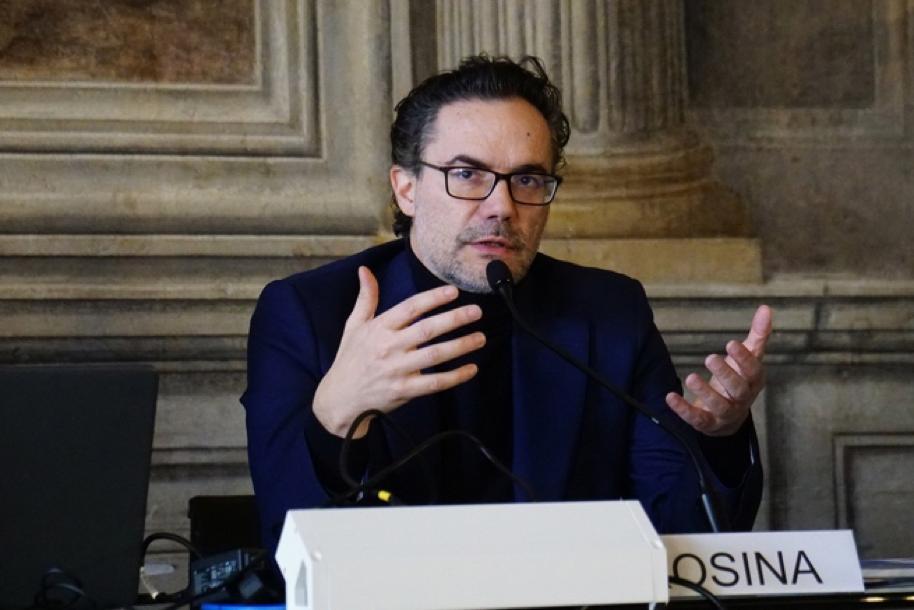
Considering the initial metaphor, the problem is that we have fewer young people, and therefore… less bricks.
In addition, in Italy, we donate these bricks to other Countries, as said by Dr. Rosina highlighting the theme of the expatriation of young people who go to enlist in the workforce of other countries. Finally, sometimes we ‘waste’ these bricks: what we are wasting are the NEETs.
When we think of demographic issues/transformations, we think above all of the increase in the elderly population, meaning the population aging. However, what characterises our time the most, is having fewer and fewer young people, in such a new way that we lack a specific term to indicate this process.
‘Quantitative dejuvenation’ is the name given to this phenomenon because it is a process that could not remain without a name. One can think about the Second World War: just after it we grew up with the majority of the population being under 30-year-old. Today, this is no longer the case. In Italy, the actual percentage of under 30 is around 27%: the lowest among developed European countries.
And… there is another factor to consider. There is also a problem from a qualitative point of view, since there are fewer spaces and opportunities for entering the world of work.
The NEET indicator is as well capable of indicating how much the territory wastes that portion of the population during changing processes (as the time we are living). If a young person is not put in a position to study and train, the problem is right there: one is not an active subject capable of dealing with the reality. This also becomes a message of disinterest from a society, which is not capable of providing the right tools and giving the possibility of experimenting to the new generations who, on the other hand, would be a fundamental resource for the society itself, since they represent its future.
In addition, with the impact of the pandemic, the NEET percentage in Italy is at 23% compared to 13% in the European Union, so the gap has remained high, not even returning to pre-pandemic levels. And, unfortunately, this is perceived by young people themselves: more than 45% of young people in Italy think
10
Youth Employment Magazine
that things have been done worse than in other Countries.
What we need are policies able to deal with those issues. There are as well many fragilities scattered along the path from school to work, and in this case as well the perception of young people is very clear. In fact, factors concerning difficulties such as lack of active policies, employment services, etc., are systematically higher.
Another metaphor, then? We could talk about young people in a labyrinth. Many young people who leave the school and enter the work gates find it difficult to orient themselves in this ‘labyrinth’. NEETs are precisely those young people who get lost in it. At first, they are unemployed in a technical sense, then they become discouraged because they don’t find a job, until they no longer believe in it, then they fall off the public policy radars and no one is looking for them anymore. The risk is becoming a social cost rather than an active part.
This is why a broad social partnership becomes important, to be capable of intercepting these young people in conditions of hardship, a situation which often already start from within the school, with the risk of demotivation and little stimulus (also because in some parts of Italy there is also little orientation towards work).
It is important, then, to make young people protagonists of job development processes by overturning the perspective: they are not only NEETs but important resources from which to draw out potential and opportunities. Therefore, adequate training is important, and at the center of this strengthening there must be skills, those that can be used today to enter the world of work and the ‘advanced ones’, i.e. those that anticipate what will be needed tomorrow, in addition to life-skills and active citizenship (i.e. social and not just technical ones). We need them to avoid being or becoming NEETs, since this means, after all, ‘not doing well’: I train but not well I lack skills I have frustrations I lose trust Risk of drifting!
And social skills of active citizenship are actually very important, because the technical ones can be recovered, but if trust and sociability are lacking, the recovery process is much more difficult. So, trapping in the NEET category means losing life-skills. This is what must be avoided and what we must work on, despite the fact that everything has become complicated with the pandemic which has left heavy marks, because all life-skills have been reduced. Today, to conclude, we see a sort of overlap between the historical moment we are living in and the moment of those who are about to start an active and professional life. There is less certainty about the future but at the same time the new generations are more open to change and innovation.
Our job, therefore, is to move more and more towards the perspective of change and innovation! Starting a new path with their – young people – energy.
Thanking Dr. Alessandro Rosina for this analysis, one can find more info and materials directly on his official website: www.alessandrorosina.it
Reporting his comments, statistic and explanations, we hope that they will be useful for further reflections.
11
Youth Employment Magazine
NEWS FROM THE FUND FOR REGIONAL COOPERATION
National Human Rights Institutions convened at FRA to discuss application of the EU Charter and monitoring of fundamental rights aspects of the rule of law
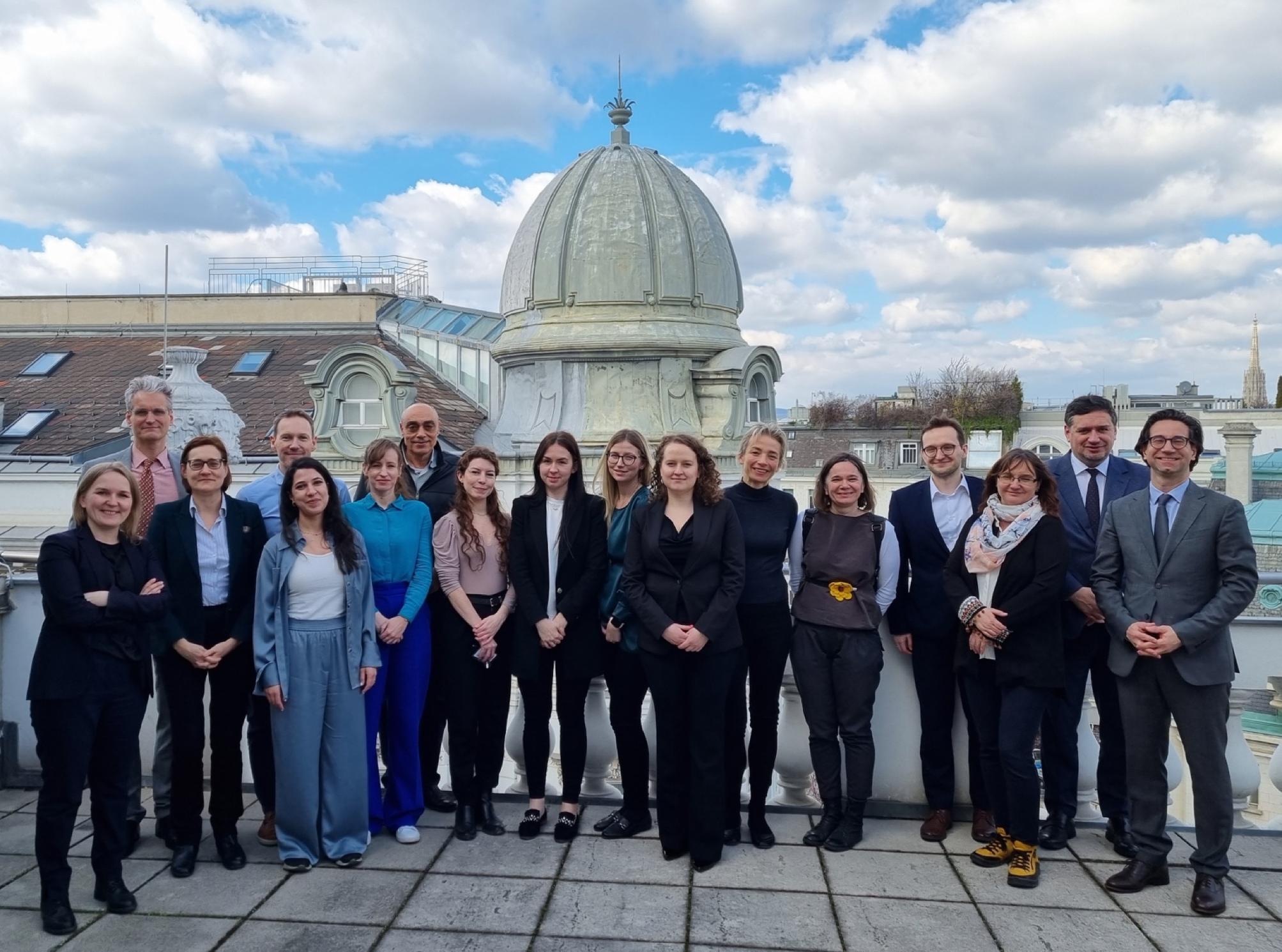
On 21-22 March, FRA held a hybrid Roundtable with NHRIs, the European Network of National Human Rights Institutions (ENNHRI), inviting also its National Liaison Officers and the EU Charter Focal Points, to discuss challenges and opportunities with regard to the application of the EU Charter of Fundamental Rights and monitoring the fundamental rights aspects of the rule of law.
The Roundtable outcomes pointed to the need of increasing capacity of legal professionals in the application of the EU Charter, including as regards a possible role for NHRIs monitoring how the spending of EU funds complies with the Charter. Numerous promising practices, but also challenges will be further addressed in the frame of FRA’s regional cooperation project, “Supporting National Human Rights Institutions in monitoring fundamental rights and the fundamental rights aspects of the rule of law”, which is funded by the EEA and Norway Grants.
The roundtable was followed by a study visit on 23-29 March, where FRA through capacity-building and peer-to-peer learning sessions engaged in discussion with national project partners, seven National Human Rights Institutions (from Bulgaria, Croatia, Cyprus, Latvia, Poland, Slovakia, and Slovenia), on promoting the national use of FRA’s e-learning Charter tool , optimising the monitoring of the rule of law and developing guidance on the role of NHRIs in the context of EU funds monitoring.
12
Youth Employment Magazine
Special Issue on mental health
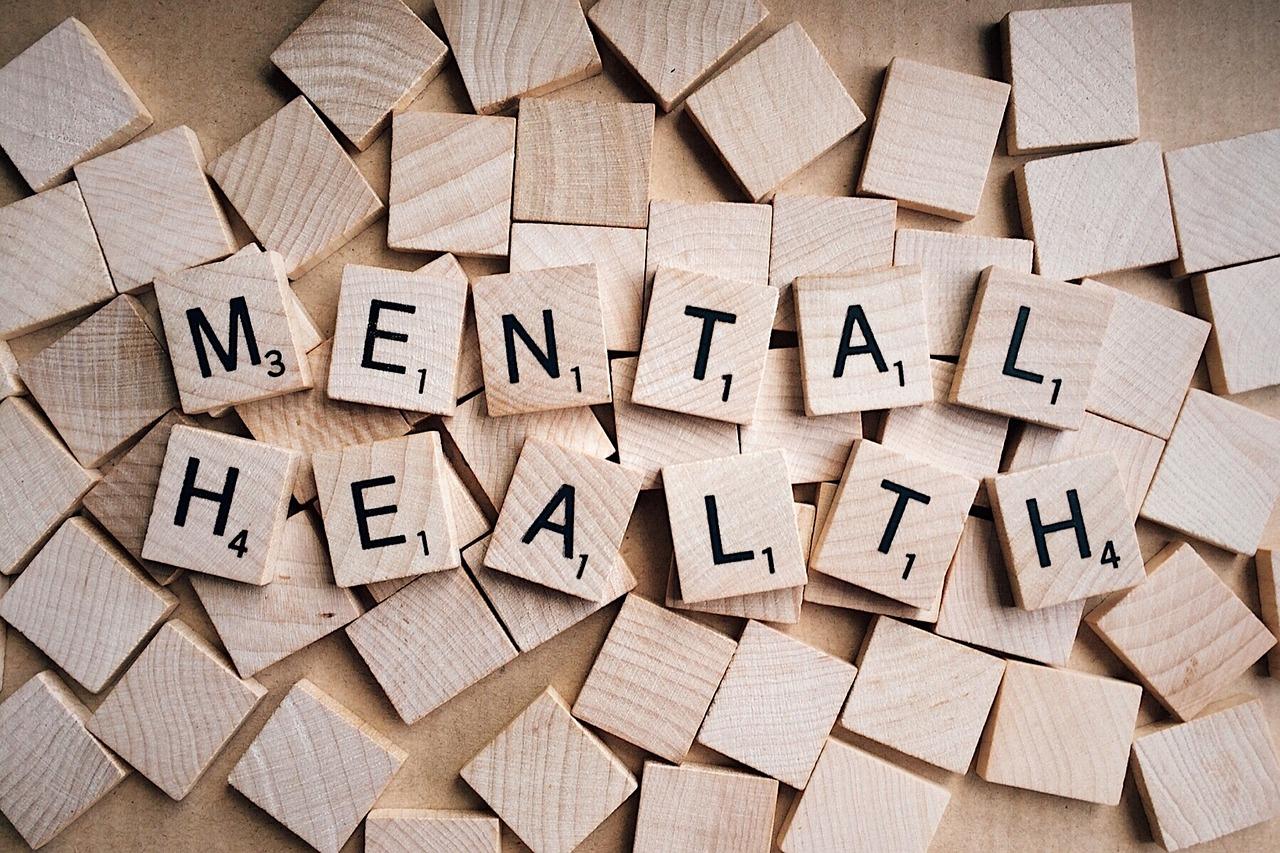
Youth Employment Magazine
Supported Employment for young adults with mental health issues in Norway – a good practice example from the Lost Millennials project
Although Norway has a relatively small proportion of young people who are Not in Employment, Education or Training (NEET), compared to other countries, NEETs in Norway are more vulnerable compared to NEETs of a similar age in the rest of Europe. A large proportion of Norwegian NEETs have poorer mental health, and lower levels of education compared to other European NEETs. Health, including mental health, is an important factor for why many young Norwegians find themselves outside the labour force and education: 11% of male NEETs and 24% of female NEETs are left outside because of health issues. Among female NEETs, mental health issues are the most common reasons. Among NEETs with health issues, there is also a high risk of remaining in the NEET category long term. A survey conducted between 2008–2013 showed that 94% of young people who had NEET status because of health issues in 2008, still remained in this category after five years (Fyhn, Radlick & Sveinsdottir, 2021).
The Norwegian labour market today is characterized by an increased focus on efficiency and productivity. This development has consequences for people’s potential to access the labour market, where the need for highly skilled workers is steadily rising (Strand & Svalund, 2021). The main reasons behind the status of the NEETs can be explained on two levels. On the individual level, the mental health issues that NEETs experience, in combination with a lack of secondary or higher education and work experience, creates challenges for the NEETs to be active on the labour market. Studies find that employers are sceptical to employ people with mental or physical health issues (Strand & Svalund, 2021). On the socioeconomical level, the increasing demand for e ffi cacy and productivity, and therefore highly skilled workers, results in NEETs facing difficulties accessing the labour market (Strand & Svalund, 2021). There is a concern regarding the increased number of young adults receiving disability benefits or work clearance allowance in Norway, questioning
whether this increase is connected to a medicalization trend, since these financial benefits require a medical diagnosis. The political goal is therefore to increase the number of young adults participating in work qualification programs instead (NOU 2021:2).
An initiative targeting this goal is called Supported Employment Youth (IPS Ung). This intervention aims to close the gap between the labour market and NEETs with mental illness and drug addictions. The target group of Supported Employment Youth includes NEETs in the age group 16 – 29, who are at risk of disability (due to mental illness and drug addictions) at an early age (Nav.no, n.d.). Supported Employment entails a professional – often called a job specialist – supporting a young person who has (often severe) mental health issues and/or drug addiction in the process towards employment and time after, with the aim of enabling the youth to get employed, and to keep the job over time (ipsnor.no, n.d.). These professionals do not only map the youth and their background, but also the employers and organizations for the purpose of matchmaking between the youth and organizations.
A notable aspect of Supported Employment Youth is that systematic and frequent follow-up of NEETs is not only effective regarding employment outcomes, but also regarding outcomes of mental, and psychological wellbeing. An evaluation of the initiative (in the form of a randomized control trial), concluded that in comparison to traditional vocational rehabilitation, Supported Employment Youth had a positive effect not only on NEETs’ employment, but also on their well-being: NEETs reported feeling less hopeless and more hopeful after their participation (Sveinsdottir et al., 2020). Supported Employment is a method that is imported from other countries and is therefore a method that shows a wide application potential.
14
Youth Employment Magazine
The implementation of Supported Employment on youth in Norway has shown to be effective, especially for NEETs with lighter and moderate mental health issues. The tailored individual support and follow up seems to be the key success factor (Sveinsdottir et al., 2020). Supported Employment Youth has potential applicability in contexts where NEETs have similar backgrounds.
Literature
Fyhn, T, Radlick, R.L. & Sveinsdottir, V. (2021). Norwegian youth who are outside of school and the labor market. (Unge som står utenfor arbeid, opplæring og utdanning (NEET). En analyse av unge i NEET-kategorien). Report 2:2021. NORCE.
IPSNOR.no (n.d.). The trial of IPS Youth (Forsøket IPS Ung). Retrived from https://ipsnor.no 18th of June, 2022.
Nav.no (n.d.). IPS Youth – Individual Carriere Support (IPS ung – individuell karrierestøtte). Retrieved from https://www.nav.no/ips-ung#kort om 18th of June, 2022.
NOU 2021:2. Competence, activity and Income sevcurity – Measures for increased employment (Kompetanse, aktivitet og inntektssikring. Tiltak for økt sysselsetting). https://www.regjeringen.no/contentassets/ 2943e48dbf4544b8b5f456c850dcccbe/no/pdfs/ nou202120210002000dddpdfs.pdf
Strand, A.H. & Svalund, J. (2021). Welfare programmes for youth: Applying work assessment benefits and qualificatins programmes on youth not in employment or education (Velferdsordninger til unge: Bruk av arbeidsavklaringspenger og kvalifiseringsprogram blant unge utenfor arbeid og utdanning). Oslo: Fafo-rapport 2021: 35.
Sveinsdottir V., Lie S.A., Bond G.R., Eriksen H.R., Tveito T.H., Grasdal A.L., & Reme S.E. (2020).
Individual placement and support for young adults at risk of early work disability (the SEED trial). A randomized controlled trial. In Scand J Work Environ Health 2020;46(1), pp. 50-59. DOI: 10.5271/sjweh.3837
Guro Øydgard, Janne Breimo and Ann-Torill Tørrisplass, Nord University
Lost Millennials Project
15
Youth Employment Magazine
Mental health among NEETs in rural areas
Rural mental health has always been a significant concern, especially among young people who are Not in Employment, Education, or Training (NEETs). Both young people living in cities and villages have mental health problems, especially in the post-pandemic period, as the pandemic caused an even faster increase in mental illness. These individuals face unique challenges, such as limited access to healthcare services and social support networks, which can exacerbate their mental health issues.
NEETs are young people who are neither employed nor enrolled in any form of education or training. In rural areas, this group often faces additional challenges such as lack of job opportunities and limited access to education and training facilities. These factors can lead to feelings of hopelessness, isolation, and low self-esteem, all of which can contribute to poor mental health outcomes. There are many impediments to mental health care and treatment in rural areas.
A report by the Institute of Science and Labor and The Prince's Trust found that the percentage of young people out of work reporting a mental health problem rose from 11% in 2011 to nearly three times by 2022.1 This growth is also evident among young people in rural areas. In addition, nearly half of the jobless youth (NEETs) said they had additional mental health problems or caregiving responsibilities because of the Covid-19 pandemic, which meant they were out of work.2 So we can see that the problem of mental disorders among NEETs in rural areas is very large.
One significant factor that contributes to poor mental health among NEETs in rural areas is social isolation. Rural areas often have a small population, and young people may feel isolated and disconnected from their peers. This can lead to feelings of loneliness, which can contribute to depression and anxiety.
Moreover, limited access to mental health services in rural areas is a significant challenge for NEETs. In many cases, the nearest mental health services may be miles away, and transport can be expensive or unavailable. This lack of access can prevent NEETs from seeking help, exacerbating their mental health issues and creating a sense of hopelessness and despair.
Another significant factor that contributes to poor mental health among NEETs in rural areas is poverty. Rural areas often have lower incomes and fewer job opportunities, which can lead to financial stress and hardship. Poverty can also make it challenging to access healthy food, healthcare, and other essential resources, which can contribute to poor physical and mental health outcomes.
Addressing the mental health needs of NEETs in rural areas requires a comprehensive approach. Improving access to mental health services is crucial, and this can be achieved through a range of strategies, including telemedicine, mobile clinics, and community outreach programs.
Furthermore, there is a need to address the broader social and economic factors that contribute to poor mental health outcomes among NEETs in rural areas. This includes investing in education and training programs, creating job opportunities, and providing social support networks for young people.
It is therefore important to address the imbalance and inequality between the provision of mental health services in rural versus urban areas.
Strategies to facilitate the transition from school to work, and those specifically focused on young NEETs, must address the multiple reasons for their exclusion, with a particular focus on the mental health needs of those who are NEET because they don't know what to do with their lives.
16
Youth Employment Magazine
1 Mental health problems prevent NEET young people from finding work, study shows | CYP Now 2 Mental health problems prevent NEET young people from finding work, study shows | CYP Now
Given that people with mental health disorders in rural areas are significantly more likely to commit suicide than their urban counterparts, it is crucial to raise awareness of mental health issues in rural communities, make increased and improved mental health care available, and reduce the stigma around these issues.
It may also be worth thinking about preparing and implementing training among rural health care providers on the provision of primary care. This will help rural educators, volunteers, employers better understand the prevalence of mental health disorders, be able to identify them and reach out to those affected.
In the StayOn project, implemented by 7 European organizations and funded by the Norwegian Funds, we support NEETs not only to improve their professional situation in the labor market, but also try to improve their mental health. This is done through individual and group training, engaging NEETs to work with professional coaches and other NEETs. Thanks to this, NEETs make friends, surround themselves with valuable people, see others who also have similar problems and together try to solve them, supporting each other mentally.
More about the project: StayOn | A more inclusive, active and creative world (stay-on.eu)
In conclusion, poor mental health outcomes among NEETs in rural areas are a significant public health concern. Addressing this issue requires a comprehensive approach that addresses the broader social and economic factors that contribute to poor mental health outcomes, as well as improving access to mental health services. By doing so, we can support the mental health and well-being of NEETs in rural areas and help them to lead happy, healthy, and productive lives.
Emerging adults not in education, employment or training (NEET): sociodemographic characteristics, mental health and reasons for being NEET
Emerging adults not in education, employment or training (NEET): sociodemographic characteristics, mental health and reasons for being NEET |
BMC Public Health | Full Text (biomedcentral.com) [2.03.2023]
Pandemia a zdrowie psychiczne dzieci i młodzieży
Pandemia a zdrowie psychiczne dzieci i młodzieży – Witryna Wiejska [28.02.2023]
Zdrowie psychiczne Zdrowie psychiczne | Avigon [27.02.2023]
Choroby psychiczne - na wsi temat tabu Choroby psychiczne. Na wsi temat tabu - Jedynka - polskieradio.pl [29.02.2023]
Rural Mental Health ruralmentalhealth.eu [28.02.2023]
The mental health of young people who are not in education, employment, or training: a systematic review and meta-analysis The mental health of young people who are not in education, employment, or training: a systematic review and meta-analysis - PMC (nih.gov) [1.03.2023]
MENTAL HEALTH PROBLEMS PREVENT NEET YOUNG PEOPLE FROM FINDING WORK, STUDY SHOWS Mental health problems prevent NEET young people from finding work, study shows | CYP Now [2.03.2023]
Rurality as a Risk Factor for Attempted Suicide and Death by Suicide in Ontario, Canada https://journals.sagepub.com/doi/ 10.1177/07067437211053300 [3.03.2023]
Bibliography
Rural Mental Health Information Hub Rural Mental Health Overview - Rural Health Information Hub [27.02.2023]
Kamila Wodka
Natalia Truszkowska
Polish Farm Advisory and Training Centre
StayOn Project
17
Youth Employment Magazine
Pandemic and mental health: the negative effects for youth
The COVID-19 pandemic had a profound impact on the lives of people around the world, particularly young people. In addition to the physical health risks, the pandemic has had a significant impact on the mental health of children, adolescents and young adults. The isolation, uncertainty and disruption of routines caused by the pandemic led to a range of psychological problems, including anxiety, depression and stress.
The COVID-19 pandemic and the restrictive measures to contain the infection have revolutionised the lives of these young people, and for some time to come, a distortion/alteration of habits, rhythms, and living arrangements will continue to be necessary. The absence of school, recreational, leisure and sports activities has forced thousands of boys and girls to stay at home, with repercussions that are still difficult to quantify. In addition, there has been a reduction in outpatient and counselling activities for children with chronic or acute non-COVID-19 illnesses (Praticò, 2020). Already in the 1960s-1970s, psychologist E. Erikson pointed out that the construction of identity in childhood is influenced by psychosocial factors such as family habits and repetitive behaviour, which sanction belonging and sharing and help to go through the developmental stages and related problems in a 'healthy' manner (Cerniglia L, Cimino S, Ammaniti M, 2020). The pandemic has 'blown up' pre-established rules and habitual patterns. Quarantine and social distancing - protective measures against the covid 19 pandemic - represented potential sources of stress for children, precisely due to the continuation of sudden and prolonged changes in the daily rhythms of family and school life (loss of routines, reduction of educational and play/exploratory opportunities outdoors, etc.) and the 'breathing' of a climate of anxiety/fear and uncertainty for the future (Sansavini A, Trombini E, Guarini A, 2020).
One of the most significant psychological impacts of the pandemic on young people is the increased sense of isolation and loneliness. The social distancing measures taken to prevent the spread of the virus have led many young people to be cut off from their usual social support networks, such as friends, family and teachers. This has led to increased feelings of
loneliness, which can contribute to depression, anxiety and other mental health problems.
Several international studies have addressed this issue. For example, a Chinese study (Xinyan Xie et al, 2020) carried out in Wuhan, Hubei province - epicentre of the pandemic - in the first four months of last year, found 22% more depressive symptoms and 18.9% more anxious symptoms in primary and secondary school students following the interruption of school attendance, outdoor activities and social contact with peers, highlighting the 'traumatic power' of a health emergency.
Another recent report (RAISING CANADA 2020), by an NGO, the University of Calgary's public health department and the Alberta Children's Hospital Research Institute, collected and systematised the results of various Canadian surveys over the past two years: 57 per cent of 15-17 year olds rated their mental health as 'slightly worse' or 'much worse' than before social distancing, while 17-24 year olds rated their mental health as 'excellent' or 'very good' to the extent of 20 per cent less than in 2018; 70 per cent of 10-17 year olds report feeling 'mostly and intensely' bored and lonely. The report also investigated the educational, welfare, social and economic impacts on children and young people of worsening family working and housing conditions, which go in the predictable direction of reinforcing inequalities.
To address these challenges, it is important that young people prioritise their mental health and seek support from their families, friends and mental health professionals. This may involve seeking online therapy, practising mindfulness and self-care, and engaging in activities that bring joy and a sense of connection, such as hobbies or virtual social events.
It is also important that parents, educators and policy makers prioritise the mental health needs of young people and provide resources and support to address the psychological impacts of the pandemic. This may include investing in mental health services, providing additional support for families experiencing financial stress, and working to create opportunities for social connection and engagement in safe and responsible ways.
18
Youth Employment Magazine
In the wake of these recommendations, the World Economic Forum has indicated three ways in which we can protect - collectively and communally - children, adolescents and their families from the potentially devastating psychological impact of the pandemic:

1. Invest publicly and privately in services and programmes to prevent/promote/care for the mental and psycho-social health of children and adolescents, with a 'life-cycle' approach, particularly in socially and economically deprived settings
2. Implement community-based policies, programmes and services 'calibrated' to the specific needs of children and adolescents in times of the covid-19 pandemic. UNICEF, WEForum and various partners are working to adapt and integrate psychosocial support and mental health promotion programmes in many ways (distance education 'accessible' to all children who cannot go to school, training of health workers for early detection of signs of mental risk in 'vulnerable' children, information technology to directly reach children in need of support and counselling, etc.), and provide guidance to governments for their implementation.
3. Taking the needs of children and adolescents into account in any debate/decision to adopt restrictive measures: it is necessary to listen directly to the children in order to plan programmes and services that are really useful. The slogan of the younger generation: "Not for us, but with us".
Looking at young adults, the testimony of a university student at the University of Palermo stands out: 'the pandemic had a huge impact on my life. I suddenly found myself attending lectures from a distance and, although my university did an incredible job in adapting to the situation, it was not easy. I found it difficult to stay focused and motivated, mainly because I missed the routine and social interaction I had when attending classes in person. In addition, I missed my favourite extracurricular activity due to the restrictions on group activities, and I felt isolated and alone. I also noticed that my mental health deteriorated during this period and I had to make a greater effort to take care of myself. However, I learnt to find ways to adapt to the situation and realised how important it is to have a good support network during these difficult times'.
In conclusion, the COVID-19 pandemic has had a significant impact on young people's mental health and it is important to give their wellbeing the right importance and support. The definition and implementation of interventions must take into account existing scientific evidence and good practice, and take place in a collaborative network between health, educational, social, etc. institutions and professionals involved in the frontline education, care and treatment of children and adolescents, involving families and children themselves in a participatory way so that they develop/strengthen their resilient resources (ISS, 2020).
19
Youth Employment Magazine
Sources
• Andrea D. Praticò. COVID-19 pandemic for Pediatric Health Care: disadvantages and opportunities. Pediatric Research, 2020
• Luca Cerniglia, Silvia Cimino, Massimo Ammaniti. L’impatto del periodo di isolamento legato al Covid-19 nello sviluppo psicologico infantile. Psicologia clinica dello sviluppo, 2 agosto 2020, pp. 187-190
• Alessandra Sansavini, Elena Trombini, Annalisa Guarini. Genitori e bambini 0-6 anni durante l’emergenza Covid-19: problematiche, nuove sfide e iniziative di supporto psico-educativo. Psicologia clinica dello sviluppo 2/agosto 2020, pp. 195-200
• Xinyan Xie, Qi Xue, Yu Zhou, et al. Mental Health Status Among Children in Home Confinement During the Coronavirus Disease
2019 Outbreak in Hubei Province, China. JAMA Pediatr. 2020;174(9):898-900. doi:10.1001/jamapediatrics.2020.1619
• RAISING CANADA 2020. TOP 10 threats to childhood in Canada and the impact of covid-19. Final Report. September 2020
• WORLD ECONOMIC FORUM. 3 ways to protect your mental health during – and after – COVID-19 How to talk to your children about coronavirus
• Gruppo di lavoro ISS Salute mentale ed emergenza COVID-19. Indicazioni ad interim per un appropriato sostegno della salute mentale nei minori di età durante la pandemia COVID-19. Versione del 31 maggio 2020. Roma: Istituto Superiore di Sanità; 2020. ATIS
20
Youth Employment Magazine
TEAM StayOn Project
Precarious employment and mental health: forthcoming research insights from the YOUTHShare project
segmentation and further unemployment enhancement, hence generating a feedback loop of precariousness. This two-way relationship between employment and mental health emerges, even when the research focuses primarily on employment. The forthcoming paper of the YOUTHShare research team “In what way a ‘Guarantee for youth’? NEETs entrapped by labour market policies in the European Union” highlights the indirect implications of the Youth Guarantee action plan to the mental health of young people in Spain and Italy.
According to the ILO 1, the pandemic has led to the sharpest global decline in employment since the Great Depression of 1929, with young people being disproportionately affected. The report estimates that youth employment declined by 8.7% in 2020, compared to 3.7% for adults. Young people are particularly affected by job losses in industries such as hospitality, tourism, and retail, which have been hit hard by the pandemicrelated measures. A study 2 by the COVID-19_Regional_Labour team, an initiative developed by YouthShare researchers as a response to the pandemic, showed that in the South Aegean, employers in the above sectors that were affected by the suspension, accounted for nearly 80% of the total number of employers in these sectors.
Employment and mental health seem to be inextricably linked. 3
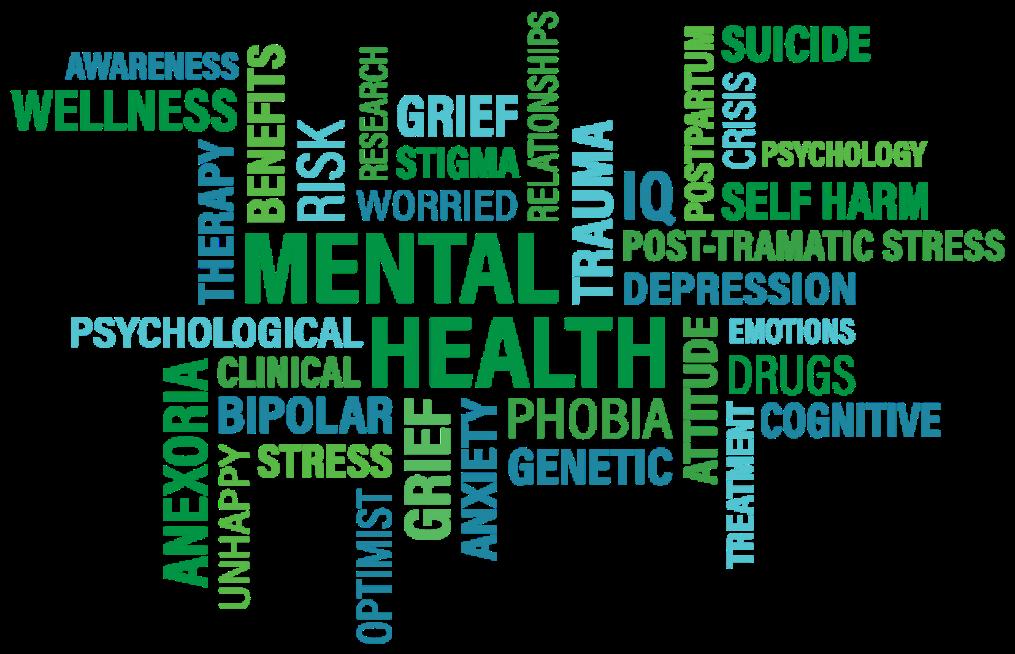
Unemployment heavily affects the mental health of younger generations, by increasing feelings of insecurity, stress, and anxiety, thus often leading to isolation, and decreased social interaction. These lead to social
The first point concerns the term "NEET" in Spanish ('Ni estudia, ni trabaja' ('Neither studies, nor works')). This term is used pejoratively by some people to describe a generation of (young) people who are financially dependent on their parents and are seen as a drain on their parents' resources. Therefore, they are stigmatized and face a form of exclusion by society. The second point stressed, concerns the forced relocation of young NEETs either to other regions of the same country or to other countries. This means that NEETs are often separated from their families, which affects their mental health on two bases: firstly, because the bond between family members is very strong, especially in Mediterranean countries, and a possible break in this bond can increase homesickness and depression; and secondly, because of the insecurity of a new jobusually non-permanent and poorly paid - in an unfamiliar place.
Summing up, good mental health and employment opportunities are very closely related. Good and prosperous employment is a very important factor that can have a positive impact on mental health. However, current policies do not seem to have contributed satisfactorily to this issue, and the problem of lack of sustainable employment for young people persists.
1 https://www.ilo.org/wcmsp5/groups/public/---dgreports/---dcomm/documents/briefingnote/wcms_767028.pdf
21
YOUTHShare Project Youth Employment Magazine
2 «Αυξάνεται πάρα πολύ η ανασφάλεια και η επισφάλεια και για τους εργαζόμενους και για όσους αναζητούν δουλειά», Εφημερίδα των συντακτών, 23-24 Μαΐου 2020 3 https://docs.iza.org/dp15433.pdf
What have we learned for the mental health of young people during the Covid-19 pandemic? Research testimonies from the YOUTHShare project
The Covid-19 pandemic has had a multifaceted impact on the daily lives of people of all ages. But how has the pandemic specifically affected the lives of young people? What has been the impact on their mental health?
The YOUTHShare project has been working on these questions for a long time, by organizing multiple interviews, focus groups, trainings and apprenticeships with young people across the European South. Here we present some representative testimonies from the YOUTHShare project's research subjects:
A male, aged 27, from Greece, who was unemployed and a master’s student during the time of the research, claimed that the pandemic changed his life in a bad way. As a social person himself, who loves meeting people from other backgrounds, he suddenly found himself avoiding being in touch with other people: “I was really looking forward to meeting people again in person, after all these restrictive measures were over. But, when I started interacting with others again I was starting to feel very nervous around them, to the point where I would prefer to constantly look at my phone’s screen, rather than people’s eyes.”. When it came to his feelings during the pandemic he said: “I feel like I’ve lost myself and who I used to be (before the pandemic), in terms of creativity and willing of discovering new things”. When it comes to employment, he said that he managed to find a job at a hotel for the summer season and that finally made him feel independent. However, this job was over by the end of October, and he did not manage to find another job ever since. That brought back the feeling of stress and precarity he used to have during the pandemic. When asked about the future he said that he was feeling discouraged: “I have no idea as to what the future will bring, however all I can say is that I am really worried about it, because I feel that everything is so unstable and unsure. I am afraid that no matter what I do, it won’t help me make my future better.”
A female, aged 28, also Greek, who was employed during the time of the research, claimed that the pandemic has had a significant impact on her mental health also. She was social but she also enjoyed being alone. However, the pandemic made her reconsider: “When the pandemic first occurred, I thought it would be a good opportunity for me to relax and make plans for the future. However, as time went on, I realized that I was missing contact with other people more and more". When asked how she felt during the pandemic, she said: "I was afraid that I would lose opportunities for self-growth, personal and professional opportunities. Therefore, feelings of anxiety and insecurity began to increase, thus worsening my mental health. Worst of all, I was afraid to express my feelings, which also contributed to this situation".
When it came to employment, she said: "When the pandemic started, I was unemployed. The pandemic increased my stress levels, as the chances of me finding a job were decreasing. I was also feeling uncertain about the future in general, and I did not even know what to do to turn things around. Fortunately, I was able to work first as an apprentice and then as an employee, a few months later." When asked about the future, she explained: "The pandemic undoubtedly took its toll on my mental health and affected my visions for the future. But as time went on and I finally started talking about my concerns, I realized that the pandemic was a pretty tough obstacle for all of humanity to face. Then, I realized that difficulties will come and go, and what matters in this case is that we must stay strong and keep dreaming and fighting for the things that we want. This thought turned things around and finally made me feel ambitious about the future.”
22
Youth Employment Magazine
Reports of health issues following the Covid-19 pandemic are growing in volume. Although the YOUTHShare program focuses on employment issues, health issues continue to be a focus. This shows the magnitude of the problem and the need for activation at both staff and institutional level.
Anna Saroukou, Communication Manager of the YOUTHShare project
YOUTHShare Project
23
Youth Employment Magazine
Dealing with Issues of Mental Health in Coaching and Mentoring
In recent years mental health has become part of public discourse. The good news here is that the stigma associated with issues of mental health is slowly giving way to a more open discussion and better understanding of such issues and how to address them. The COVID-19 pandemic and the cost of living crisis contributed to an 30%-80% increase of reported feelings of anxiety and depression (OECD, 2021). Young people (15-24) were more likely to report mental health issues than older people. Such numbers could reflect that young people are more open to talk about and address mental health issues than adults, who might still think of such issues as a stigma. Mental health issues are far too complex to draw simplistic conclusions, i.e. self-isolation or closing of schools and universities contributed significantly to such an increase and therefore should be avoided. In the context of NEETs the issue is far more complex. The increased number of people with mental health issues could not be met adequately before or during the pandemic despite research and policy recommendations to build-up adequate capacities (OECD, 2015). NEETs depend more on their family systems, i.e support from parents, grandparents, siblings, and often live on limited space where protecting others from a COVID-19 infection is much more difficult if not impossible. Thus, the situation created a volatile and existential threat.
Research shows that the Subjective-Well-Being (SBW) deteriorated significantly during the pandemic which negatively impacted resilience (Yue and Cowling, 2021), which lead to decreased performance triggered by feelings of loosing control (Jarosz, 2021). Women were more affected by the pandemic (Manolova, 2020) and financial distress directly impacted SBW and resilience (Fleming, 2021). Lasater et al. (2021) argued in favour of a more compassionate approach towards mentoring addressing needs of sense-making, understanding and flexibility while grappling with personal-professional boundaries and well-being as mentors. Whilst these issues are related to the effects of the pandemic we have seen these phenomena before when working with unemployed or underprivileged,
disenfranchised and low-status audiences. It could be argued that the pandemic had an impact on mental health issues and complex, interrelated factors contributed to it. But we should be are that a lower SBW, deteriorating resilience, feelings of losing control and isolation are not a new phenomena. We should also be aware that dealing with mental health issues has been part of supporting NEETs. What does that mean for coaching and mentoring NEETs?
From the very first days of the pandemic strengthening resilience of coachees and mentees has become almost an imperative. This begs the question whether a focus of resilience is good enough, or whether resilience is best to be recognised as an outcome of interventions employed to address various issues, which might be related to mental health. There is evidence that too much resilience can be harmful and requires a careful balance of self-awareness and openness to share vulnerabilities (Rhodes, 2021). This requires a safe space which, at least in theory, is right down coaching and mentoring alley. Coaching and mentoring NEETs would ask for a good understanding of the environment and wider system of their lived experience. Quite often we have noticed a reduced sense of control over their life and environment, NEETs seem to be shaped by other peoples expectations and perspectives, which makes it much more difficult for them to develop alternatives and making informed decisions (Bachkirova, 2022). Again, this could be observed before the pandemic. It is worth noting that the dependency on others as well as limited option and opportunities for NEETs during the pandemic exacerbated the issue and might have contributed to draw mental health issues into relief. This could be observed well before, during and after the pandemic, for example when coachees/mentees appeared to have no personal or professional ambitions, their appearance indicated a lack of self-worth, i.e. neglecting personal hygiene, poor diets and a lack of physical activities.
24
Youth Employment Magazine
Such factors could indicate mental health issues or neurodiverse needs which have not been addressed adequately. It goes without saying, that coaches and mentors should avoid to diagnose or draw premature conclusions, but should read such indicators as a hint toward potential issues. From a duty or ethics of care we could argue that in developing the relations of caring we enable human beings to live and to progress. However, mental health issues require a deeper understanding and probably additional counselling or therapy. Therefore, it seems to be good practice to discuss such cases with peers and/or experts in such matters, rather than attempting to solve the situation single handedly. This is relevant as in the sector support for coaches and mentor, i.e. supervision or peer-learning formats, are still not available at scale.
From impact assessments of counselling and therapy two factors have been identified as contributing towards the effectiveness of such interventions: the quality of the working alliance, in other the relationship between the dyads, and access to external resources (de Haas, 2008). Trust and rapport are key elements in the working alliance, where the autonomy of the beneficiary is not threatened and where alternative options can be developed and explored. This would probably require a more developmental approach to coaching and mentoring rather than a competency or deficit based approach. It is critically important to build that trust which allows coachees/mentees to develop a sense of psychological safety in a non-judgemental environment. Coaching is associated with coachees being able to draw on external resources and make use of their own, sometimes unused, skills and abilities. However, NEETs very likely do not have access to such external resources. Coaches and mentors are probably the only external resource they can tap into. Therefore, the quality of the relationship becomes even more relevant. Reports from the counsellors and therapists indicate that cost of living crisis renders such interventions less effective as more people do not have the financial resources to pay for such services. Additionally, (good) living conditions contribute to mental health and wellbeing but that is threatened by finical insecurity (Dober, 2022), factors neither coaches, mentors nor therapists can influence.
To conclude, it might be worth exploring alternative processes for coaching and mentoring. Physical activity, a healthy diet and nature have long been recognised to have a positive effect on the subjective wellbeing. Therefore, leaving the office and going for a walk to encourage the coachee/mentee to express their thinking and feelings could be an alternative. Bringing small bottles of water and some fruit to share might encourage the coachee/mentee to reflect on their diets. Such alternative approaches ask for flexibility of programmes and environments which are perceived as supportive and create a space where the coachees/mentees can be who they are rather than what others expect them to be. Coaches and mentors need to be acutely aware of their own limitations and need additional support to inform their practice with a view towards dealing with mental health issues. It is almost impossible to come up with general recommendations to address these issues. Sometimes coaches and mentors are the only lifeline and their commitment and support is critically important for young people. Looking into the future, we should make a joint effort to educate ourselves about mental health and contribute towards creating a community of discovery so that we as coaches, mentors and programme designers do not have to leave the most vulnerable behind but can offer adequate support.
References
Bachkirova, T. (2022) Developmental coaching: working with the self. (2nd edition). McGraw Hill. Open University Press.
Haan, E. de (2008) Relational coaching: journeys towards mastering oneto-one learning. Chichester: John Wiley.
Dober, C. (2022) People are cancelling their therapy with me because of stress about mortgages and rent – it’s heartbreaking. The Guardian [Online], 15 Nov 2022. Available from: https://www.theguardian.com/ commentisfree/2022/nov/15/people-are-cancelling-their-therapy-with-mebecause-of-stress-about-mortgages-and-rent-its-heartbreaking
Fleming, R. S. (2021) “Small Business Resilience and Customer Retention in Times of Crisis: Lessons from the Covid-19 Pandemic,” Global Journal of Entrepreneurship, 5(S1), pp. 30+.
25
Youth Employment Magazine
Jarosz, J. (2021) “The Impact of Coaching on Well-Being And Performance of Managers and Their Teams during Pandemic,” International Journal of Evidence Based Coaching and Mentoring, 19(1), pp. 4–27.
Lasater, K., Smith, C., Pijanowski, J. and Brady, K.P. (2021) “Redefining Mentorship in an Era of Crisis: Responding to Covid-19 through Compassionate Relationships,” International Journal of Mentoring and Coaching in Education, 10(2), pp. 158–172.
Manolova, T. S. et al. (2020) “Pivoting to Stay the Course: How Women Entrepreneurs Take Advantage of Opportunities Created by the Covid-19 Pandemic,” International Small Business Journal, 38(6), pp. 481–491
OECD (2015). Mental Health and Work. https://www.oecd.org/ employment/mental-health-and-work.htm
OECD (2021). Supporting young people’s mental health through the COVID-19 crisis. https://www.oecd.org/coronavirus/policy-responses/ supporting-young-people-s-mental-health-through-the-covid-19crisis-84e143e5/
Rhodes, J. (2021). The Commandos, mental mutiny and mindset. https:// www.bps.org.uk/psychologist/commandos-mental-mutiny-and-mindset
Yue, W. and Cowling, M. (2021) “The Covid-19 Lockdown in the United Kingdom and Subjective Well-Being: Have the Self-Employed Suffered More Due to Hours and Income Reductions?,” International Small Business Journal, 39(2), pp. 93–108.
Joerg Schoolmann, Autoocupacio
YES! Project
26
Youth Employment Magazine
Special Issue in mental health (Youth mental health negative effects after the pandemic)
The advent of the Covid-19 pandemic shook the world and changed how we lived, interacted, and moved around. This pandemic swiftly changed our lifestyle and existence in general with little or no time to prepare. The world was also denied some basic rights in order to ensure our safety such as the lockdown which infringed on our freedom to move.
In a feat of anxiety for what the future may bring and the quest for survival, the pandemic period saw the massacre and hoarding of store goods, especially tissue papers. A lot of people were isolated from their loved ones while some lost the battle to the virus.
It is not news that the mental health rate in European youths has been gradually deteriorating over the years, but with the pandemic, the numbers are projected to go from 10 to 20% of children dealing with mental health issues to about 20 to 25% of them [1]. The pandemic is projected to have long-term effects on the youth and these effects contribute largely to the decline of their mental health
In this paper, we’ll be taking a look at the following:
! Emotional and environmental stress
! Youth unemployment
! Situational analysis of different countries
Being stuck on lockdown or being held in quarantine put some people in a distressed emotional state as they had to navigate their lives with little to no human interaction for days, weeks and even months. There was the looming dread that the virus could get you if you made one wrong move. Hence, people stocked up on face masks, sanitisers and even gloves. People also had to deal with the passing of their loved ones whose bodies they were not allowed to bury themselves. Families stuck in different locations were separated because of the lockdown and weddings and other ceremonies couldn’t be held.
Amidst all of these, there were still people who felt differently about the pandemic. These people did not believe in the existence of the virus or that there was an outbreak. These were the people who refused to wear a mask or follow the safety protocols put in place to protect everyone. They endangered the masses and not only did some of them contract the virus, but they also spread it to others and increased casualties.
While youths seem to suffer fewer casualties from the effects of the virus, it has put a strain on their mental health. For example, students who used to have the option of going to school which protected them from some family traumas and provided them with a community of their peers no longer had that. They had to stay home to witness everything, both positive and negative, with nowhere to go for solace when they needed one.
The lockdown also put a lot of families under pressure as those with difficult working circumstances had to navigate through the pandemic. Single-parent households also had to make do with little to no environmental support and assistance. All of these leads to parental stress which shows negative effects on the children and youths. [2].
Another problem that affects the mental health of youths in Europe is the rate of youth unemployment brought about by the Covid-19 crisis. Europe has struggled with a high rate of youth unemployment since the global financial crisis and while there have been significant efforts to tackle this issue, the Covid-19 pandemic threatened to make things worse. This reality is one that is hitting harder on the European youths.
The graph below highlights the rate of unemployment in the European Union by the percentage of the labour force. It shows the deteriorating effect of the pandemic on employment, especially on those aged 15-24. In the second quarter of 2020, the unemployment rate in Europe remained
27
Youth Employment Magazine
unchanged, the rate for those between 55-74 saw a slight decline but the rate for the youths, however, continued to rise [3].
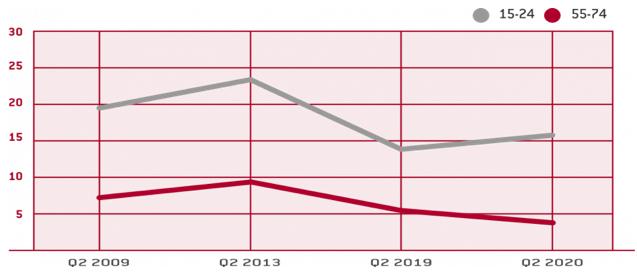
National estimates of the prevalence of depression or symptoms of depression pre-COVID-19, in 2020 and 2021
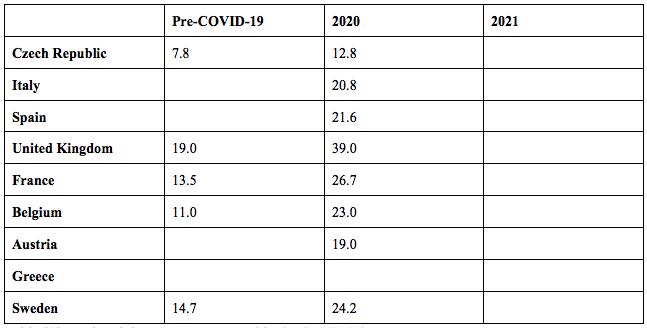

Youth unemployment has been shown to have longer-term effects which in turn leads to a decline in their mental health. This issue of long-term unemployment usually causes a lack of optimism for the future and the lack of reasonable income tends to lead to a high mortality rate, divorce, childlessness, and inability to afford healthcare, all of which adversely affect one’s mental state of being. [4]
Situational Analysis of European Countries
A look at some of the countries in Europe shows a disparity in the rate of mental health conditions from the pre-COVID era till more recent times. These results show a huge increase in mental health cases since the pandemic, and the numbers seem to remain high.
Table [1]: National data sources reported in OECD (2020)
National estimates of the prevalence of anxiety or symptoms of depression pre-COVID-19, in 2020 and 2021
Table [2]: National data sources reported in OECD (2020)
28
Fig 1: EU Unemployment rates (%labour force)
Youth Employment Magazine
National estimates of the prevalence of anxiety, depression and stress in 2022
[3] Grzegorczyk, M. and G. Wolff (2020) ‘The scarring effect of COVID-19: youth unemployment in Europe’, Bruegel Blog. https://www.bruegel.org/ blog-post/scarring-effect-covid-19-youth-unemployment-europe
[4] Schwandt, Hannes; Wachter, Till von [2020] Socioeconomic Decline and Death: Midlife Impacts of Graduating in a Recession, IZA Discussion Papers, No. 12908, Institute of Labor Economics (IZA), Bonn. https:// www.econstor.eu/bitstream/10419/215304/1/dp12908.pdf
Figures
Fig [1] Grzegorczyk, M. and G. Wolff (2020) ‘The scarring effect of COVID-19: youth unemployment in Europe’, Bruegel Blog. https:// www.bruegel.org/blog-post/scarring-e ff ect-covid-19-youthunemployment-europe
Fig {2] Conor Stewart [2022] Prevalence of anxiety, depression, and stress in Europe in 2022. https://www.statista.com/statistics/1339498/feelingsof-anxiety-depression-and-stress-in-europe/

Tables
In conclusion, the pandemic has left a negative impact on European youths and this fact cannot be ignored. There is a need to take action towards changing these statistics, helping the youth find a balance in the new world order and to start living instead of coping.
References
[1] Wayne Deeker [2022]. Horizon The EU Research & Innovation Magazine. https://ec.europa.eu/research-and-innovation/en/horizonmagazine/covid-generation-effects-pandemic-youth-mental-health
[2] Lehmann, S., Haug, E., Bjørknes, R. et al [2022] Quality of life among young people in Norway during the COVID-19 pandemic. A longitudinal study. Eur Child Adolesc Psychiatry. https://doi.org/10.1007/ s00787-022-02023-5
Table [1] Source: National data sources reported in OECD [2020] https:// www.oecd.org/coronavirus/policy-responses/tackling-the-mental-healthimpact-of-the-covid-19-crisis-an-integrated-whole-of-societyresponse-0ccafa0b/#figure-d1e205 Updated national data is included for Canada and the United Kingdom.
Table [2] Source: National data sources reported in OECD [2020] https:// www.oecd.org/coronavirus/policy-responses/tackling-the-mental-healthimpact-of-the-covid-19-crisis-an-integrated-whole-of-societyresponse-0ccafa0b/#figure-d1e205 Updated national data is included for Canada and the United Kingdom.
29
Fig [2] Statista, 2022.
Youth Employment Magazine
YES! Project
Special Issue on mental health
It is now 3 years since the WHO declared the COVID-19 pandemic. During this time, we notice that the pandemic has left a strong mark on the mental health of most citizens in our country. Let's take a closer look at its health effects among schoolchildren. This is an age group that especially needs contacts with peers for proper development. During the pandemic, it was subjected to long-term isolation and is now facing the negative effects of this. It seemed to us that the effects of the pandemic would be short-lived, but the reality shows something completely different.
What are the side effects of the pandemic on youth mental health?
During the pandemic, school youth were exposed to home isolation, ubiquitous information chaos and the fear of falling ill with COVID-19 and death (both their own and loved ones). They were unable to interact with peers or pursue her interests. This long-term state of tension and uncertainty of tomorrow caused some of the teenagers to experience psychological side effects, such as depression and anxiety disorders. Scientific research shows that in 2022 young people were accompanied by a deterioration of mood, a sense of loneliness, problems with dealing with their own emotions, memory and concentration, sleep problems, negative thinking about themselves, prolonged fatigue, greater irritability, withdrawal from favorable situations contact with other people, higher levels of stress and anxiety, and even acts of self-harm and suicidal thoughts. The time since the threat of further waves of the mutated Sars-Cov-2 virus has passed and the lifting of the ban on wearing masks in most public places has passed is quite short. Nevertheless, the results of various studies on the effects of the pandemic on our health are appearing and there will be more such studies. On their basis, we will be able to more precisely assess its negative effects on our health and determine the possibilities of how to deal with them.
What do the statistics show?
Scientific research statistics from 2022 show that among school youth
exposed to home isolation and stress related to the reality of the pandemic, 39.8% of the surveyed people showed signs that may contribute to the deterioration of their mental state after the end of the threat. Despite the fact that many young people coped with difficult conditions during the pandemic, the mentioned 39.8% is a disturbingly high percentage of young people who failed to cope with stress and home isolation. How can technology help young people cope with the negative effects of the pandemic?
Technological progress contributes to improving the quality of our lives. At this time, when we are facing the negative effects of the pandemic on our mental health, this is especially important. Many startups of positive influence try to support people by supporting their contact with a specialist and teaching them exercises related to complete relaxation and mental relaxation.
Among various startups in the Medtech industry, we want to pay special attention to those companies whose functioning improves the mental state of teenagers in Poland.
Startup CALMSIE - is a Polish startup that helps in the treatment of depression and anxiety disorders in children and adolescents. Entrepreneurs have created an algorithm used in a videobot. It facilitates the conduct of therapeutic exercises and the establishment of a relationship between the psychiatrist and the patient.
Focusly application - teaches relaxation, contains sets of exercises that will help with problems with anxiety and stress, lack of sleep, problems with concentration. It can be used by individuals as well as companies.
30
Youth Employment Magazine
Can young people's business ideas be the key to supporting young people with problems?
It turns out that definitely YES! Young people can create a company supporting teenagers and adults experiencing post-pandemic trauma. An example is the Recykling Myśli company, bringing together psychologists specializing in depression, stress, anxiety disorders, mood disorders and other mental ailments. Experts help young people aged 11-18 and adults. It is a company created to meet the needs of psychological support, e.g. during the difficult period of the pandemic. Consultations can take place over the phone and online. The founder of Recykling Myśli received support under the YES program - an international program run in Poland by the Technology Incubator Foundation. Thanks to participation in this program, she opened her own company and now is helping young people overcome mental problems after the pandemic.
relaxation and sleep, limiting listening to negative media messages. In the event of disturbing symptoms of depression or anxiety, it is recommended to consult specialists - psychiatrists and neurologists, use neurological rehabilitation with relaxation, use psychologists' advice, use support groups. In addition, you can use the activities of foundations supporting the mental health of young people and public hotlines.
We are currently facing an increased number of teenagers experiencing mental disorders after the pandemic. It may take time, patience, and trust to mitigate these negative effects. Helping young people in combating their mental problems is now a future challenge for their families, friends, for each of us.
In the last 3 years, young people up to 29 years of age with their own business idea could, as part of the Young Entrepreneurs Succeed! receive support in implementing their business ideas. As part of this program, taking care of the participants' well-being, their integration and involvement in the project, the Foundation organized one stationary training. Why? Young entrepreneurs getting to know each other and their mutual relations during and after the program are of great importance for the participants' well-being. Ultimately, each of us needs direct social contacts, without which it is difficult to maintain good mental health.
The negative effects of the pandemic, related to their impact on mental disorders of teenagers in Poland, are a fact and we should not underestimate them. They are a social problems, which affect all of us as parents, family and friends of young people affected by this problem. How can you help young people suffering from mental disorders, apart from using the activities of startups?
As a preventive measure, it is recommended to lead a healthy lifestyle through physical activity, proper and healthy diet, allocating time for
31
Youth Employment Magazine
YES! Project
Young people talk to Cowork4YOUTH about mental health and the pandemic

or at university. So, at first glance, they shouldn’t be affected by the situation. But Haris, now a 20 year-old University student, says otherwise:
“Before the pandemic hit I was a high school student, unemployed and focused on my performance in school, [but] the pandemic affected my intentions to find a job [...]”. Having his hopes cut down was not a repercussion to be underestimated.
Now that the hard part of the pandemic seems to have ended, we need to take a careful look at the after effects it’s been having on our lives. At Cowork4YOUTH our priorities put youth and their work life at focus, but this time we try to come closer to young people in more personal terms, of course always in connection with the subject of job searching; so, we asked them about their mental health before, during and after the major wave of COVID-19 and if and what repercussions it had had in their efforts, hopes and -why not- dreams when they were thinking about their work future.
Lina, Haris and Konstantinos from Greece and Raffaele from Italy, all of them young people now aged between 20 and 25 years old, give their answers to our questions.
Before the pandemic, all four of them were students, either in high school
About job searching during COVID-19, Lina, a 25 year-old University student, says: “[as a University student] I wasn’t [actively] looking for a job, but even if I did, I knew it would be almost impossible to be successful under those circumstances”. Raffaele, a 25 year-old young man, was indeed looking for work but his efforts remained unfruitful: “I didn't start looking for a job until after I graduated with a master’s degree in physical education. Unfortunately, because of the pandemic, I could not find a job.” But there’s a surprise hiding in Konstantinos’ answer, a 24 year-old young man, who actually did find a job during those challenging times, but his concerns weren’t only about COVID-19: “I started looking for a job right when the pandemic started. I was really unsure whether I would actually find one but not due to the pandemic; my doubts were about the state of the country overall. Luckily I got a job in technical support pretty easily”. Let’s get poetic and say, a glimpse of sunshine in the gloom of the day.
So, what about their mental health during the pandemic? Interestingly, the answers to this question varied, from disheartening to positive. Lina says “My mental health, like most people’s, was negatively affected by the inactivity the pandemic forced upon us”, while Haris’ reply describes the practical side of his situation: “I was under a lot of stress due to the need of an income to pay off my tuition”. Raffaele considers that he was not financially or socially affected, since as unemployed he didn’t have a job to lose or his salary to be cut down. On the other hand, Konstantinos had a better experience: “Well yes my mental health did get affected but for the better, since I was able to interact with people unlike most”.
32
Youth Employment Magazine
Moving on, what about the state and mental health/ support services? For Greece, Konstantinos and Haris believe that there were support services available during the pandemic, although they didn’t come into contact with them. For Italy, Raffaele talks about the practical side: “[..] the state made available a bonus for psychological support of €600 per person”, which he considered, along with other services, a great help.
And what about now? Have those young people overcome any problems the pandemic (may) have caused them? Lina says that from her side, she has recovered, but seems concerned about people's bonds and relationships: “[...] I notice that people’s relationships have reached a dead end, they are broken, cold and distant”. Haris states that there’s still some work to do but there shouldn’t be any issues, whereas Raffaele says that he believes he hasn’t suffered any side effects, and even more surprisingly, Konstantinos seems to even have benefited from it: “I’m probably one of the rare specimens that feels like the pandemic helped me, so I would not say there were any problems for me to overcome”.
To conclude, although the statements of four people are not statistically enough to represent the majority of the youth population, on the other hand it was refreshing to see that the pandemic didn’t bring only negativity and dark thoughts, but on the contrary for some people it seemed to bring a positive light to their life.
Stay connected with us through our social media: Facebook, Twitter, LinkedIn: @Cowork4YOUTH, and visit our website https://www.cowork4youth.org/
33
Youth Employment Magazine
Cowork4YOUTH Project
Young people’s mental health in Italy, Spain, Ireland and Greece: A review
How did the overwhelming wave of COVID-19 affect people in its early stages, and more specifically, young people and their mental health? We turned to science and searched for relevant studies, in order to have a more comprehensive and accurate view of the subject, and since Ireland, Greece, Italy and Spain are the countries that Cowork4YOUTH’s research focuses on, we drew material concerning them. Starting with Italy, a research paper that studied mental health outcomes 14 months into the pandemic was published recently at the Journal of Affective Disorders. 1 The research was conducted through a web-based survey and comprised two parts: The first one between March-April of 2020 so that a baseline would be established and the second one between April and May of 2021 as a follow-up. The survey amassed answers from
5501 people in total, starting from 18 years old and up. In this article we focus on the results regarding young people, which were interesting and surprising to see. According to the results of the first part, “the main sociodemographic factors associated with mental health outcomes were female gender, younger age, living in Southern Italy, lower education, being a homemaker or being unemployed”. When the survey explored the correlation between age and resilience, the findings showed that younger individuals displayed lower levels of resources in resilience and that it is suggested that these kinds of resources were focused more on “[...] protecting older adults’ psychological well-being”. On another aspect, though, although younger people seemed to be more neglected than other age groups, “ [...] lower age was also associated with the remission of general distress symptoms [...]”. And according to the comprehensive results of this study, an “overall decrease of depressive, anxiety and stress-related symptoms [...]” were noted, although the bigger pressure was put on females, younger people and people with lower education. A preliminary study concerning COVID-19 and well-being policies in Ireland, focused on young people, was published late 2022 as a chapter of the volume “The Unequal Costs of Covid-19 on Well-being in Europe”. 2

The study concludes that for young people specifically, the pandemic seemed to have highlighted vulnerabilities in mental health and education, as students were stressed about their studies, and in a broader aspect, their access to the support systems of their schools.
Mensi,
Pacitti, Alessandro Rossi,
Di Lorenzo, Changes in mental health outcomes in the general population 14 months into the COVID-19 pandemic in Italy, Journal of Affective Disorders, Volume 325, 2023, Pages 35-40, ISSN 0165-0327, https://doi.org/10.1016/j.jad.2022.12.148
(https://www.sciencedirect.com/science/article/pii/S0165032722014732)
2 Vanessa Boullet, Julien Guillaumond, Covid-19 and Well-Being Policies in Ireland. A Preliminary Study with a Focus on Young People, in Louise Dalingwater, Vanessa
2022, ISBN 3031144244, 9783031144240
34
Youth Employment Magazine
1 Rodolfo Rossi, Valentina Socci, Tommaso Benedetto Jannini, Giulia D'Aurizio, Sonia
Francesca
Giorgio
Boullet, Iside Costantini, Pauls Gibbs (ed), The Unequal Costs of Covid-19 on Well-being in Europe, Springer International Publishing,
Regarding jobs, the study notes “[...] adverse effects on the employment situation of young adults (temporary lay-offs or loss of employment) and has delayed entry on the Irish labour market”.
In Greece, a study that examined the mental health status of young adults and especially students during the third week of quarantine in the country, which was not known when it was going to end, was published at the International Journal of Psychology. 3 The method used was snowball sampling and 1018 people participated, with an average age of 21.5. The results showed differences between males and females regarding the effects of the quarantine: Females showed to be more anxious, stressed and negatively affected by the situation, while those who knew someone that had gotten affected by the virus were significantly more worried. More interestingly, “[...] the mean scores and the levels of depression, anxiety and stress were very close to the ones reported in Italy [...] and among University students in Spain”, the study showed. But, two positive factors were also identified, factors that contributed as protective of people’s psychological health: Daily routine and altruism.
In Spain, a survey that was conducted during the late stages of the state emergency (June and July of 2020) and received responses from 544 individuals regarding, among other questions, their mental and physical health, didn’t reveal any surprising results when compared to the ones we examined about Greece, Italy and Ireland. 4 Younger people, females, single and with lower education seemed to have experienced a greater impact of the pandemic. Females particularly showed higher levels of anxiety, depression and stress than male participants.
Also, the types of the participants’ worries were various, with the most prevalent ones being their mental health, their future and support from and towards others.
Stay connected with us through our social media: facebook, Twitter, LinkedIn: @Cowork4YOUTH, and visit our website https://www.cowork4youth.org/
Cowork4YOUTH Project
3 Kornilaki, E.N. (2022), The psychological effect of COVID-19 quarantine on Greek young adults: Risk factors and the protective role of daily routine and altruism. Int J Psychol, 57: 33-42. https://doi.org/10.1002/ijop.12767
35
Youth Employment Magazine
4 Sánchez-Rodríguez E, Ferreira-Valente A, Pimenta F, Ciaramella A, Miró J. Mental, Physical and Socio-Economic Status of Adults Living in Spain during the Late Stages of the State of Emergency Caused by COVID-19. International Journal of Environmental Research and Public Health. 2022; 19(2):854. https://doi.org/10.3390/ijerph19020854
The consequences of the COVID-19 pandemic on the mental health of the population
Mental health conditions affected by negative social factors include anxiety, mood disorders and post-traumatic stress disorders, according to the Global Burden of Disease study. Worldwide suicides are increasing as a result of increased exposure to risk factors such as financial stress, job insecurity and unemployment, social isolation, reduced access to community support, barriers to mental health treatment and worsening physical health problems.
The psychosocial impact on Covid-19 patients is enormous. Confirmed patients with Covid-19 often experience psychological symptoms, such as sadness and dissatisfaction, feelings of loneliness and helplessness, depression, anxiety and phobia, irritability, and sleep deprivation. Some patients may experience panic attacks. Among others, the Covid-19 epidemic can also cause stigmatization, as well as fear of isolation, racist attitudes, discrimination and marginalization.
Over the centuries, the human species has been tested by many epidemics and pandemics. In addition to the catastrophic pandemics, there have been epidemics localized in specific regions, without further spread. History shows that the public health consequences have several times reached alarming levels of danger to humans. The sudden appearance of the Sars CoV-2 virus and the high transmissibility of the COVID-19 disease, which caused an increase in hospital admissions, is inevitable to affect the mental health of individuals. Along with unpredictability and uncertainty, exclusion and physical distance can lead to social isolation, loss of income, loneliness, inactivity, limited access to basic services, increased access to food, alcohol and online gambling, reduced family, and social support. The COVID-19 pandemic appears to have a global negative impact on economic and other social determinants of health in the long term.
In addition, the consequences for vulnerable groups such as prisoners, patients in psychiatric hospitals or social care structures, people with disabilities, women experiencing domestic violence or abuse, may be even greater. These individuals are at even greater risk of psychological distress as pre-existing human rights vulnerability worsens and further mental health impacts related to COVID-19 develop.
Prolonged school closures have had a serious impact on the mental health of children, adolescents, and young adults worldwide. Many children, and among the beneficiaries of the Sepal Pro program, reported that due to the pandemic they were disoriented from their goals, especially those who were in their last year of school. Due to the confinement, their rhythm was lost, their study time was reduced and they moved away from their goals.
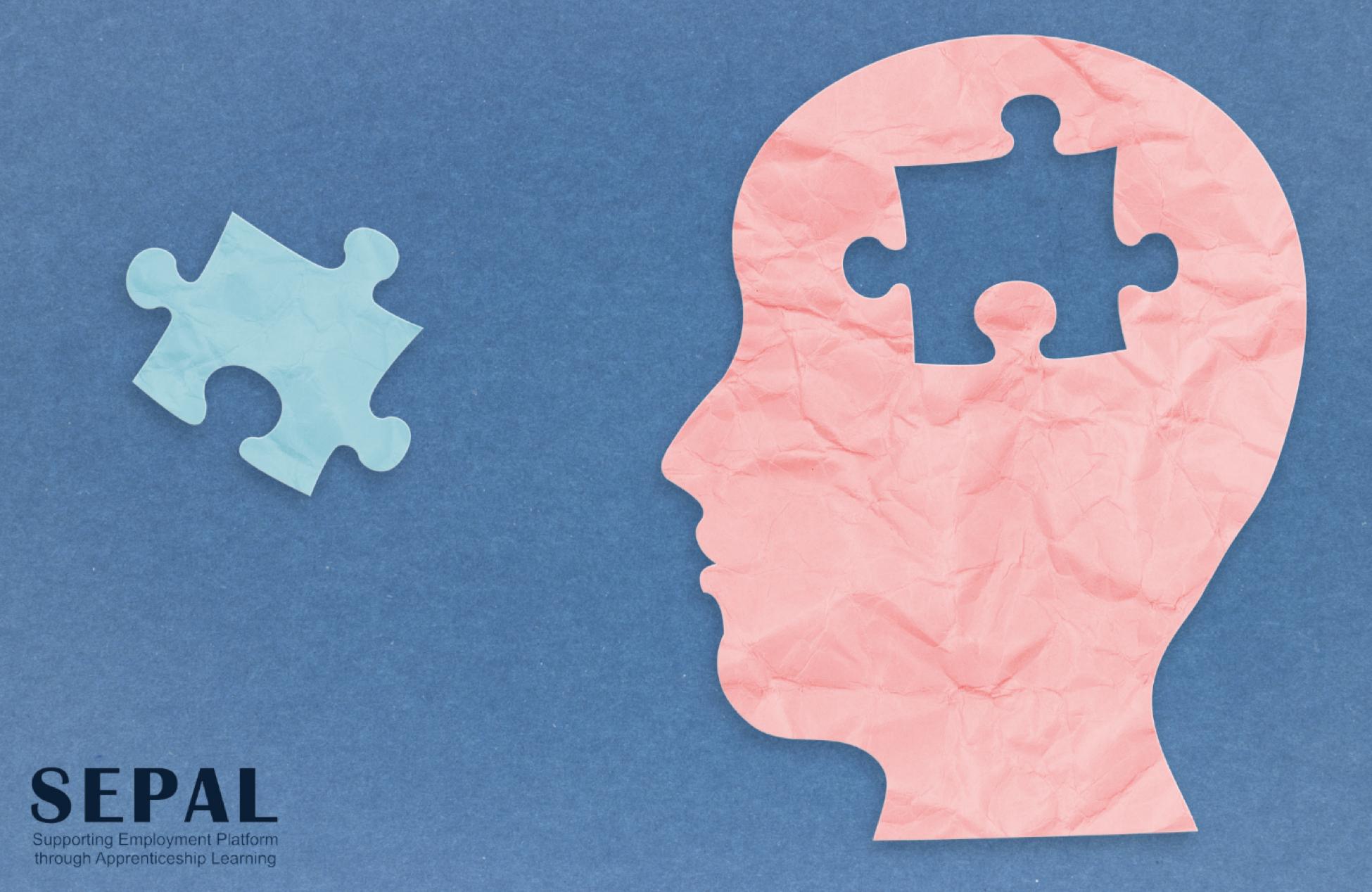
36
Youth Employment Magazine
This whole situation led many young people to depression, isolation and finally failing the final exams for the University. Their daily lives changed radically, they were faced with their inevitable mistakes and are called to plan their lives based on the new data. For this reason, today's 19–20year-olds are trying to make up for the lost years of the pandemic. In conclusion, the effects of the pandemic have caused not only instability in society and the economy, but also a generalized psychological imbalance worldwide. The new everyday life and the particular way of life it entails can last for a long time, making the pandemic a multidimensional international public health problem. The impact of the disease on the psyche of both citizens needs a thorough study by researchers.
Sengkergki Dimitra Public Health Inspector/Professional Consultant
PRO Project
37
Youth Employment Magazine
SEPAL
The effects of the pandemic on youth’s mental health

adapt to the new environment. In the past year, since things have started to slowly go back to normal, many teens have struggled to get back on track and maintain their networks. Friendships were lost and low levels of motivation have started to kick-in, as people were no longer able to enjoy the activities they used to. Now, three years since our lives have started to change, some still experience dissappointment and discouragement when trying to initiate new relationships or reconnect with their old acquaintances.
Talking about our mental health is slowly becoming an everyday thing. For many generations, this subject has been considered a taboo and within diverse nations, conversations on this topic were usually avoided, as it was considered somehow shameful. These days, however, more and more people have started to embrace their mental health care, feeling no longer judged for seeking professional help as a way to cope with emotional distress.
In this context, we’d like to bring into discussion the negative effects of the pandemic on youth mental health, one of the most vulnerable categories in light of the recent changes. Perhaps the social aspect is the first one worth mentioning.
As lockdowns were imposed at a large scale, the COVID-19 situation has put a stop on youths’ opportunities to engage with their peers, resulting in loss of connections, an amplification of loneliness, anxiety that their life would not follow its normal course, as well as fear of not being able to
From an educational, financial and/ or professional point of view, the effects of the pandemic are also visibile. Having finished school or professional training in on-line format, many youths regard themselves as insufficiently prepared to enter the labour market, as many of the skills they were supposed to develop, required a physical presence. Their chances of getting an internship or hands-on experience have lowered, decreasing the opportunities to gain knowledge for a future career. Hopeless that they would ever get the dream job, some youngsters fail to boost their morale, become easily let down and don’t want to keep trying anymore. Moreover, up to this day, returning to school attendance in person might feel quite difficult for some of the youngsters. There are youths who still struggle and what we can do best is assure them that it’s normal to feel like this, showing them that at the same time, there are solutions to cope with emotional distress and enjoy life like they used to.
Alina from Suceava (Romania) - one of the former NEETs that received support through the SEPAL Project, and now part of the team - decided to talk about how the pandemic influenced her personal and professional life, and here are her thoughts: ”I have never thought that the COVID-19 pandemic would have such a huge impact on my mental health. Everything changed when the pandemic hit. With the workplace, restaurants, malls or cinemas closing, and my town quarantined, I found myself isolated from my loved ones, leading to feelings of loneliness, stress, anxiety, and sometimes even depression.
38
Youth Employment Magazine
Moreover, the pandemic disrupted my daily routines (going to the office, practicing sports, participating in social events), bringing, at the same time, challenges such as the remote work (being alone for 8 hours in front of a laptop) and financial insecurity (not knowing that will happen next). All these came with negative effects in my life, but I found inside resources and I tried to adapt to the global context. How? I connected with my close ones through technology – video calls and online interactive games... And it helped a lot! Concerning the professional life, I had started my career, one month before the pandemic. It felt like a rollercoaster! But I was grateful for the fact that I had a job and that I had the possibility to work online, from home, even if I missed the social interaction and the actual presence in the office. Zoom meetings and virtual interactions were just not the same. One essential thing that I learnt during the last three years is that my mental health should come on the first place: I have learnt to set boundaries and create a work-life balance, I have learned to take breaks, go for walks, and disconnect when I need to. I recommend to the others to practice self-care, to ask for the support when they feel it is needed and to talk about their mental health”.
Alina Adomnicăi Communication Manager SEPAL Pro Project
39
Youth Employment Magazine
The effects of the COVID-19 pandemic in Extremadura: Youth, mental health and employment
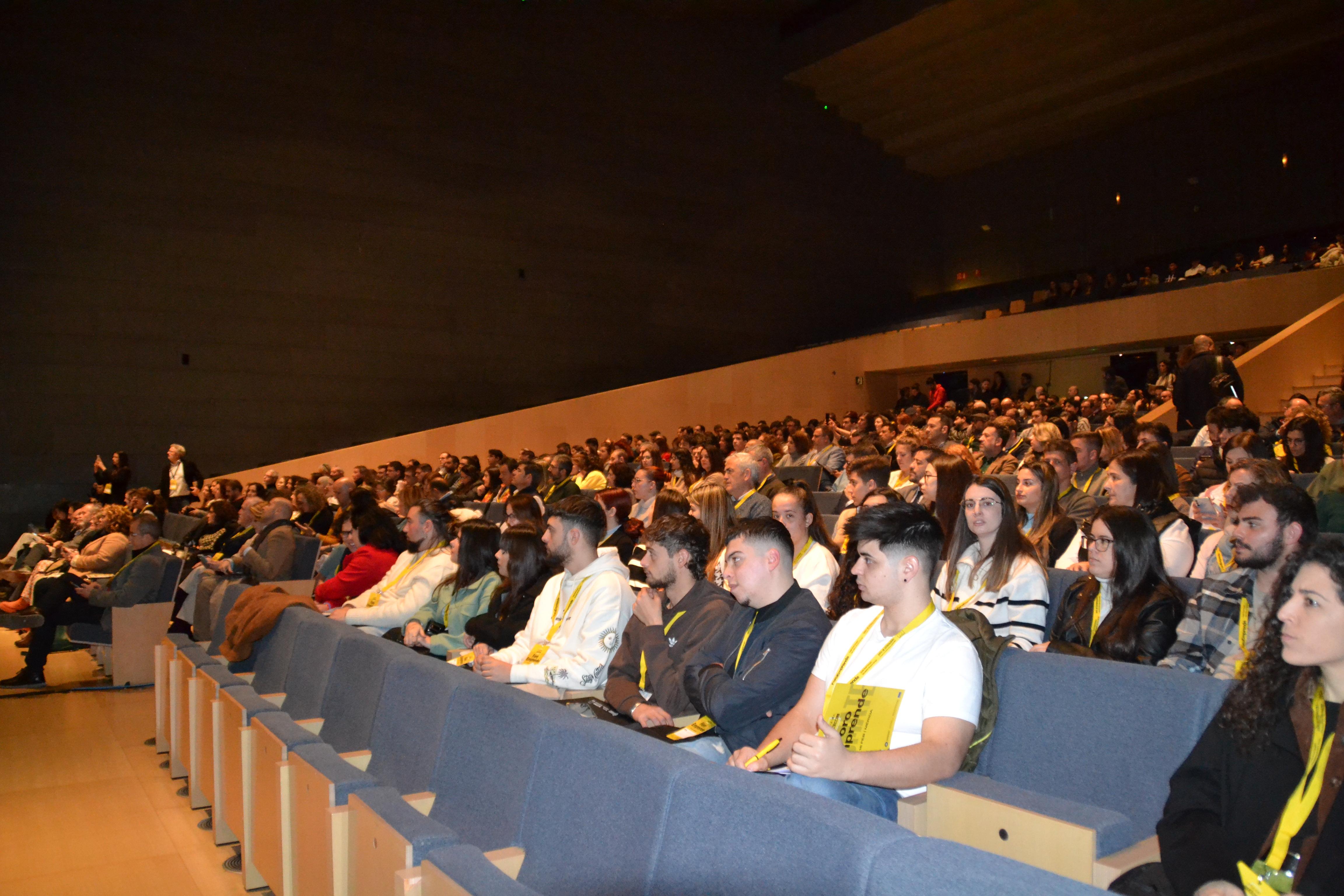
increases in the rates of depression, tension and anxiety among young people during the COVID-19 crisis. Concern for the health of family members, financial difficulties, and disruption to education and social relations have left many young people afraid, frustrated and uncertain about their future. Moreover, the available data show that young people’s mental health has been disproportionally affected in comparison with other age groups.
When we look at the study The impact of the COVID-19 pandemic on the mental health of young people, published in October 2022:
“The physical closure of schools and educational institutions at large not only significantly disrupted the main social dimension in the lives of young people but also meant that psychological and emotional issues were less detectable […]. Relatedly, loss of employment - one of the major impacts on young people during the pandemic. In general, during economic crises, younger workers are more vulnerable to losing their jobs because of their limited experience and the prevalence of temporary contracts among this age group.”
The COVID-19 pandemic has affected all of us, no matter you are young, old, employed, unemployed, rich or poor. We have seen its effect in our social life, our jobs and our physical health but, sadly, its impact on our mental health has been disregarded by a significant sector of the population, specially its effects on young people.
According to Dr Nina Heinrichs, professor at the Department of Psychology at the University of Bremen: “Before the pandemic we had about 10-20% of children suffering from mental illness problems, not all of whom progressed to an impairment. Now, from the last 2 years, it looks like it’ll go up to 20-25%.”. With this sentence we can conclude that, although mental health among European young people was already deteriorating before the pandemic, numerous studies have observed sharp
With this in mind, we can conclude that the COVID-19 pandemic has had a severe effect on the psyche of young people all across the globe. When we delve into Spanish academia researching on this topic, we can find alarming results like the statements of representatives of the Spanish National Health System that says: “The increase in consultations for anxiety, depression and self-injury is of concern to Spanish pediatricians, who are calling for greater awareness of the emotional health of minors. The COVID-19 pandemic has generated many consequences on the mental health of society, especially in the early stages of life, since this is when we are especially vulnerable.”
40
Youth Employment Magazine
When we look at the data collected by the different Health Centers and hospitals of the country, we have that the number of cases related to mental health on young people has been in crescendo.
For example, staff of the Sant Joan de Déu Hospital in Barcelona, reports that during the first quarter of 2022 "47% more emergencies related to the mental health of young people have been attended than during the same period of the previous year". According to the center's data, "in the last year the number of urgent referrals to the eating disorders unit has doubled and the number of consultations for this disorder to the children and youth health centers of the community area of Catalonia has increased by 25%”.
But what is the situation in Extremadura? Well, the situation in the region is not better than the national average. According to one of the most recent studies regarding mental health, employment and youth, Juventud en Extremadura 2021¸ only 12% of young people live solely on their income, making economic dependence a serious problem, only 10% live in their own home or with a partner, while more than 87% have to share housing with family or other people.
Having going through all of this data, we can conclude that the pandemics has greatly affected all aspects of the life of young people as much as adult and elder people, with the exemption that with the movement from in-situ employment towards teleworking and the closure of a lot of hospitality and entertainment businesses, a sector intimately related to temporary and contingent employment, the toll the pandemic had in the job prospects of young people has been much more severe.
From FUNDECYT we believe that even though the pandemic has affected all aspects of young people we can at least try to solve some of its effects by enabling young people to have access to a better job market and by building new capacities in their territories to foster new, sustainable selfemployment. Thanks to the activities of the RAISE Youth project in Extremadura, we have seen that this can become a reality and that the rapid digitalization of the job market that arose during the pandemic can
become an advantage to young people, helping them create new initiatives and collaborate with each other from miles apart, thus reinforcing and reinvigorating their territories, communities and creating new network for future generations of entrepreneurs.
RAISE Youth Project
41
Youth Employment Magazine
Experiences and testimonials of NIITS - clients of youth home "Hidden likes"
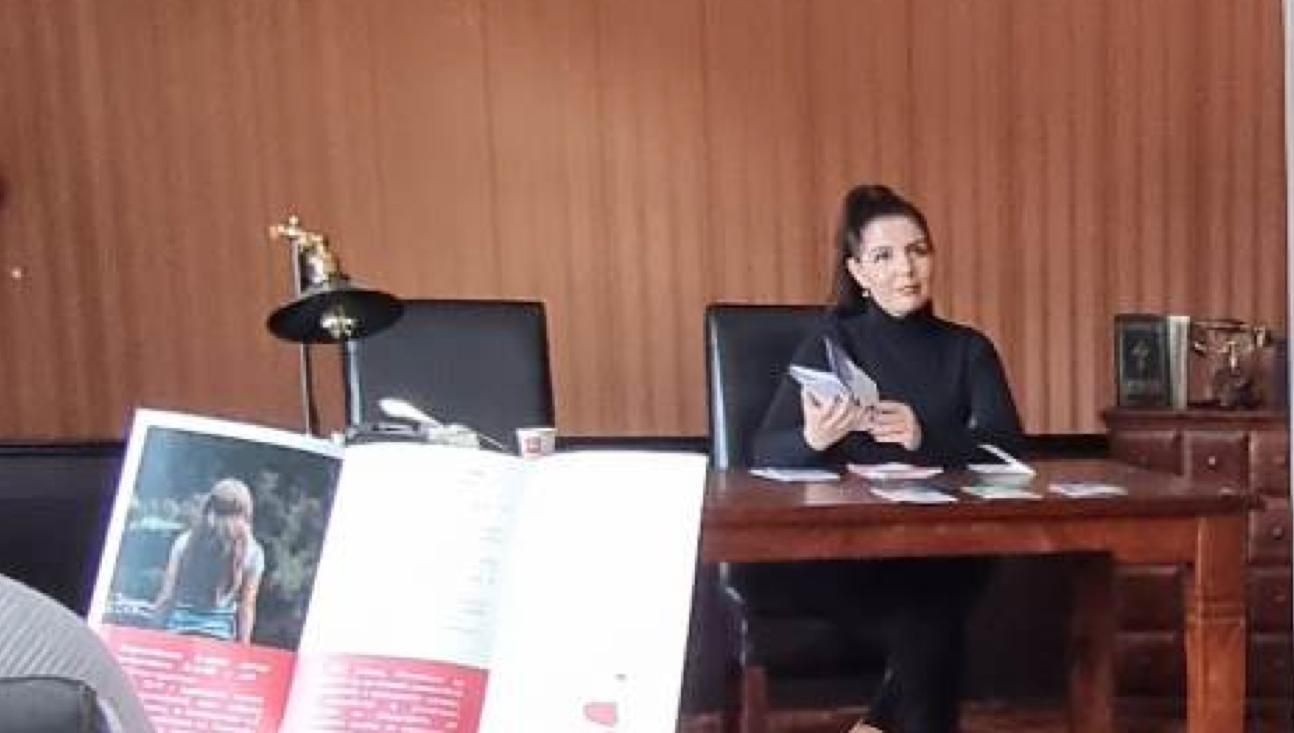
established daily routine and the inability to follow the usual activities, as well as the limitation of social contacts, have left a deep imprint on the mental health of societies around the world. However, the situation has made it even more difficult for all those young people with pre-existing mental health issues, such as our clients.
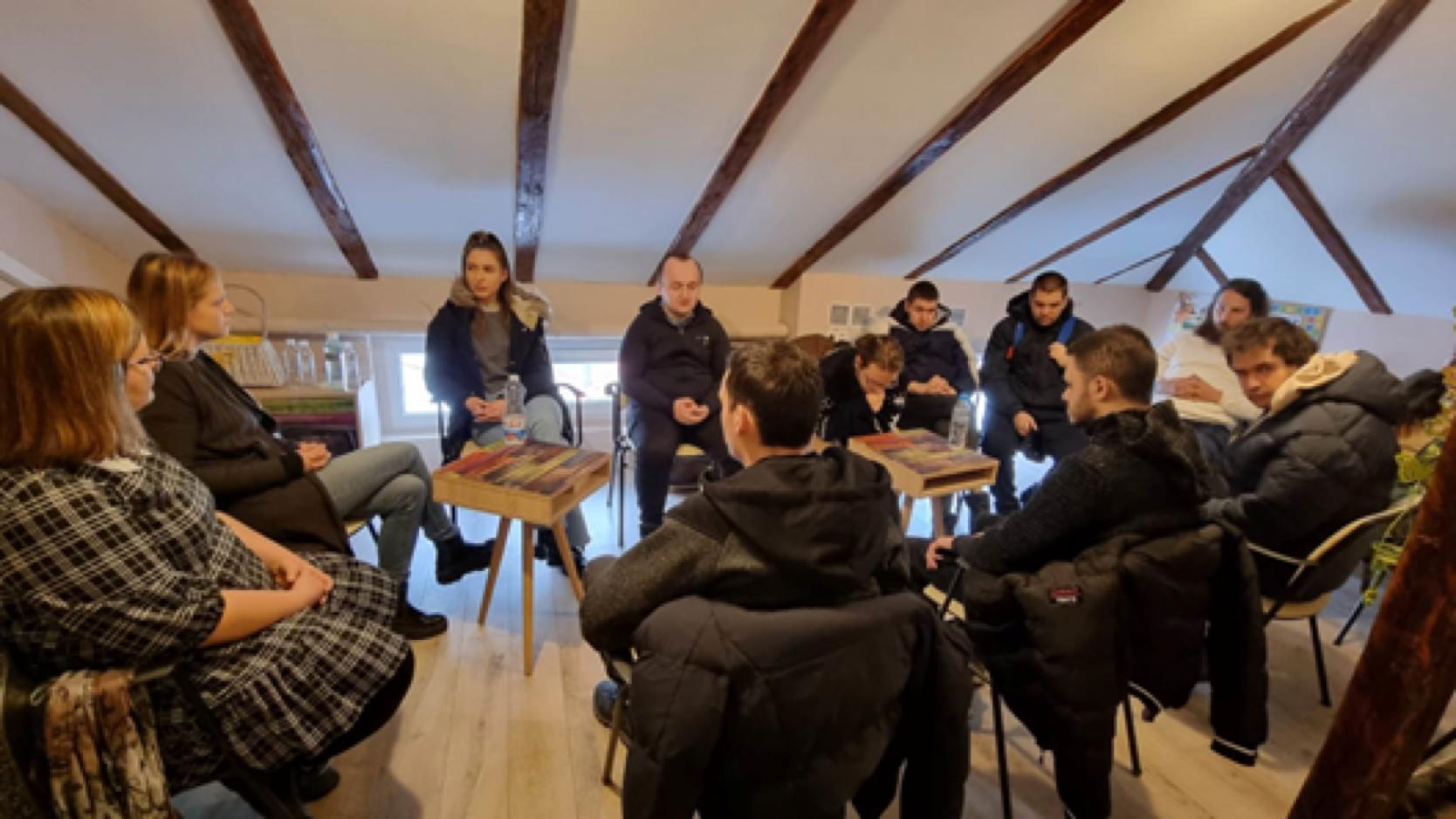
The registration of the first cases of the coronavirus infection and the subsequent dramatic increase in the number of patients proved to be a considerable challenge for the public health and medical communities, necessitating the adoption of drastic health measures to minimize the risks, impact and spread of the disease. The pandemic caused by COVID-19 has created an unprecedented situation that has changed the daily rhythm of life, limiting freedom of movement. Although more than a year has passed since the lifting of restrictions and introduced measures, the impact of the pandemic is far from over, especially for vulnerable youth, part of the project " Life Investment is the Key to Employment," / LIKE/.
The measures and restrictions that governments have taken concerning the health crisis and the prevention of its spread have been necessary to preserve the lives of many people around the world. Still, at the same time they have created several risks to their mental health. Concerns and fear for one's health and that of family and loved ones, the loss of the
Family health concerns
Much of the online media, radio and television, magazines and newspapers portrayed young people as not respecting the measures and restrictions that governments have taken about the health crisis. This resulted in them being perceived as the main culprit in the spread of the disease. The thought that they could be potentially dangerous for the health of their family created deep anxiety and fear in some of the young people.
42
Youth Employment Magazine
This is also the story of one of the young NEETs in the "Hidden Likes" house, the 23-year-old D.I., who lost his father as a result of a long illness. The loss of a family member has left a deep imprint on his psyche and made him face the difficult struggle of inconsolable pain and shock. For 3 long years, he has been trying to overcome this traumatic event and deal with his sadness. At a time when he seemed to have managed to get his emotional problems under control, the COVID-19 pandemic reawaken this old trauma of his. Danny become extremely anxious about his mother's health and began to feel an overwhelming fear that he may lose her as well.
"I became really worried and scared for my parent's health. I couldn't stop thinking about the worst. It was so overwhelming. This affected my sleep as well." - so D.I. summarizes his post-covid symptoms.
Loss of social contact and isolation
Friendships provide pleasant and stimulating experiences, strong and positive emotional support, acceptance and closeness. Maintaining a network of good friendships can have a big impact on the health and wellbeing of young people. Research conducted to investigate the effects and impact of the COVID-19 pandemic on young people in Bulgaria, Ireland, Italy and Latvia shows that support from friends, sharing with them and being able to participate in activities with other young people are among their top priorities. The introduced social distancing measures undeniably succeeded in slowing the spread of the disease, but at the same time faced all the youth of the world with unforeseen long-term isolation, which deprived them of the vital necessity of shoeing and thus worsened their socio-psychological well-being.
One of the most common mental health consequences of the pandemic is depression. Depression is common all over the world, in people of all age groups and different social backgrounds, and in both men and women. Usually, the first manifestation of the symptoms of depression is at the age of 20-25. Prevalence estimates vary widely, but in most countries, 8–12% of people experience symptoms of depression in their lifetime.
Currently, The World Health Organization points out depression as the leading cause of disability worldwide. One study found that up to 66% of patients suffering from depression rated the illness as highly disabling.
We will tell you the story of 20-year-old L.K., who joined the project "L.I.K.E." "Investment in life is the key to employment" because she struggles with depression, which appeared during the pandemic and isolated her from the world, her loved ones and her family. L.K., who stayed at home, stopped appearing for exams and interrupted her education at one of the most prestigious European universities.
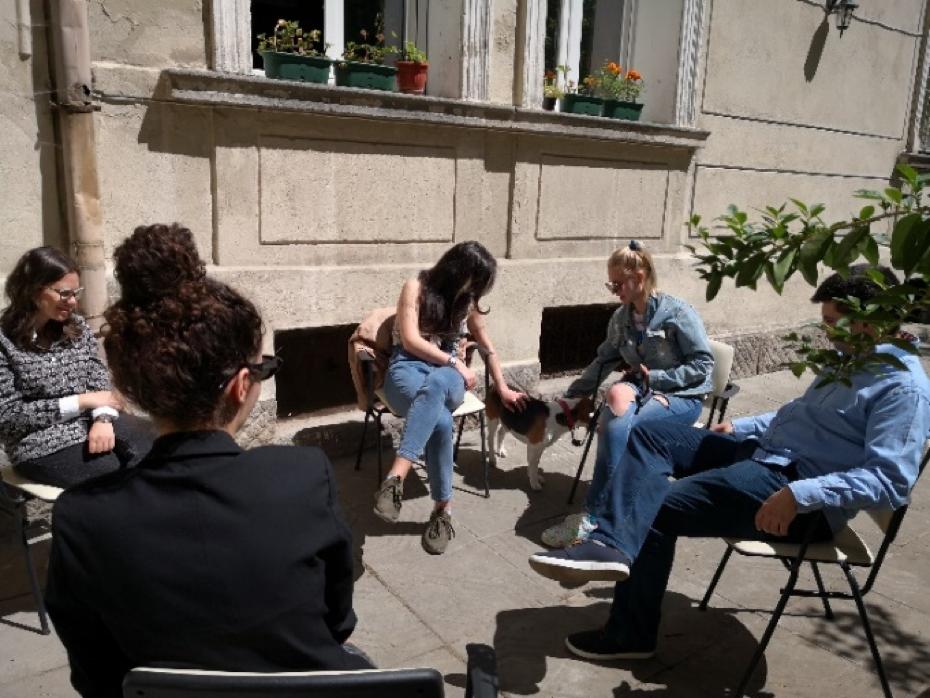
43
Youth Employment Magazine
After returning to Bulgaria, her parents brought her to "Hidden Likes" with a request for help. Through the psychological support provided to her at the Youth House, L.K. gradually emerged from her self-isolation, successfully counteracted social withdrawal, and acquired appropriate socialization mechanisms that helped her form new friendships. They became her coping mechanism for difficult emotions. Today L.K. is a student again but lives with the traumatic anxieties that a new pandemic or new isolation will return her to her previous state.
“At the time of the pandemic, I was neither studying nor working so the time spend with my friends was everything I had. The situation affected me unpleasantly because I lost touch with them. I felt lonely and depressed most of the time.“ – this is what L.K. shares today.
Fear and anxiety
Negative emotions such as fear, anxiety, worry and severe distress were most strongly manifested in the first months of the crisis due to the wide media coverage of the spread of the virus, the number of people infected with the disease and the number of those who lost their fight against it. The emphasis on frequent hand washing and the risk of infection after touching objects and meeting people as part of the prevention of COVID-19 has led to the appearance of obsessive and intrusive thoughts in not a small number of young people. In those with a pre-existing mental disorder, it worsened the symptoms.
This is how the situation affected A.R., who suffers from obsessivecompulsive disorder. She had already started attending the activities in the Youth House when, during the tightening of measures, she shared increasingly obsessive thoughts and efforts to control the compulsions that make her constantly wash and disinfect her hands.
internships and jobs because of her worry that in a work environment, everyone will see her bruised hands and make fun of her for constantly going to the utility room to wash her hands for the hundredth time.
Life in a bubble
The prolonged social distancing measures, the lockdown, the inability to follow the daily routine combined with the closure of schools, universities and places where young people usually have the opportunity to meet their peers, has led to a feeling of despair and hopelessness, apathy and loss of initiative.
Another one of our cases tells how the long isolation affected the 25-yearold D.Z., who joined the project "L.I.K.E. "Investments in life are the key to employment" because of a lack of motivation for future realization and serious difficulties in integrating the labour market. D.Z. ended up with bipolar disorder unlocked during the pandemic. Indicative of Bipolar Disorder is the adverse impact it has on employment opportunities, quality of work performed, and presence at the workplace. A global study by the World Health Organization (WHO) found that people with bipolar disorder miss an average of 17 days of work or other activities per year. According to the WHO, bipolar disorder is the 12th most common cause of moderate to severe disability worldwide. The steps that our client D.Z. and all attempts to find a job have stopped with the onset of the covid crisis. Treatment and psychological support, mentoring and guidance to build a stable daily routine helped D.Z. to effectively set goals, and with the support provided by our specialists – to follow them.
"With each day of the lockdown, I felt a stronger sense of hopelessness. I started losing interest in everything and didn't even want to get out of bed in the morning.”
“I used to spend most of the day washing and sanitizing my hands because I just couldn’t stop thinking of the possibility to get infected. I reached a point where I wasn’t able to get rid of these obsessive thoughts”.
The fight for her condition continues among the psychiatrists and clinical psychologists of the LIKE project. It is still difficult to be targeted for
Collected and processed the information - Petya Atanasova, a psychologist at the LIKE project
44
Youth Employment Magazine
LIKE Project
The Covid-19 crisis worsened neurotic and psychotic disorders
Mental disorders accompany humanity in all times and countries. Naturally, during a period of major catastrophic events - pandemics, wars - or immediately after them, the prevalence and manifestations of these conditions increase.
In general, mental health disorders fall into two broad categories. They used to be called "neuroses" and "psychoses", and now, respectively, "common" and "severe" mental disorders. NEETs of both types have been clients of the "Hidden Likes" Youth House during and after the pandemic so we have direct observations of them.
In the first category - relatively mild but widespread conditions - under the influence of life events, conflicts and traumas, people can have unreasonable insurance, panic attacks, intrusive and hypochondriacal thoughts, depressed mood, heightened sense of guilt, physical symptoms without physical illness (suffocation, trembling, palpitations, pains and many others), phobias, addictions, eating disorders, etc. No one is protected from such reactions, especially when the cause of them is severe enough. Treatment, through psychoanalysis and/or antidepressants, is necessary when symptoms begin to rule a person's daily life, and work, friendships, family, and entertainment take a back seat. Whether it will be reached depends also on the resilience of the personality and the capacity to cope with difficulties, which are formed not only on a biological basis, but also with the decisive involvement of the family and personal experience, and can be a comprehensive psychotherapeutic impact.
In the other category fall the psychotic disorders - schizophrenia, etc., in which during an illness episode the detachment from reality is significant and the person does not understand and is not responsible for his actions. Psychoses can be very severe, but luckily they are not that common. Only with them, there are hallucinations, delusional thoughts, refusal of treatment, and permanent disability (which in most cases can be avoided). Real-world events such as the Covid 19 pandemic may trigger or influence the content of psychotic episodes, but are not the primary cause of them; biological factors and drug therapy in this case cannot be ignored. But with proper and sufficient treatment (biological, psychological and social), even a person with schizophrenia can work, have family and friends, appear mentally healthy and fit in with others.
In the last few years or perhaps even 1-2 decades ago, the opinion that our mental health is increasingly damaged and deviations from it are becoming more and more widespread and severe has been growing strong among European citizens. Specialists are sceptical of these claims because they know the experience of other countries and of past times. More than 100 years ago, Sigmund Freud noted that we are all at least neurotic. The defence mechanism he describes, "suppression," explains how we banish from our mind information that frightens, saddens, or embarrasses us. This is the basis of both the escape from reality, which manifests itself through neurosis or psychosis and the general misunderstanding and inadequate attitude towards mental disorders and their treatment. And to the victims, who were never a small percentage of us. And to invest in mental health.
Unfortunately, treatment and rehabilitation of mental disorders in Bulgaria are neither as accessible as necessary, nor are they carried out sufficiently enough. We have medicines that are used all over the world. There are already psychoanalysts in Sofia and some other cities. What`s more, a year ago the journal "Psychoanalysis in Bulgaria: Here and Now" was
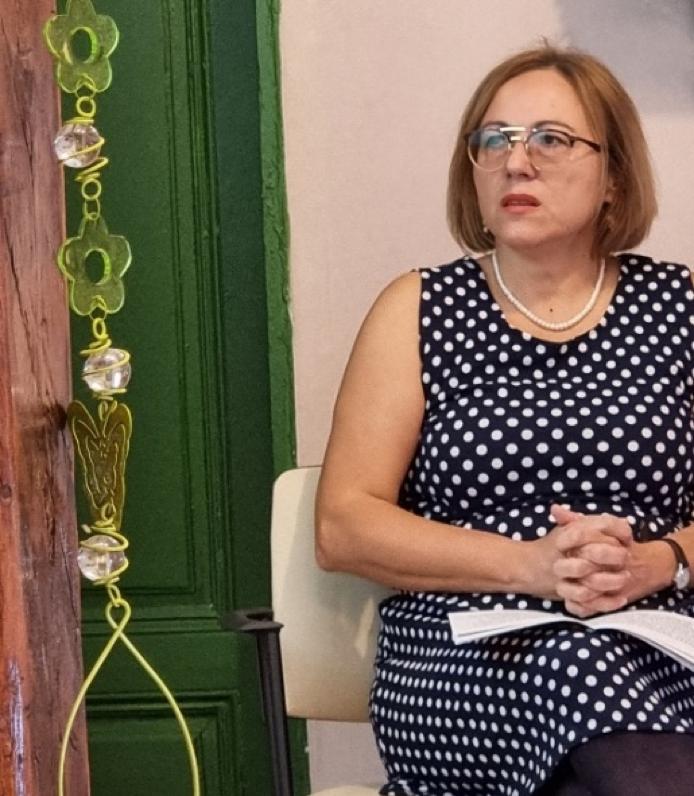
45
Youth Employment Magazine
published. Other psychotherapeutic schools are also being developed, but the Health Insurance Fund does not pay for such a service for now. And as for psychosocial rehabilitation, without which the treatment of psychosis fails, we will only mention that in Sofia there are 2-3 daycare centres with 25 places each and only our Youth House manages to somewhat compensate for the deficit of offered services.
What has Covid-19 brought us?
According to a widespread opinion among specialists, also embedded in the theory, major social crises and difficult times increase the cases of mild mental disorders, while the severe ones remain a relatively constant percentage. The coronavirus pandemic has allowed us to gather our impressions on the matter. We have met many patients who seek help from a psychologist or psychiatrist for the first time. We saw more anxiety disorders with shortness of breath and other symptoms mimicking Covid-19, more hypochondriacal thinking and unnecessary research, more paranoia in the various conspiracy theories, and more domestic violence and addictions brought on by the lockdown. Fanatical adherence to measures and fear especially among those with sick or elderly mothers, and unreasonable denial of danger among those whose businesses are at risk or who are drastically impoverished.
Why has the pandemic reflected our mental health harder?
When there is a threat, one mobilizes to deal with it and may even feel better. This ensures that tension will only appear when the danger has already passed. In this case, however, we had two threats working in opposite directions - the fear of disease and death, which makes us lock ourselves at home, and the fear of impoverishment and hunger, which forces us to go to work and expose ourselves to the risk of contamination. And if we remember the "Double bind" hypothesis as a cause of schizophrenia of Gregory Bateson and Jay Haley of the Palo Alto Institute, USA, according to which the disease originates from receiving (in early childhood) strong conflicting messages from a source that cannot be neglected, we can speculate why both neurotic and psychotic disorders have worsened as a result of the Covid crisis.
But finally, the importance of mental health reached more people - thanks to the project LIKE anti-stigma campaign, regular open days, podcasts "Questions and answers", meetings with citizens and employers – all this has supported our work and assisted the processes of acceptance among the society of mental health problems.
Elka Bozhkova,
LIKE Project
46
a psychologist at the LIKE project
Youth Employment Magazine
The growth of Bulgarians with addictions who, after a long treatment, have returned to drugs, alcohol or gambling is serious. The reason - anxiety and stress provoked by the restrictions due to COVID-19. After years under the control of drugs, a young working mother V.C. manages to fight drugs. However, the restrictions due to the pandemic are beginning to adversely affect her will.
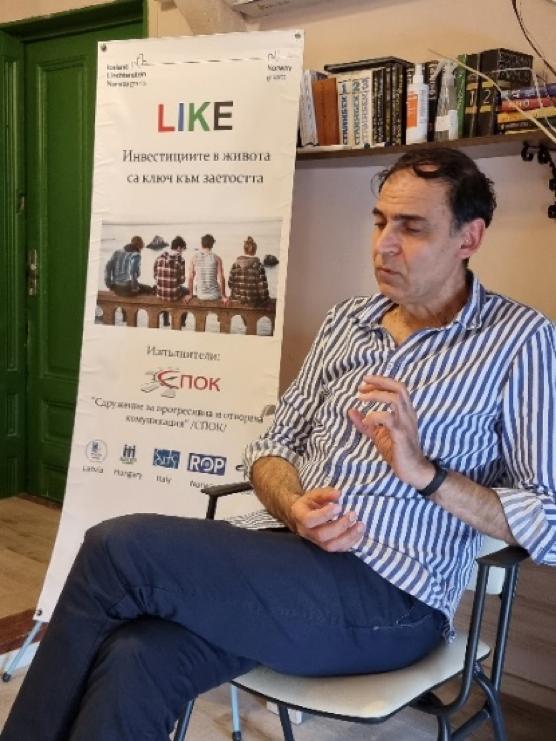
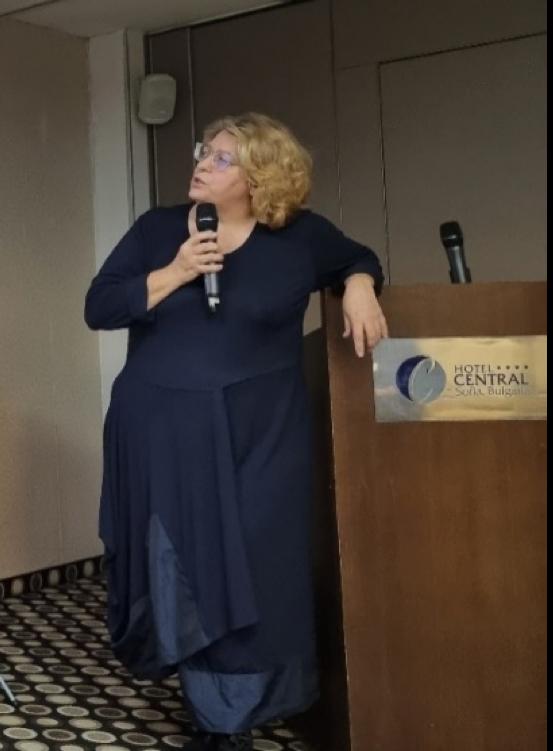
"We were wearing masks, we couldn't communicate normally, it's very nerve-wracking.”
Resorting to drugs again is inevitable, or at least that's what V.C. thinks. What follows is job loss, distancing from her family and child, and failure. The pandemic is driving ex-drug addicts back to their vices. Social distancing and masks are among the main reasons for the regression. Not being able to meet with relatives and friends affects us a lot. Masks are also stressful. 30% of people who had stopped using drugs for a long
period resumed the use of psychoactive substances. As with most mental disorders, and patients with substance abuse and dependence, the effect of the COVID-19 pandemic is having a negative impact. Directly - through increased levels of stress, anxiety and depression leading to escalation of use and indirectly through postponing, avoiding or stopping a treatment or relapse prevention under the powerful influence of fear of contagion. During the lockdown at the beginning of the epidemic, due to the refusal or unwillingness of not a small number of patients to continue their therapy online, for various reasons, they practically stopped their treatment. For others, moving to an online consultation format remains the preferred way to continue treatment, which somewhat reduces its effectiveness.
He (P.F.) is 28 years old and was first admitted to the emergency department of a large Sofia hospital. He used to work as a hotel manager after his high school graduation and by that time was living with his girlfriend. P.F. is responsible, disciplined and hardworking. He likes to "dissolve with paradise gas". His mother reports that she has seen him "passing out” while inhaling the gas but even such incidents haven’t been able to make him stop and break the habit. During the lockdown, the hotel he was working at had to close. This left P.F. at home. The situation led to an increase in the use of paradise gas. After swallowing a large amount of the paradise gas, P.F. developed psychosis -expressed in the belief he is being monitored, "there are reports that everyone in Sofia will die, there are orders from above to save his relatives, he thinks they will kill him...". It's rampant, aggressive and auto-aggressive with rich crazy production. He was treated for a month in psychiatry and is currently undergoing medical treatment. He has been a client of "Hidden Likes" Youth House for a year. He is now back to his work habits, working hourly at the hotel, but partially attending the group therapy sessions at the House. His first steps in his workplace are guided by a mentor - one of our psychologists.
47
Youth Employment Magazine
ЗЛОУПОТРЕБАТА С АЛКОХОЛ И НАРКОТИЦИ
КАТО
СТРАНИЧЕН ЕФЕКТ ОТ ПАНДЕМИЯТА
Changes in addictions as a result of COVID-19?
Excluding nicotine, the most common addiction is alcohol, followed by tetra cannabinoids and stimulants. Heroin addiction is less common in our practice. Regarding a change for any of the addictions according to the situation, whether there is a change in the frequency of occurrence of types of addictions among the population, is not noticeable in a distinct way. We all see how in recent years many young and not-so-young people spend a significant part of their time online - in games, on social networks or just surfing. It's as if the pandemic that isolates us from our social contacts has reinforced this "modern" trend.
In the treatment and prevention of substance abuse and addiction, as well as gambling, depression, anxiety, phobias, and emotional burnout are often at the root of triggering use and addiction. Our observations show an increase in these mental health problems and illnesses.
The number of clients with alcohol addiction in the Youth House increased. As a result of the pandemic, the use of alcohol has increased - both in frequency and in the number of people who try to overcome their stress and difficulties through alcohol.
The closure of schools and universities, isolation at home, as well as extended periods of online participation in classes, have hurt the psychophysical condition of young people. They need social-emotional contact, especially in the specific sensitive age periods for psychological development. Of course, the measures affect all of them in different ways and to varying degrees according to their personalities. As with adults, the pandemic has increased the use of surfactants among children and youth. Among them, the most common harmful use is nicotine, followed by alcohol, amphetamine, methamphetamine, ecstasy and, less often, hallucinogens, non-prescribed psychotropic drugs and opiates. At these ages, addictions are rarely reached. If this happens, the addiction is to opiates, which are the most quickly addictive.
The team of experts of the Youth House "Hidden Likes"
Our team had to adapt very quickly to the situation in the country and the world. I think all colleagues managed the challenge. As with every other
person we also have our fears and uncertainties about the development of the pandemic. Just as doctors mobilize all their resources in such situations, as representatives of the helping professions, we also see it as our duty to care for our NEETs who are in crisis or need it. The difficulties in this type of public situation arise rather from the individual characteristics of the clients and not so much from the flexibility of professionals who are prepared to work under pressure and adapt quickly.
Project
48
Dr. Tsvetelina Petkova, psychiatrist at the LIKE project Dr. Yuri Katsarov, clinical psychologist at the LIKE project
Youth Employment Magazine
LIKE
Fear reveals the direction in which a society is moving
pandemic have affected people's psyche, mostly the fear of contracting the coronavirus.
I see more people with panic attacks, more hypochondria, and more confusion and hesitation about who to believe. Staying at home certainly led to alcohol, drugs and food abuse and more domestic violence. Some people reacted with denial and even paranoia.
The pandemic has the strongest impact on people who are subject to both threats - in the risk group due to illness (or with an elderly parent at home) but also threatened by financial instability. They are faced with the decision of which threat to avoid in the first place. In this case, confusion and disorganized behaviour can go a long way.
The COVID-19 pandemic has added up more to the fears of modern society - terrorism, economic uncertainty and recession, immigrants, and climate change. The rumble from the media only worsened the picture. The fear, Heinz Bude – a german sociologist writes in his book “Society of Fear” 2014, reveals the direction in which a society is moving and probably is the only imperative that could unite its members. There are some elements related to the pandemic that affect the population more, such as separation from loved ones, loss of freedom, uncertainty about the spread of the disease and feelings of helplessness. These aspects can lead to dramatic consequences, such as an increase in suicides. Suicidal behaviour is often associated with feelings of anger driven by the stressful condition widespread among people who lived/live in the most affected areas.
As a result of the COVID-19 pandemic the number of sad and desperate people has grown
I see it every day in my practice among the clients of "Hidden Likes" Youth House. More people are hyper-anxious, and the measures to combat the
Social isolation was somewhat compensated by the various ways of communication, but the absence of sports, walks, sunlight and above all security of life, health and income, made many people depressed, upset and confused.
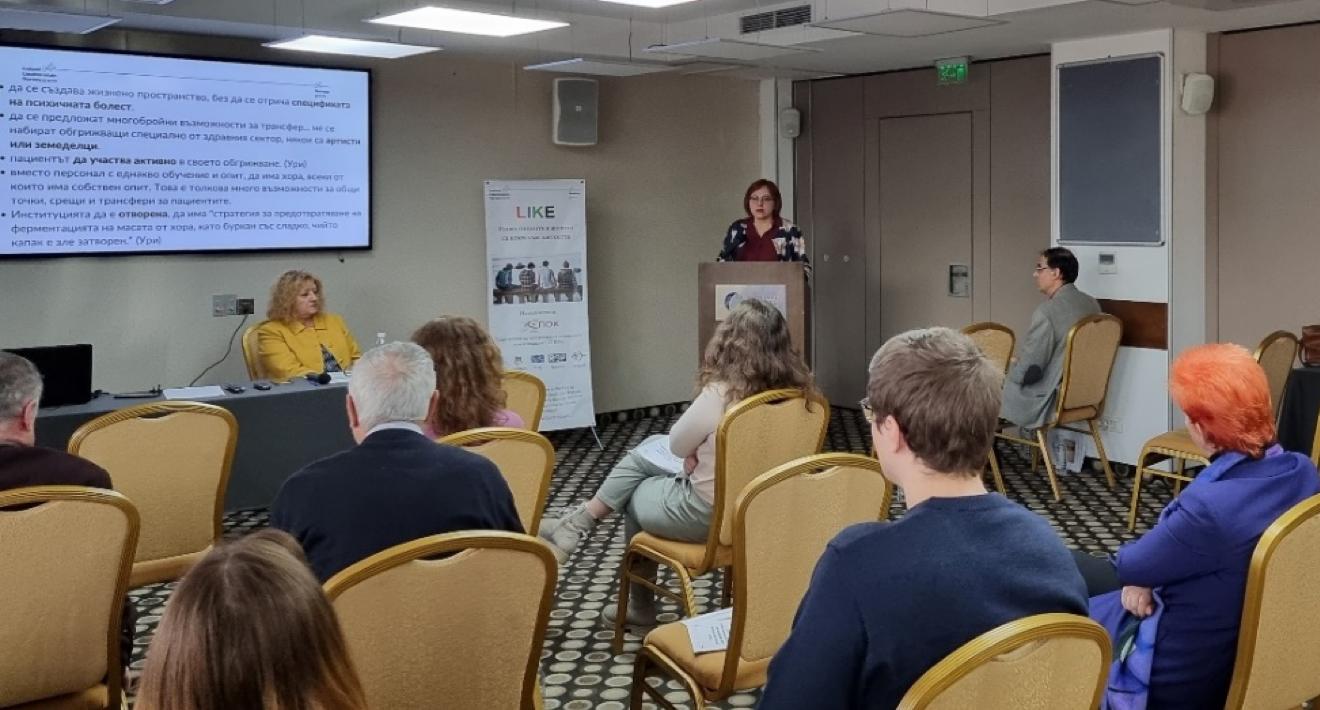
What is happening after the pandemic?
The difference between normal anxiety and diagnosis is only quantitative. Anyone can have neurotic symptoms, and simultaneously unconsciously transform their anxiety into palpitations, tremors, shortness of breath, dizziness, obsessive thoughts, rituals, phobias, blockages and even paralysis and seizures. (This is a discovery of Sigmund Freud, which is not forgiven because the human psyche protects itself from the truths it does not want to know.). The problem of the shortage of doctors and nurses, which the pandemic - like any crisis - has exacerbated even more, brings in its wake another: the burnout of doctors, that no one speaks publicly about. Between 68.7% and 85.5% of medical staff are women with an average age of 26–40, and women are more likely to be affected by anxiety, depression and distress. Age and pandemic-related depressive symptoms have been linked. Medical staff under 30 years of age reported higher self-reported depression scores and greater concern about
49
Youth Employment Magazine
contagion to their families than did those at an older age. The staff over the age of 50 reported increased stress due to the death of a patient, extended working hours and lack of personal protective equipment. It cannot be any different in Bulgaria and in other countries, partners of the project LIKE.
Has the pandemic not changed the attitude towards mental health in Bulgaria and Europe?
In Bulgaria, people with severe mental disorders and their families are practically abandoned by the state(except for the provision of medication, which is not enough). Frequent mental disorders (anxiety, eating disorders, addictions, etc.) have become very widespread, for which there is almost no psychotherapy offered in the health system.
A few years ago I wrote a book called “The Truth About Mental Illness”. When we were preparing the documents at the printing office, one of the employees there said: "I don't want to know her!" I don't want to know the truth about mental illness!" And this is a normal reaction, but there are also people who manage the mental health system in Bulgaria and they should know that the UN Convention on Human Rights is not respected and any mentally ill person can condemn the Republic of Bulgaria if he wishes to. Freud's thesis that even the greatest calamities cannot cause insight into unpleasant facts is confirmed.
Ms Elka Bozhkova – clinical psychologist expert in projects LIKE
LIKE Project
50
Youth Employment Magazine
Impact of the Covid-19 pandemic on young people with mental problems who are not engaged in education, employment or training (NEETS)
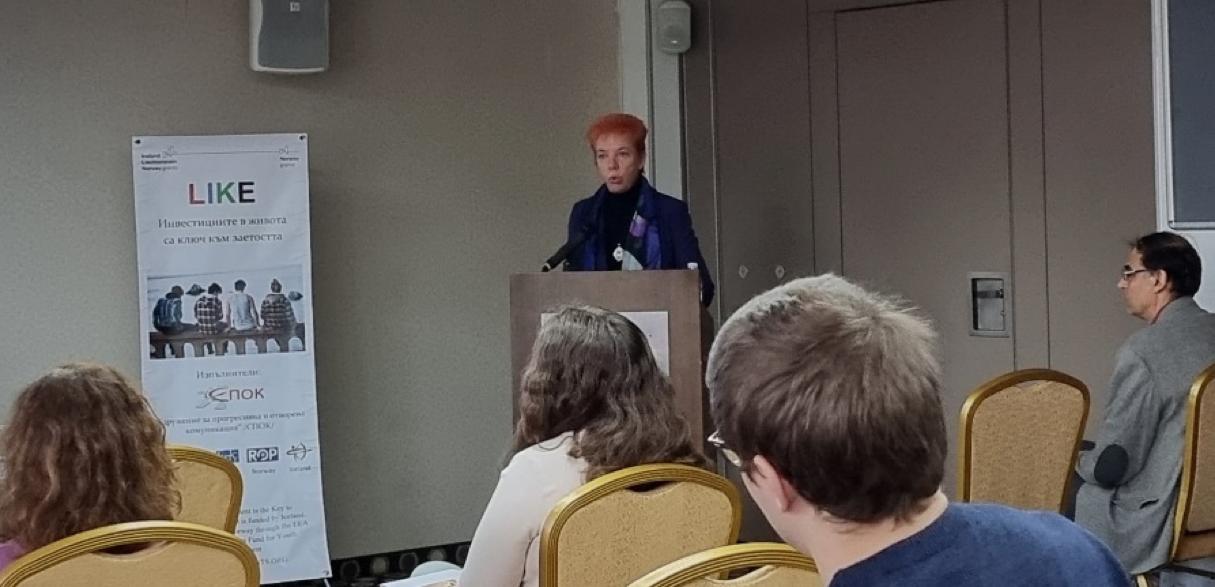
increase the dissemination of information on mental health prevention among NEETs and the general public.
The results of the data analysis are aiming to update and adapt the methodology for work in the "Hidden Likes" Youth Houses, improving the quality of the applied concepts and increasing the possibilities of the project in the new conditions of the post-covid pandemic.
Methodology
The project toolkit was developed to further address the needs of NEETs with mental health issues by examining the impact of the COVID-19 pandemic.
Data analysis in four countries – Bulgaria, Ireland, Italy and Latvia
L.I.K.E. project – Life Investment is the Key to Employment is implemented in a broad partnership and is working internationally, seeking pan-European solutions for social inclusion and sustainable employment for young people with mental health problems.
Three Youth Houses (Bulgaria, Latvia and Hungary) were built and are functioning under the project. Similar activities are offered in the territory of Ireland. The way of organizing the activities in the houses is based on the previous study carried out within the project ISOLATION AND SELFISOLATION OF YOUNG PEOPLE WITH MENTAL PROBLEMS. However, the 2020 Covid crisis and measures taken by the government have led to unforeseen long-term isolation, additional stress, and feelings of insecurity and fear among NEETs with frequent mental health problems. This has created a need for further research into these negative influences and to
The methodology includes a survey using a random selection method in four countries - Bulgaria, Italy, Latvia and Ireland. In contrast to the previous research, here Italy is present instead of Hungary. The target group includes young people between 15 and 29 years of age with mental health problems, and there is an increased sample of young people between 25 and 29 years of age, including more than 10% of Roma people.Качество на живот, доверие и взаимоотношения
Quality of life, trust and relationships
The results show dynamics in the work status of young people during the pandemic. One in four have lost their job and one in six have started a new job. For 60% of respondents, there was no change.
51
Youth Employment Magazine
Did your work status change because of the pandemic?
The amplitude by country is more noticeable here - this is the most often answered in Italy (67%), and the least often - in Latvia (46%). Bulgaria and Ireland are close to the average for the whole population – 57% and 55%, respectively.
Did the pandemic affect your familial relations? (overall and by country)
Four out of ten respondents estimate that the pandemic has had a negative impact on family relationships and that they have become more strained. Only one in ten reported that they had improved. According to half of those surveyed, relations have not been affected by the pandemic.
The distribution by country does not show large deviations - most frequent they answer that they started work in Bulgaria - 19%, and least frequent in Italy - 15%.
Regarding job loss, this happened most often in Ireland - 29%, and least often - in Bulgaria - with 21% of respondents.
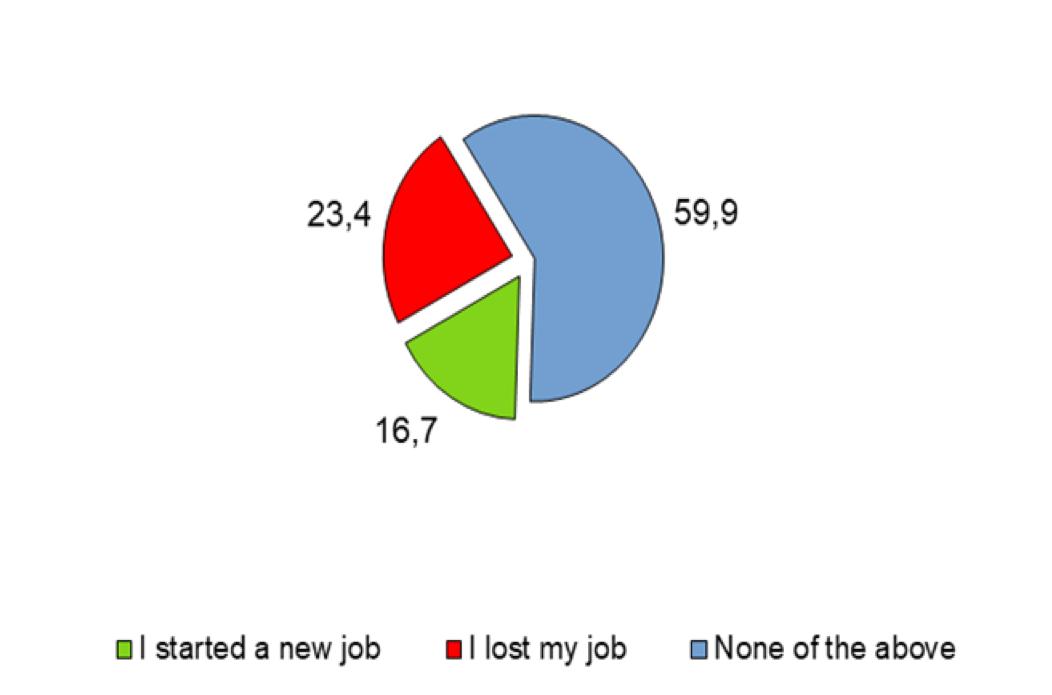
More than half of the young people surveyed - 56% answered positively to the question whether they have faced financial losses as a result of the pandemic.
Have you experienced any financial loss due to the pandemic? (overall and by country)
Family relations in Latvia were most negatively affected - 54% of respondents share a similar opinion. There is also the smallest share of those who believe that relations have improved - only 5%. In contrast, 15% of the Irish believe that relations have moved in a favourable direction.
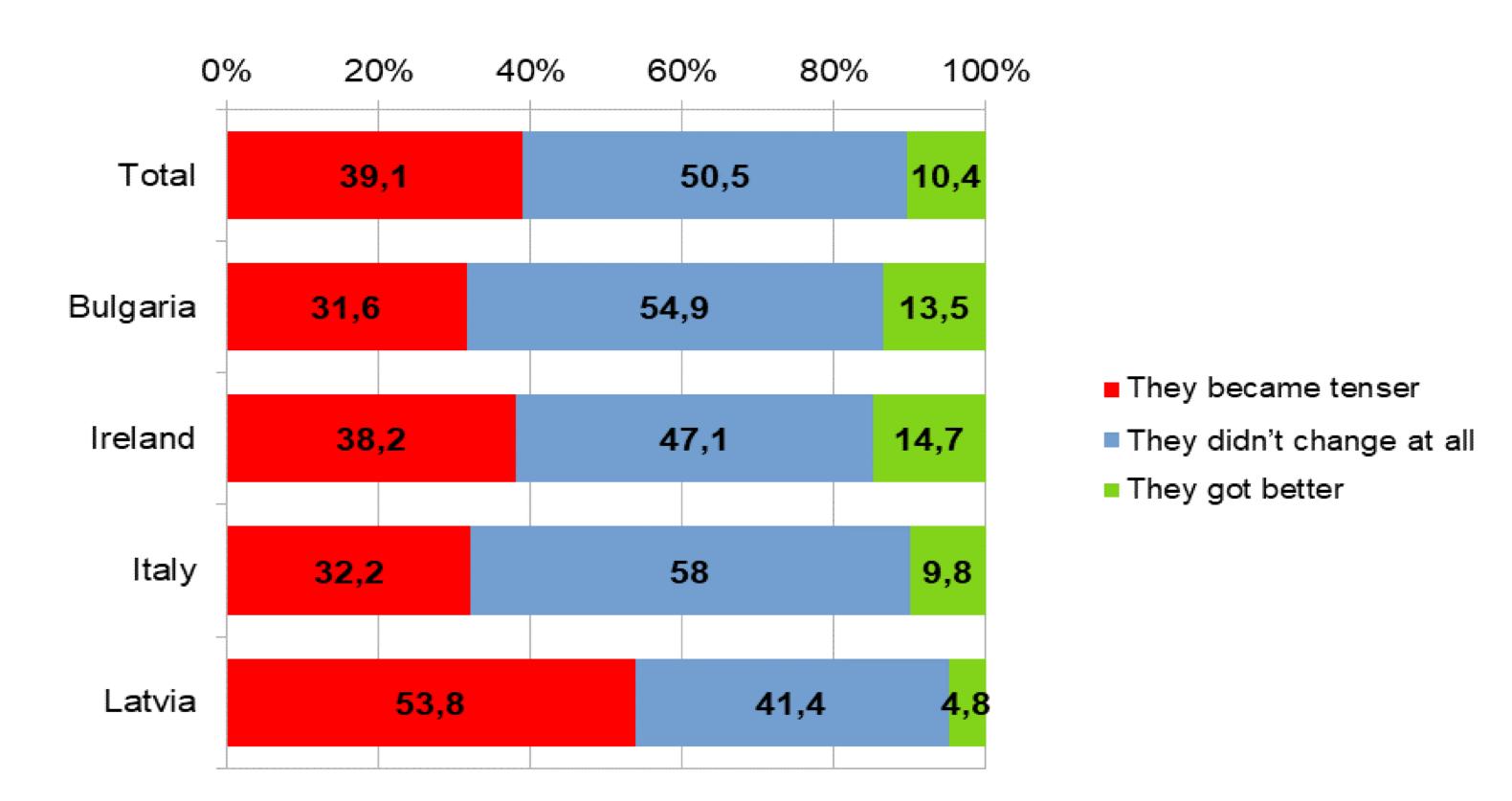
The smallest share of those who believe that relations have worsened is the Bulgarians - 32%, with the largest number of those who believe that there has been no change - 55%. In Bulgaria, 14% admit that relations have improved.
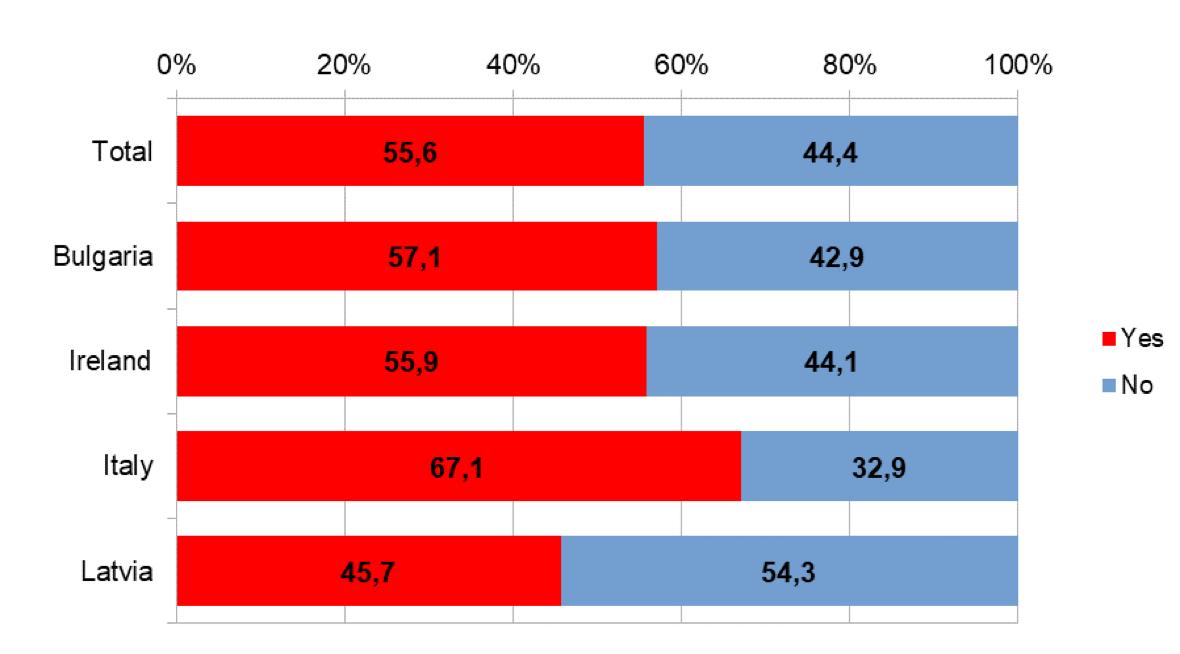
52
Youth Employment Magazine
Insults and rudeness were most frequent in Latvia - 48% positive answers, and least often in Bulgaria - 27% positive answers. Ireland and Italy are close to the overall average.
Predominant problems during the pandemic young people from the four countries had about nutrition and appetite (37%). In second and third place are smoking (25%) and computer games (24%). Alcohol is fourth with 18%, and drugs are fifth with 8% of responses. It is noteworthy that twice as many women as men declared that they had problems with eating and appetite during the pandemic.
18% of respondents said that the pandemic has significantly worsened their physical health, and 26% - their mental health. Together with the answer "it got worse to some extent", the share of those who said that the pandemic hurt their health increased significantly.
For physical health, it turns out that almost 60% have deteriorated physical health, and for mental health - almost 68%. There is a statistically significant relationship between the deterioration of physical and mental health.
From the focus groups conducted with parents of NEETs with mental health problems in the 4 partner countries of the project (Bulgaria, Italy, Latvia and Ireland):
A year after the lifting of restrictive measures in connection with the Covid-19 pandemic, researchers from the Italian organization Codici and experts from the Latvian Association "Assistance for Integration, Employment and Socialization" /PINS/ focused their efforts on establishing the long-lasting effects and consequences that the pandemic left on NEETc. Meetings were held with the parents of the young people, who are often disadvantaged, excluded from the labour market, do not study and suffer from various mental difficulties. They were asked to share their observations and views on the obstacles the pandemic has put in front of them and the impact the unprecedented situation of isolation has had on their mental health and functioning.
The aggregated data from the narratives of parents of NEETs in both countries indicate that the pandemic has further worsened the mental state of young people who, even before it, struggled with their insecurity, demotivation, lack of desire for self-assertion and goals, as well as pessimism and a sense of hopelessness. Data from the study of the youth in Italy show that in this unprecedented situation, 49% of young people feel insecure, and 30% of them suffer from worry and anxiety, which in some cases turn into fear (15%) and pessimism (13%).

The introduced restrictions and restrictions lead to increasing social withdrawal among young NEETS, with 45% of them sharing that even after the pandemic and the lifting of restrictive measures, they spent most of their time at home. This takes away any opportunity for social inclusion, leaving the already isolated NEETs completely cut off from the outside world, further hampering their socialisation, integration and inclusion in the labour market.
There is a statistically significant relationship between the deterioration of physical and mental health.
Did the pandemic have a negative effect on your physical health?
53
Youth Employment Magazine
Variations by country are not large about the answer "worse significantly", but for "it has worsened to some extent" - the differences are of large amplitude. This is the most common answer in Latvia - 56%, and the least - in Italy - 32%. Thus, it turns out that in Latvia the negative impact of the pandemic on physical health reaches 75%, and in Italy - 47%.
The results of the research show alarmingly large shares of young people who reported personal problems during the pandemic - 38% "anxiety", 37% each "lack of desire to communicate, anger" and "insecurity, selfdoubt", 35% "depression", 34% "fear, panic", 25% "internet, social networks, electronic games", 21% - "eating problems", 13% - "use of drugs, alcohol" and 7% - "problems with the law".
In Italy, Ireland and Bulgaria, the leading problem during the pandemic is "anxiety" - respectively 57%, 30% and 35%. In Latvia - "the lack of desire to communicate, anger" - 48%, while in Italy this problem is also recognized as leading by 57%.
Additional needs and support needs arise
Getting support from friends and family is most important for young people. Six out of ten survey participants said it was their priority. Support from friends and family is most important for Latvians – 64%, followed by Irish (58%), Italians (57%) and Bulgarians (54%).
For the Bulgarians, with the same percentage (45%), sharing with loved ones and avoiding negative people share second place. In third place are activities with other young people (44%). The percentage of receiving services is relatively lowest in Bulgaria (33%), and the highest in Italy (43%).
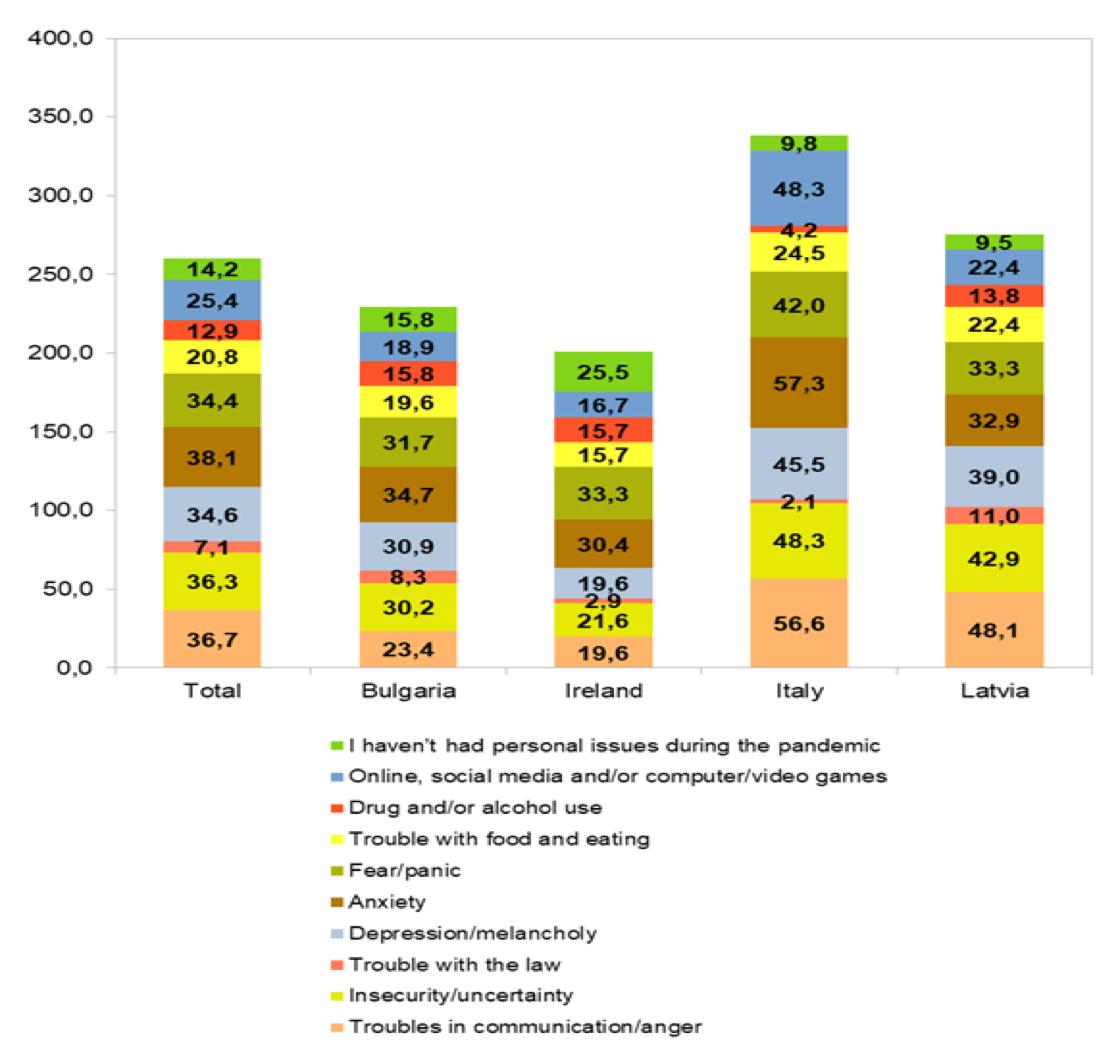
Support related to "social-psychological and medical services" is indicated as the most significant (48%). With similar values are the "internship and work programs" (43%) and "training and qualifications" (45%). Every third indicated that they needed "career counselling and guidance”.
The Covid crisis is the worst global crisis since World War II. Along with the tragic loss of life, it has also resulted in physical and mental health damage, loss of jobs, social connections and trust. As UNICEF has warned in a leading report, children and young people will feel the impact of COVID-19 on their mental health and well-being for years ahead. The signs of recovery we are seeing are encouraging, but they are fragile and highly uncertain, and we must remember that no country or group can recover on its own. This is especially true when it comes to vulnerable groups such as young people who are not engaged in education, training or employment and have mental health problems.
54
'You can't go back and change the beginning, but you can start where you are and change the ending'. C.S. Lewis.
Youth Employment Magazine
For them, the monitoring for the presence of post-covid syndrome related to mental health applies fully. The results of the study in the four countries show a deterioration in their quality of life due to the pandemic in various aspects:
• One out of four have lost their job and only one out of six have started a new job.
• Every second person has faced financial losses due to the COVID crisis.
• Four out of ten respondents estimate that the pandemic has hurt family relationships and that they have become more strained.
• Every third says that they have had cases of insults, rudeness, and physical violence in the family.
• Every third person during the pandemic had problems related to nutrition and appetite, and this is twice as common in women.
• Harmful habits spread wider among young people, with one in four having problems with smoking and computer games. Every fifthwith alcohol, and every tenth with drugs.
• Six out of ten young people declare that their physical health has deteriorated during the pandemic, and seven out of ten - their mental health (significantly or to some extent). There is a statistically significant relationship between the deterioration of physical and mental health.
• The shares of young people who reported personal problems during the pandemic are alarmingly high - 38% "anxiety", 37% each "lack of desire to communicate, anger" and "insecurity, selfdoubt", 35% "depression, depression", 34% "fear, panic", 25% "internet, social networks, electronic games", 21% - "problems with eating", 13% - "use of drugs, alcohol" and 7% - "problems with the law".
The results of the research in the four European countries show unequivocally that there are opportunities for targeted country-specific interventions to improve their social well-being.
• Strengthening the perspective of the beneficiaries of services and care
• Promotion of independence and normal life, but also close monitoring
• Expansion of community-based services and inclusion of relatives of service users
• Reducing stigma and promoting better understanding of mental health through awareness campaigns
• Strengthening protective factors such as a loving family, safe school/work environment and positive peer relationships
• Integrated approach to risk prevention, early interventions
• Quality social psychological and medical services for both physical and mental health
• Encouraging young people and caring through mentoring and mentoring
• Mental health support for parents and carers
• Mental health advocacy and social awareness campaigns.
Dr. Vyara Gancheva, sociologist expert in project LIKE
They should be focused on:
55
Youth Employment Magazine
LIKE Project
A story with a happy ending From the Projects
In 2023, during the EURIBOR project activities, we had the good fortune to bring together Deborah Dimitrova with the company "Shoko Michelinda" LTD, in which a wonderful labor-legal relationship was created. Deborah Dimitrova actively participated in the work of the Mobile team in 2022. The working atmosphere created by the parties was a wonderful way to prove that people with ambitions can be a great team. The dedication in the work of the mobile team with potential employers in the territory of the city of Vratsa became the reason for creating a very good cooperation with the owner of the company "Shoko Michelinda" LTD.

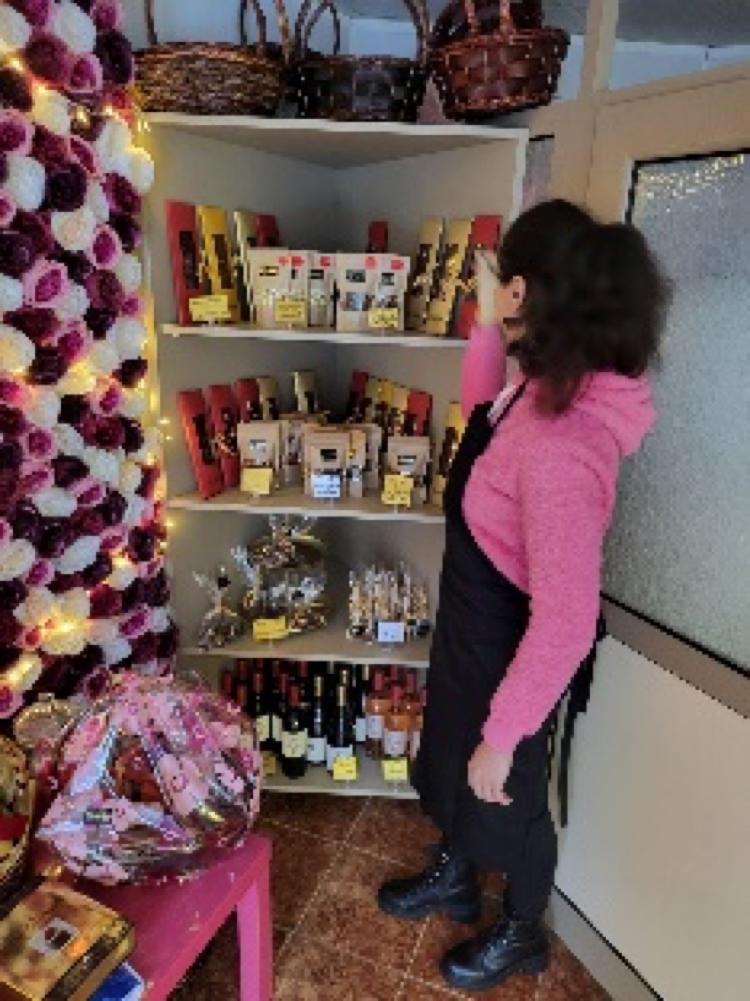


The series of meetings between the owner and Deborah helped to correctly judge the qualities and in the course of work. After the introduction of a trial training period, the qualities of the worker were assessed between them, as a result of which the conclusion of an employment contract between the two parties took place. The communication between all parties in the process and the desire for a better future for all, led to a positive development of the circumstances in which there were no casualties. The work environment provided Deborah with the opportunity to work with different people and develop her skills to work in a constantly changing environment. An environment where everyone has their own taste in life. The patience and willingness to work from all of us was rewarded.
Teodora Ivanova, Project coordinator
EURIBOR: Promoting sustainable actions for empowerment of vulnerable groups of youth women Project
56
Youth Employment Magazine
The First StayOn Co-Innovation Labs phase has finished!
In Italy, the participants closed the first training sessions with a photo exhibition and a tasting of herbal teas produced by the participants. They also had a “guided” wine tasting managed by them, and all the communication contents of the event were created by their digital marketers.
https://youtu.be/VQHvoD15Io4
In Poland, the participants visited an organic farm, attended a workshop to make tinctures and teas, and listened to an ecology lecture. They had an opportunity to work in groups on the resolution of different problems identified by them during a brainstorming session.
https://youtu.be/h2sPYcV4HTI
The first StayOn Co-Innovation Labs have just finished, and they were a great success!
The project partners then engage the Community Shapers in “CoInnovation labs” aimed at involving the target groups in creating a service/ product or developing an ideal useful for their communities.
The Labs were held in five different locations across Europe: Italy, Poland, the Azores, Greece and Ireland. Each location had its unique approach to the Co-Innovation Labs.
In the Azores, the participants had ice breaker activities before working in groups on the resolution of different problems identified by them during a brainstorming session. They also had the chance to visit some companies, where they got to know more about the business models, target markets, and recruiting process.
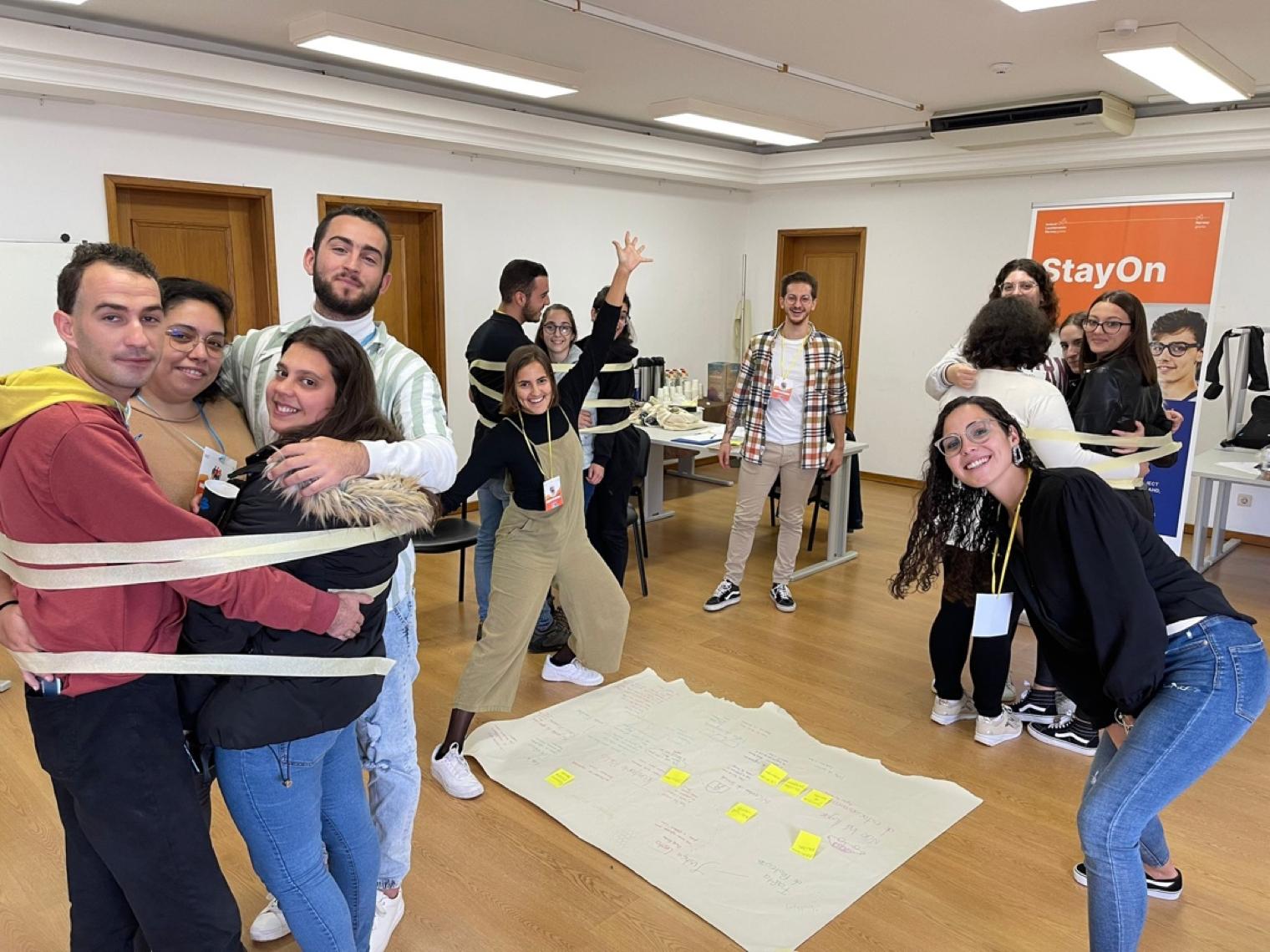
https://youtu.be/IH3b0nitckc
In Ireland, the participants learned how to work with essential oils and how to use natural dried herbs and mindfulness products. They then practiced blending home remedies for oil burners before creating aromatherapy products of bath salts and body scrubs. The participants are now able to develop, create, and work with their mindfulness products for home use and in professional settings.
https://youtu.be/_AiVV2qr5nI
57
Youth Employment Magazine
These first StayOn Co-Innovation Labs have been a great starting point for the professional improvement of the participants and a good insight into the local job market. They have learned practical skills and gained knowledge about their communities.
StayOn is committed to continuing its work with young people and creating opportunities for them to develop their superpowers and stay on in their rural communities for another long and exciting year: Stay tuned for more updates!
www.stay-on.eu
www.facebook.com/stayonproject21/
StayOn Project
58
Youth Employment Magazine
Co-innovation lab in Italy: a real success!
The photo exhibition showcasing the works of the students was a great success, displaying the talent and dedication of the participants. The University of Catania was impressed by the quality of the exhibition and has decided to make it permanent! This recognition is a wonderful acknowledgment of the hard work and talent of the students. It also sets a high standard for the upcoming second edition of the course, which promises to be even more successful.

ATIS TEAM
StayOn Project
The first training cycle in Italy has recently ended. One of the courses on offer was "Communication with Images: Photography Lab" : the course was aimed at providing practical training to participants on the basics of photography, with an emphasis on post-production work, setting up photographic sets, legal and regulatory profiles in the dissemination of images, and the relationship between fiction and documentary. The participants gained hands-on experience in these areas, enabling them to hone their skills and acquire practical knowledge.
Some of the students also participated in the final Co-innovation lab, which allowed them to apply their newly acquired skills in a real-world setting, creating a service or product, or developing an idea useful for their communities. In Italy, the participants organized a photo exhibition and a tasting of herbal teas produced by them. They also had a “guided” wine tasting, and all the communication contents of the event were created by our digital marketers.
59
Youth Employment Magazine
BlueGeneration Project achievements

blueTALKS is another innovative initiative of Militos Consulting S.A. with the aim of highlighting employment opportunities for young people in the rapidly developing sector of the Blue Economy, within the framework of the Blue Generation Project.
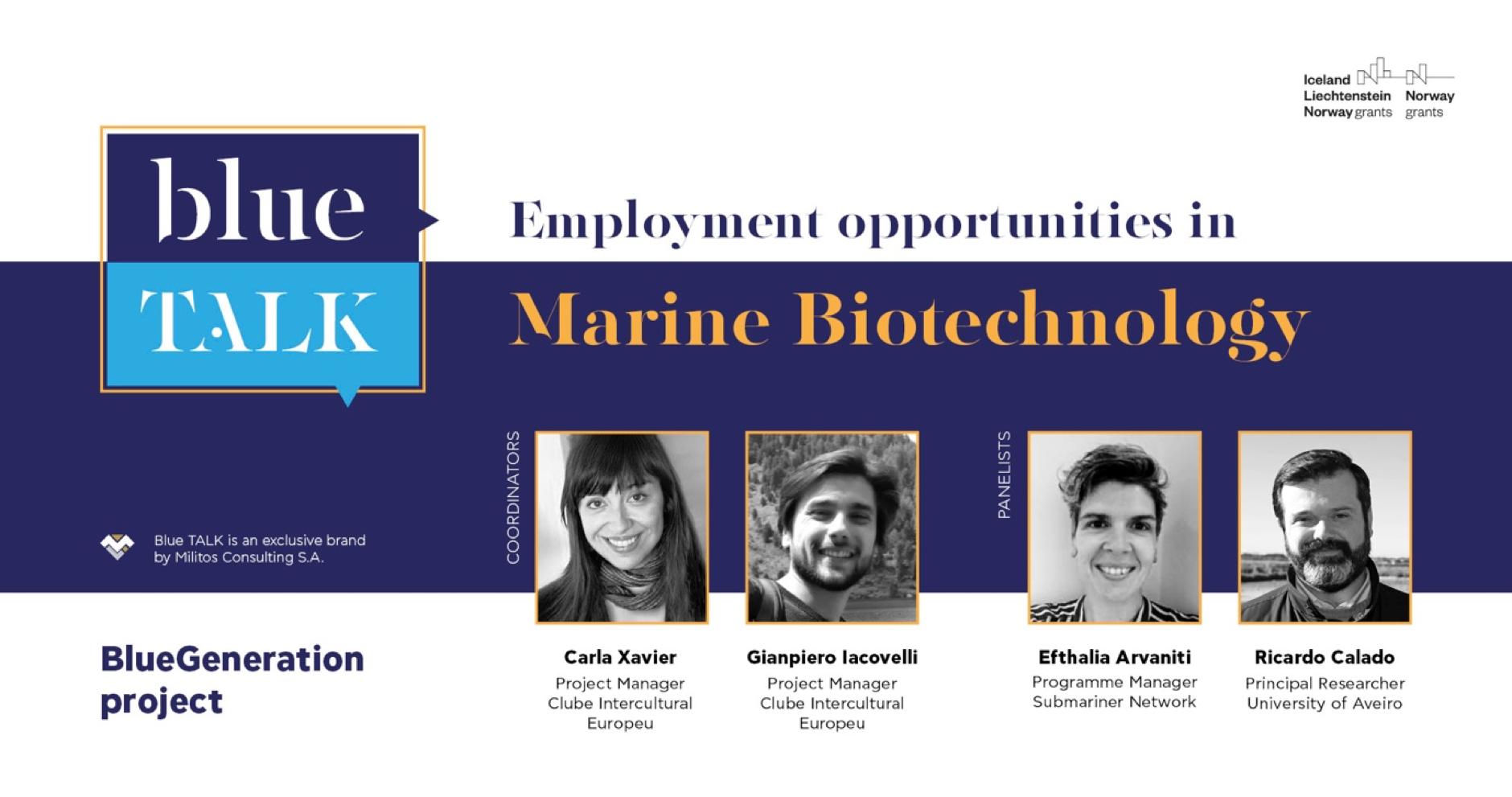

60
Youth Employment Magazine
Watch here the video
Watch here the video
Watch here the video
Watch here the video
Watch here the video
Watch here the video
BlueGeneration Project
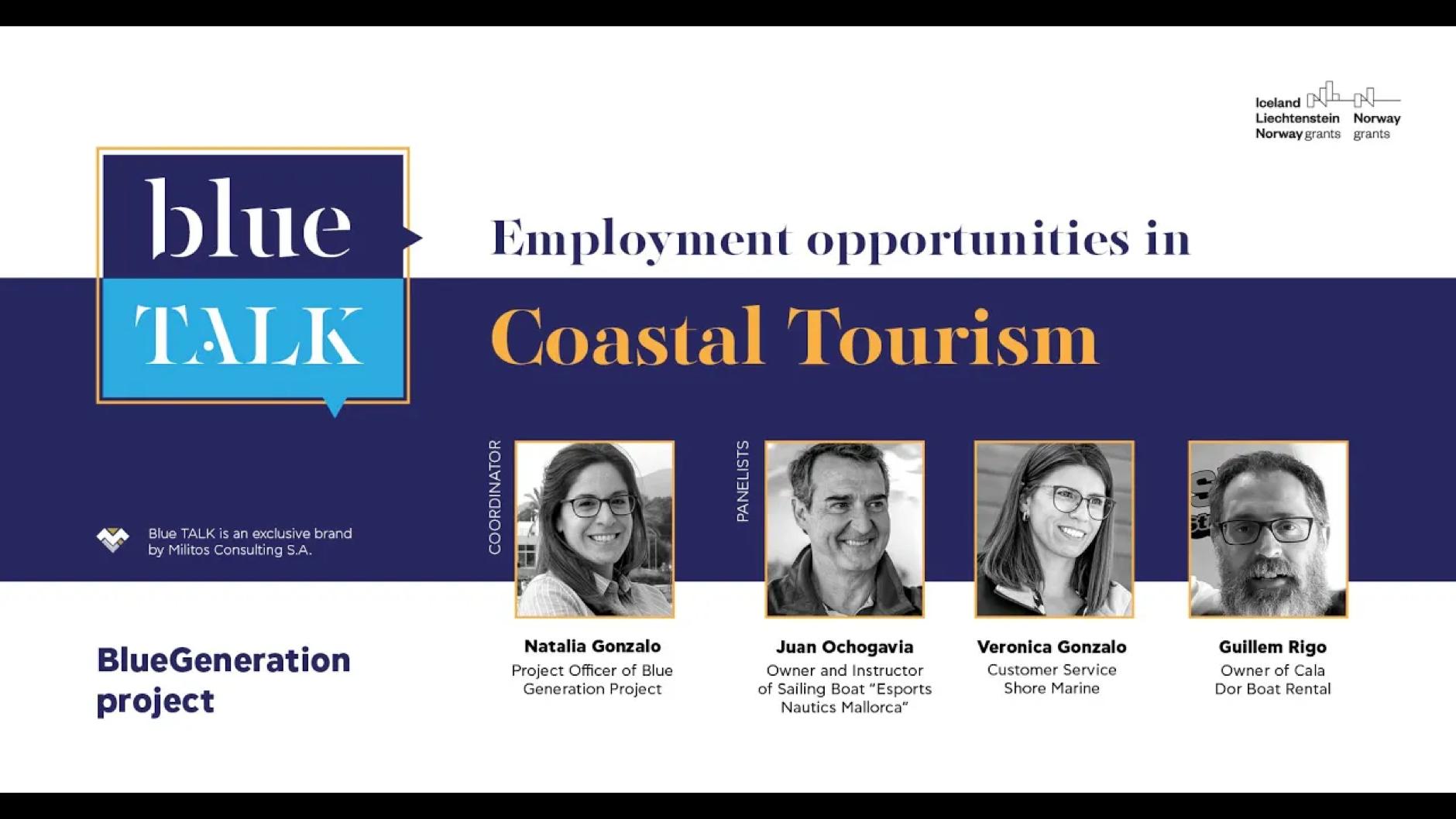
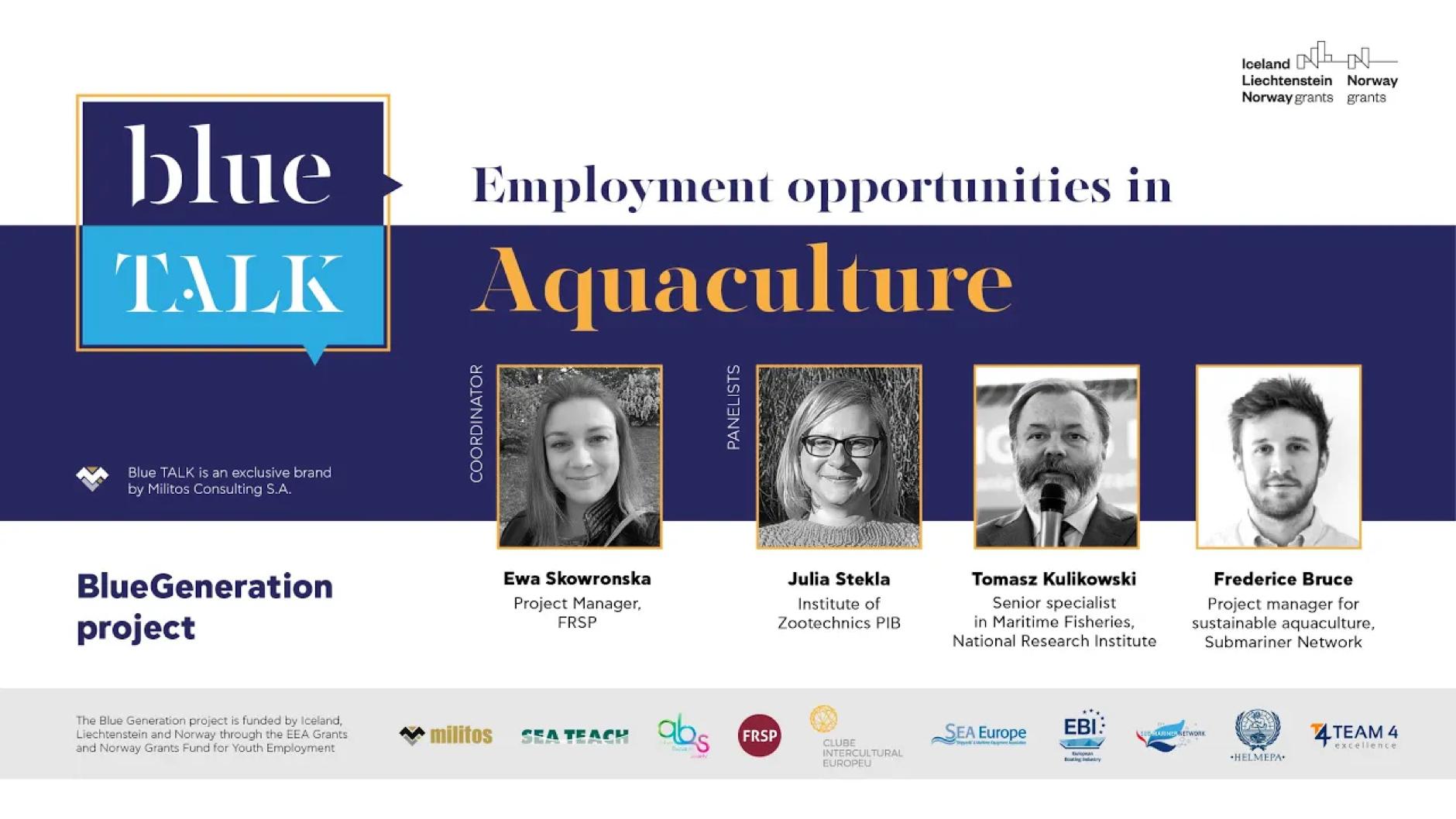
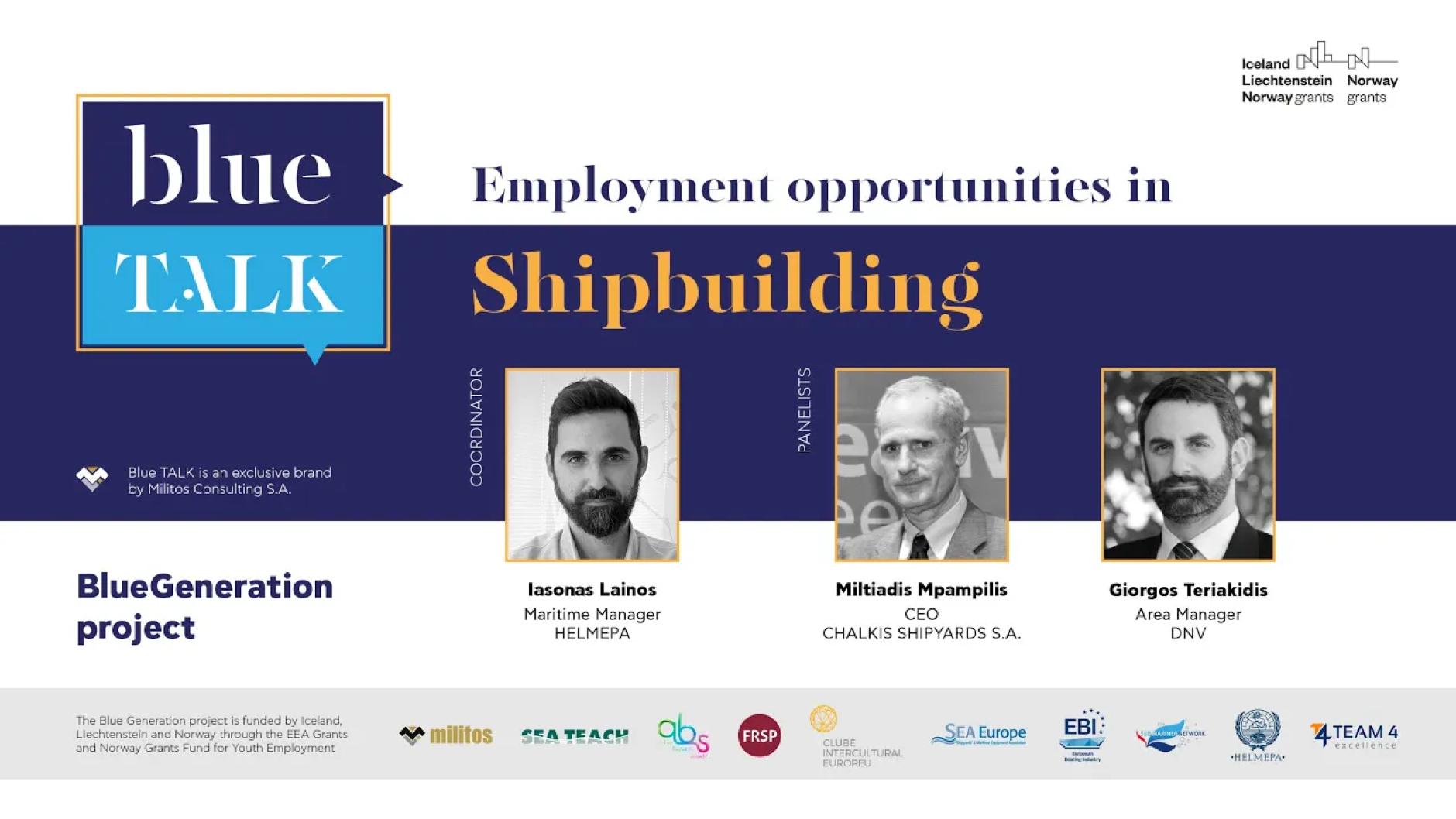
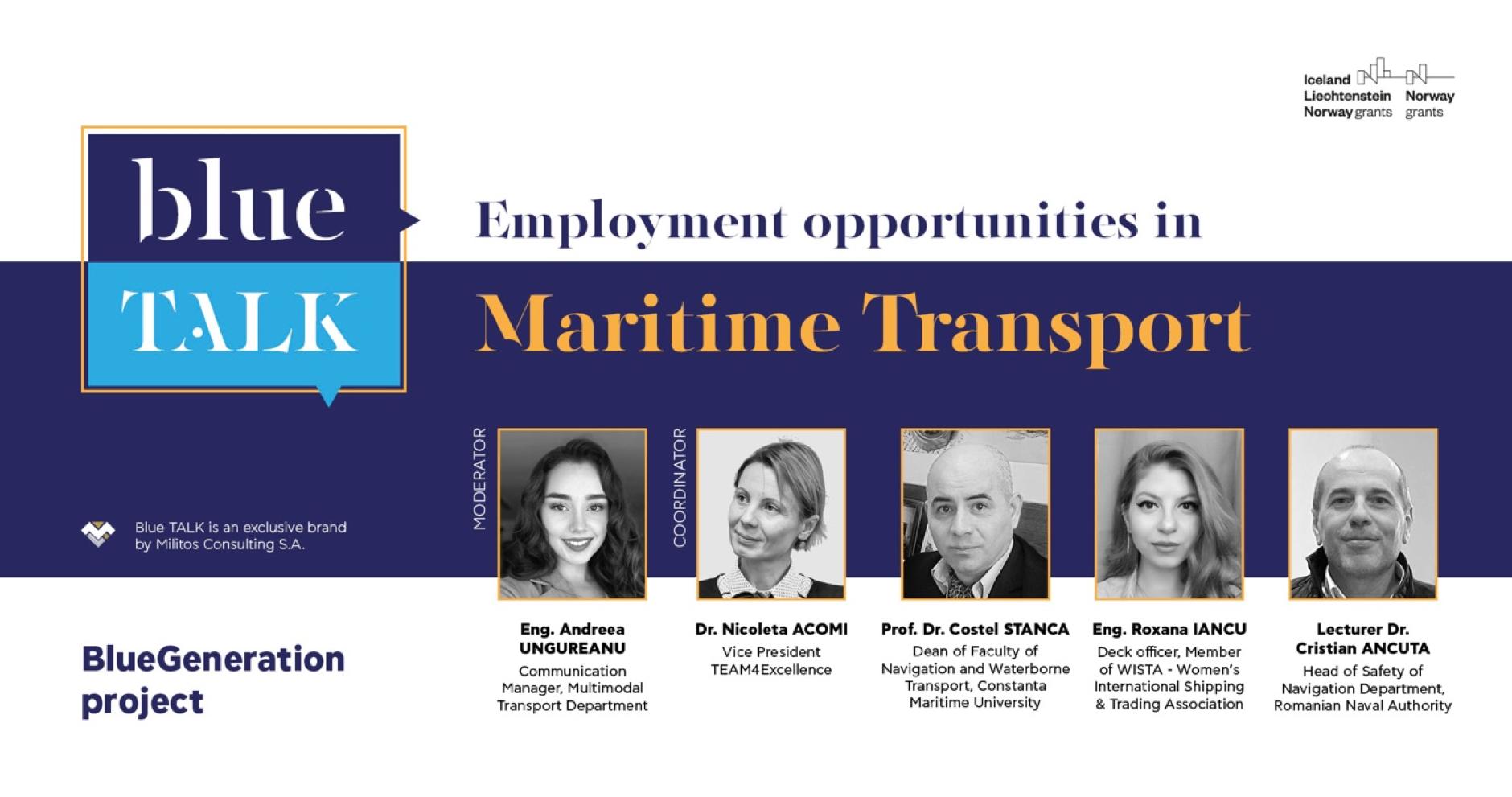
61
Youth Employment Magazine
Young Entrepreneurs Succeed, YES! Workshop
Karditsa 23rd and 24th 2023
ANKA hosted the first workshop of the year 2023 under the Young Entrepreneurs Succeed, “YES!” Project. The two-day workshop began with a welcoming salutation by ANKA’S Director General, Evangelos Sakellariou, and the Coordinator on behalf of the Lead Partner, Athens Agricultural University, Yiorgos Alexopoulos.
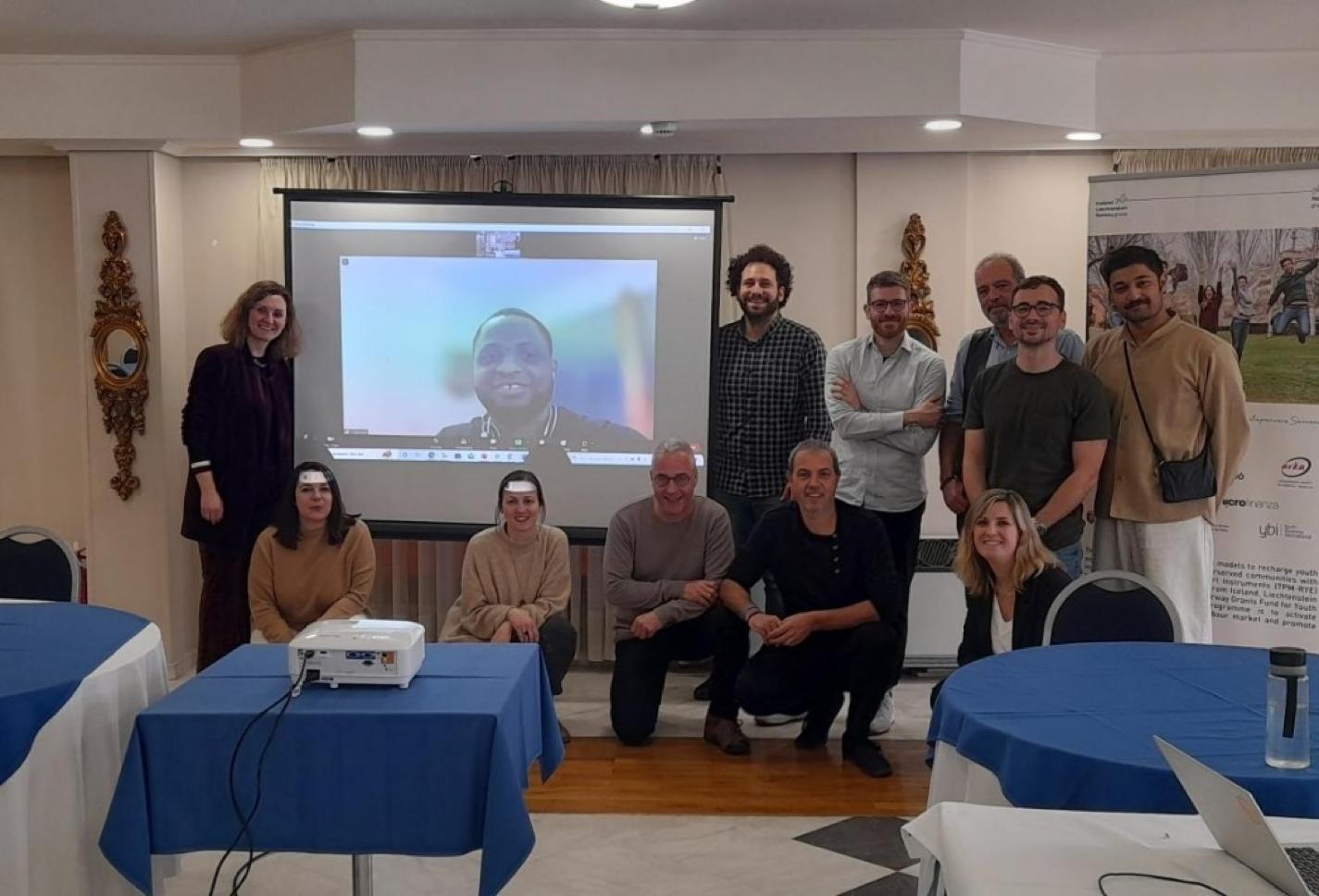
The first day of the workshop was dedicated to the update on interventions and activities of each partner, briefing on peer learning transfer activities and short presentations by ANKA team on learnings and challenges stemming from the Project’s implementation so far. The day concluded with an Open Session attended by regional and local stakeholders, followed by a joint dinner. The second day of the workshop entailed update on the communication activities, on the interventions’ impact assessment and on the preparation of the Project’s next workshops and final conferences. The workshop was followed networking and a visit to the “Entrepreneurship Support Centre for the unemployed and disadvantaged citizens of the Karditsa Municipality” running under AN.KA .
YES! Project
62
Youth Employment Magazine
Effective strategies for NEETs to fight procrastination
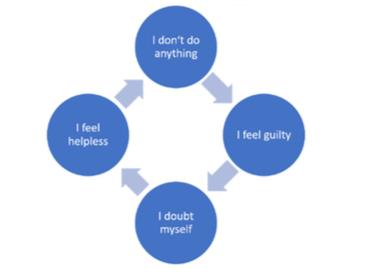
The word “Procrastination” comes from the Latin word procrastinatus. The prefix pro means “forward” and crastinatus stands for “tomorrow”. Today, when we talk about procrastination, we refer to a situation where we find it difficult to persuade ourselves to do the things we should do or would like to do. Instead, we perform useless activities and feel guilty about it afterwards. Procrastination can be a major stumbling-block for NEETs hindering them showing up for trainings, starting to apply for a job or getting important paperwork done.
Young people are facing a world where the number of decision-makings per day is staggering. They have the freedom to make their own choices and are socialized to worship self-optimization, efficacy and outstanding careers. Yet, they often struggle to prioritize tasks at hand, understand their own values and pursue their very own definition of happiness. But what to do with the greatest intentions if one is already tripping on the first steps? Writing a CV, looking for potential employers or drafting a business plan can turn into an insuperable obstacle when procrastination kicks inand to make it even worse: After having spent the entire afternoon watching entertaining YouTube or TikTok videos rather than preparing for a job interview makes us feel utterly guilty. It seems that everybody else is organized and mastering the virtue of industriousness. The natural human reaction is to start doubting oneself. Especially younger people or people who have already experienced major setbacks in their lives will mistake procrastination for a weakness in character. Welcome to the vicious circle of procrastination:
The first step out of procrastination is the simple realization: It is normal. Every human being is a procrastinator. Some people are more organized, disciplined or intrinsically motivated but everybody is procrastinating to some extent. The important things is to be aware of it and to start realizing where procrastination actually causes harm. Therefore, tools such as vision boards can be helpful to understand a person’s true north and possible directions and priorities of the short and long-term goals. Vision boards are a powerful tool, especially for NEETs. Firstly, they can become creative and write, paint, glue and scribble their values, interests, goals and visions on a white piece of paper. They decide on how to present it and are not limited to font sizes or line distance. There is no right and wrong and no pressure to “fail”. Creativity unleashes potential and deep personal longings. Secondly, vision boards are useful for people who struggle to bring their emotions or wishes into writing. Instead, they can use pictures, colours and signs to express themselves. That’s a lot of fun and devoid of norms and rules.
63
Youth Employment Magazine
Once the vision board is finished, it is much easier for the NEET to write down sources of motivation and inspiration in a labour market context. NEETs, who face difficult labour market situations, can use this space to come up with creative solutions. An open discourse with coaches and other participants brings in other points of views and ideas. The NEETs can work on ideas and plans of labour market scenarios and jobs that truly inspire them and match with their personal values and notions (such as working hours, distance, sectors of interest, expertise). At this point, coaches can support the NEETs to formulate specific goals. Depending on the NEET’s initial situation the goals can be smaller or bigger (e.g. make a list of ten employers in the region that work in a specific sector; make professional pictures for the CV, learn a new skill). The main idea of the vision board is to find intrinsic motivation. When people see the purpose in their actions, when they actually want to perform these actions, the intrinsic motivation arises. Working more towards inner motivation and satisfaction helps to overcome procrastination and start to become active, not because of the final goal but because of the purpose/journey.
Another powerful tool to step out of procrastination is to cultivate certain forms of daily routines. There are many different ways to work efficiently and numerous articles and books that claim to know the perfect way to “avoid procrastination”. The truth is, there is no perfect tool for everyone. Everybody has particular strengths and weaknesses and what works best for one person could be a total disaster for another. Some people use ToDo lists to stay focused. It is useful to order the To-Dos according to priority to make sure that important tasks are finished on time. To-Do lists can be combined with the Time Blocking Method. This means to plan our days ahead and to dedicate specific hours to accomplish certain tasks. Especially for NEETs it can be helpful to dedicate time to both proactive and reactive blocks. In the proactive time slot, they can work on cover letters, call potential employees or learn a new skill. In the reactive block, they do something that fills them with joy, e.g. playing and instrument or a computer game, meeting a friend etc.
own procrastination, too. Others may get inspired to try something new and it is empowering for participants to present their own experiences in front of the group.
• Procrastination is not a flaw but a part of being human. It might be impossible to overcome procrastination completely, but there are some simple steps to be more aware of it and to start fighting it. Coaches can help NEETs to work on their personal strategy and implement certain tools and strategies into their daily routine:
• Realization: When does procrastination cause harm?
• Vision board: What cultivates inner motivation, what are true interests?
• Daily routine: Which tools work for me to be more concentrated? Which tools help me to finish important tasks?
• Remember: Procrastination is a part of being human. Everyone is a procrastinator and it is not a weakness in character.
Dunja Buchhaupt, KIZ Sinnova, January 2021
YES! Project
Some coaches use brainstorming sessions where NEETs can present their favourite tool to avoid procrastination. Participants that are more reluctant to change will feel a certain peer pressure and may start to work on their
64
Youth Employment Magazine
The Cowork4YOUTH Observatory is here!

The Cowork4YOUTH project is excited to present its second output: the Cowork4YOUTH Employment Observatory!
The vision behind the Observatory is to help researchers, policymakers, and stakeholders access reliable and useful information regarding youth employment in European regions. Although the Observatory is based on publicly available data (e.g. from Eurostat) it is far more versatile and userfriendly than most official sources.
The Cowork4YOUTH Observatory’s most visible feature is the visualization of the stats. Good and clear visual presentation is an essential component of making such information more accessible. That is why the Observatory is presented as a Web-GIS based BI platform that offers a wide array of data on youth population, employment, and skills, by employing visualization techniques that include maps, graphs and charts.
But the Observatory offers much more than just nice graphs and maps, as it provides processed results for various categories, regions and timeframes, as well as composite indicators. The Cowork4YOUTH Employment Observatory includes raw data on sectoral employment, unemployment and NEETs, while the dashboard is regularly updated with simple and composite indexes, such as the Location Quotient. Data incorporated in the dashboard refers to the NUTS-2 regions of the European Economic Area, which includes all European countries plus Iceland, Liechtenstein and Norway. If there is no available data for some regions, then the corresponding indexes are not available. Another important aspect is that it provides ready-for-download data in various formats, whereas obtaining them from official sources can take a long time and then require lots of work to make the data usable.

Gradually the Cowork4YOUTH Observatory will be further enriched with data from various sources, as well as more indicators.
We believe that the Cowork4YOUTH Observatory will be of great value to policymakers, stakeholders and researchers in the field of Youth Employment.
The Observatory can be accessed through the Cowork4YOUTH website https://www.cowork4youth.org/
65
Youth Employment Magazine
Cowork4YOUTH Project
The LEAD Project – a real chance for the integration of young adults with disabilities into society
Why? Because we approach in an innovative way the relations between: young adults with disabilities; their parents and tutors; companies that have given our beneficiaries a chance; specialists and providers of Supported Employment services.
How? Since 2018, Health Action Overseas Foundation, as leading partner, Valakupiai Rehabilitation Center and Consultis - Consultoria Empresarial, Unipessoal Lda., with the support of Status Employment, our expert partner, have implemented in Romania, Lithuania and Portugal a good practice model regarding the Supported Employment, which has proven its viability in the United Kingdom.
What is different? Supported Employment differs from ordinary model of placement, because it supports both the candidates and the employers. The candidates benefit from: vocational profiling, counselling to develop improved self-confidence; preparing for a job in line with their professional training and interests, developing their working skills, attitudes, behaviours and functional abilities to successfully achieve their employment goals, through in-work and outside work support. So, we can be sure that the young adults who are recommended by our specialists have the skills for the employment positions. Moreover, our young beneficiaries will be constantly monitored and supported during the integration process if the employer decide to hire them.
Also, our Supported Employment specialists work with the young adults’ new colleagues and the human resources specialists in order to help them communicate constructively with our beneficiaries, and in order to identify the problems which can appear during the integration process, and to solve them.
Last but not least, our Supported Employment specialists provide the employers with comprehensive information on eligibility, rules and procedures to get the financial benefits available to companies who integrate young adults with disabilities, as well as the support in order to actually benefit from these advantages.
Also, it is important to point out that using our Supported Employment program, the employers do not pay the costs to identify, recruit and integrate the employees; costs estimated at about 600 EUR/person. Another important direction in our work consists in providing informational and emotional support to parents and family members of young adults with disabilities, in order to help them understand their children needs and desires, and to help them motivate the young adults to get and keep a job.
Where does the Supported Employment work?
Experience shows that the Supported Employment model works regardless of the company’s size, the field of activity, or the disability of the beneficiary who we want to integrate. Only three elements matter: the young adult's desire to work, the openness and availability of the employer, and the quality of the services offered by specialists. We work hard in order to have young adults who keep their jobs for a long time, who become well-integrated, and who live an independent life. At the same time, we develop long-term relationships, based on mutual respect, with the employers we work with. Paradoxically, focusing on quality, we have exceeded all assumed indicators by almost 100%. It is a matter of pride for us that most of the entrepreneurs which have worked with us have not stopped at a single young adult with disabilities integrated into their teams. We have companies in portfolio that have employed 3-4 young adults and they are still working with our specialists.
66
Youth Employment Magazine
According with a recently survey regarding our Romanian beneficiaries, 69% of them are full-time employees, and only 31% of them are part-time employees (percentage influenced by the fact that some of them are still pupils and they can work only during the summer). Regarding the degree of disability of the young employees, 57% of them have severe disability, and 36% of them have moderate disability. Reffering to the type of disability, 43% of them have mental disorders, and 25% of them have neuropsychiatric disorders. Our beneficiaries work mainly as: commercial worker, kitchen worker, handler, packer, assembler, unskilled worker. I want to point out an important thing: all of our hired beneficiaries have had a strong desire to work; we have helped them discover their potential and give purpose and value to their lives.
What are we going to do?
We are going to widely promote the Supported Employment model, as a viable solution for the long-term integration of young adults with disabilities into society, in addition to our daily work with our young beneficiaries, their parents and relatives and companies that have said YES to the challenge of integrating people with disabilities into their teams. At the same time, we and our partners from Lithuania and Portugal are going to develop the National Networks of Supported Employment Service Providers, created within the LEAD project in order to promote this new service in as many communities as possible, to ensure the exchange of expertise and information between network members, and to improve the quality and efficiency of the services provided by them.
I invite you to find out more about the results of our work by reading our newsletter and, if I have convinced you, I am waiting for you to join us!
The project “Labour market Employment for young Adults with a Disability - LEAD” is funded by Iceland, Liechtenstein and Norway through the EEA and Norway Grants Fund for Youth Employment.
Nicolae Dobrescu, Project Manager - LEAD Executive Director of Health Action Overseas Foundation LEAD Project
67
Youth Employment Magazine
Experience exchanges between young adults with disabilities enrolled in LEAD project
the baccalaureate. On that time, she was discouraged, and she did not even dreamed to get a good job, and to make friends among her colleagues.
On the same meeting, Memet proudly talked about his professional evolution. The young man explained that he initially worked in the packing department, but the supervisor appreciated his efforts and skill. As a result, Memet was moved to the natural juices area, where he quickly learnt to use a juice-maker.
On the 15th of June, 2022, HAO organised at the headquarters of the Services Center for Supported Employment from Constanța a meeting between young adults with disabilities enrolled in the LEAD project. During this event, facilitated by Olivia Grigore, our beneficiaries who changed their lives after joining our project shared their stories with other young adults with disabilities, looking for a job.
On this occasion, Bianca and Memet, part-time employees at Hervis Sport and Fashion and Carrefour Romania, shared interesting information regarding: the job interviews, the work trials, the requirements of the employers, the work schedules, the tasks that they need to perform, their colleagues and teamwork. Also, our young beneficiaries talked about the changes they experience in their lives, and they answered the participants’ questions.
For example, Bianca contributes to her monthly housing expenses, and covers her personal needs. The young woman is very excited because she has become a core member of the team, appreciated by colleagues and customers. Bianca talked about a difficult period of her life, after she failed
This experience exchange was very well received by the young participants. Later, Olivia has noticed the increase of self-confidence of participants, and she has observed that the specialists’ suggestions have been more well received by the young adults.
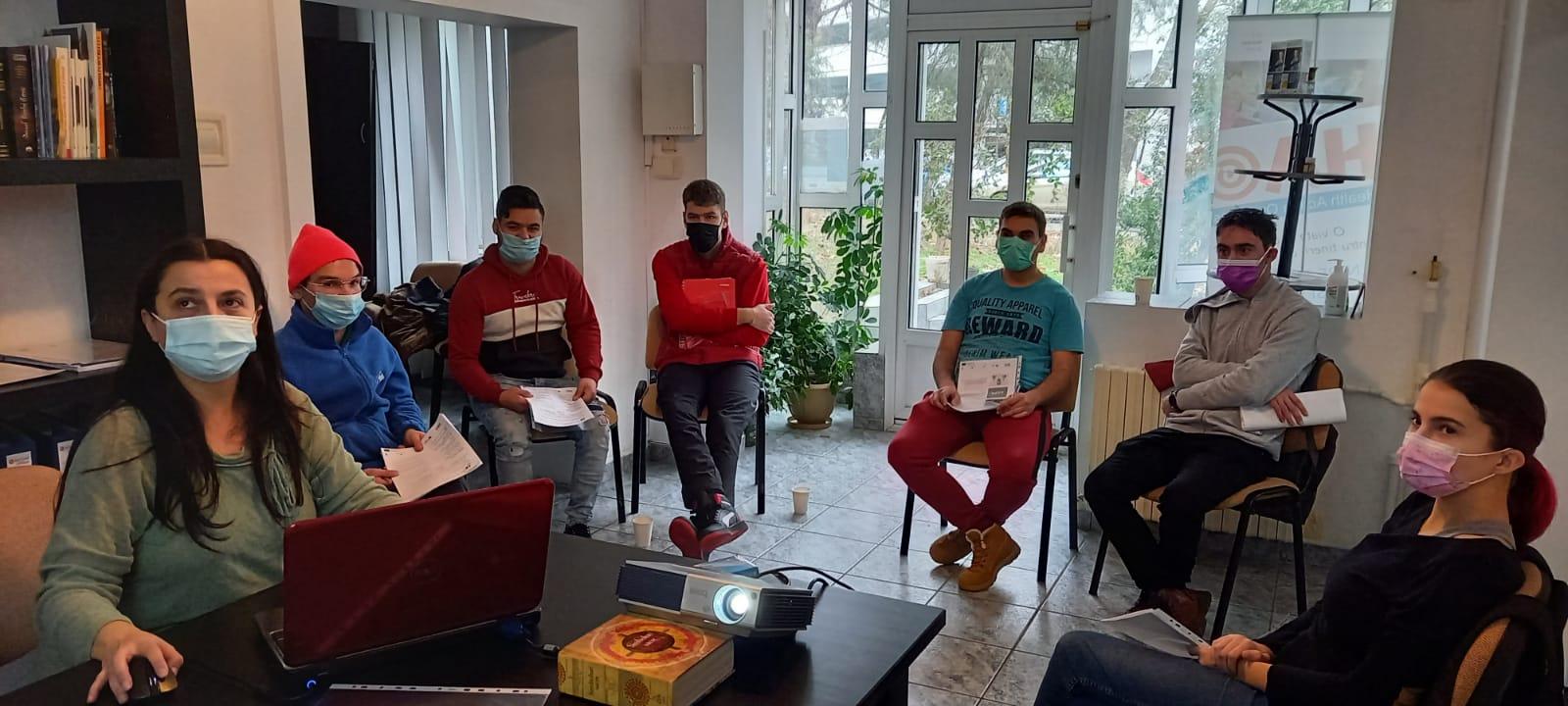
"Young adults with disabilities can successfully integrate into the labour market, they can build a career, and they can become respected and valuable members of society, with the proper support, offered by our team and by employers. The Supported Employment process works! There are countless examples! One element matter: the young adults’ desire to work", said Olivia.
The project “Labour market Employment for young Adults with a Disability - LEAD” is funded by Iceland, Liechtenstein and Norway through the EEA and Norway Grants Fund for Youth Employment.
Cristina Șerbănescu LEAD Project
68
Youth Employment Magazine
Young adults with disabilities, involved in volunteering activities
involved young adults were Denisa and Gabriel, who participated weekly in the activities organised in Intelect Park.
"Volunteering activities are very important for young adults with disabilities. Firstly, they learn to: communicate, work in a team, complete a task. Secondly, they discover the joy of being useful to other people, they have opportunity to socialize and to learn new things. Thirdly, they receive a document which certifying their involvement in these projects, so they can prove their work experience”, explains Olivia.
HAO and IPV (Association highly involved in volunteering activities with and for people with disabilities) have collaborated since 2019, when they signed a partnership agreement. Based on it, the young beneficiaries of HAO have the opportunity to spend quality time during the summer, working, learning and having fun in two special places, namely Intelect Park (an innovative project, which offers children an useful alternative to spend their free time, socializing and developing their intellect through mind games) and Pupa Beach (the first beach from Romania accessible for people with disabilities).
During the summer, young adults with disabilities enrolled in LEAD project participated as volunteers in the educational-recreational activities organised by the Together for Future Association (IPV) in the Intelect Park (Constanța) and on the Pupa Beach (Mamaia).
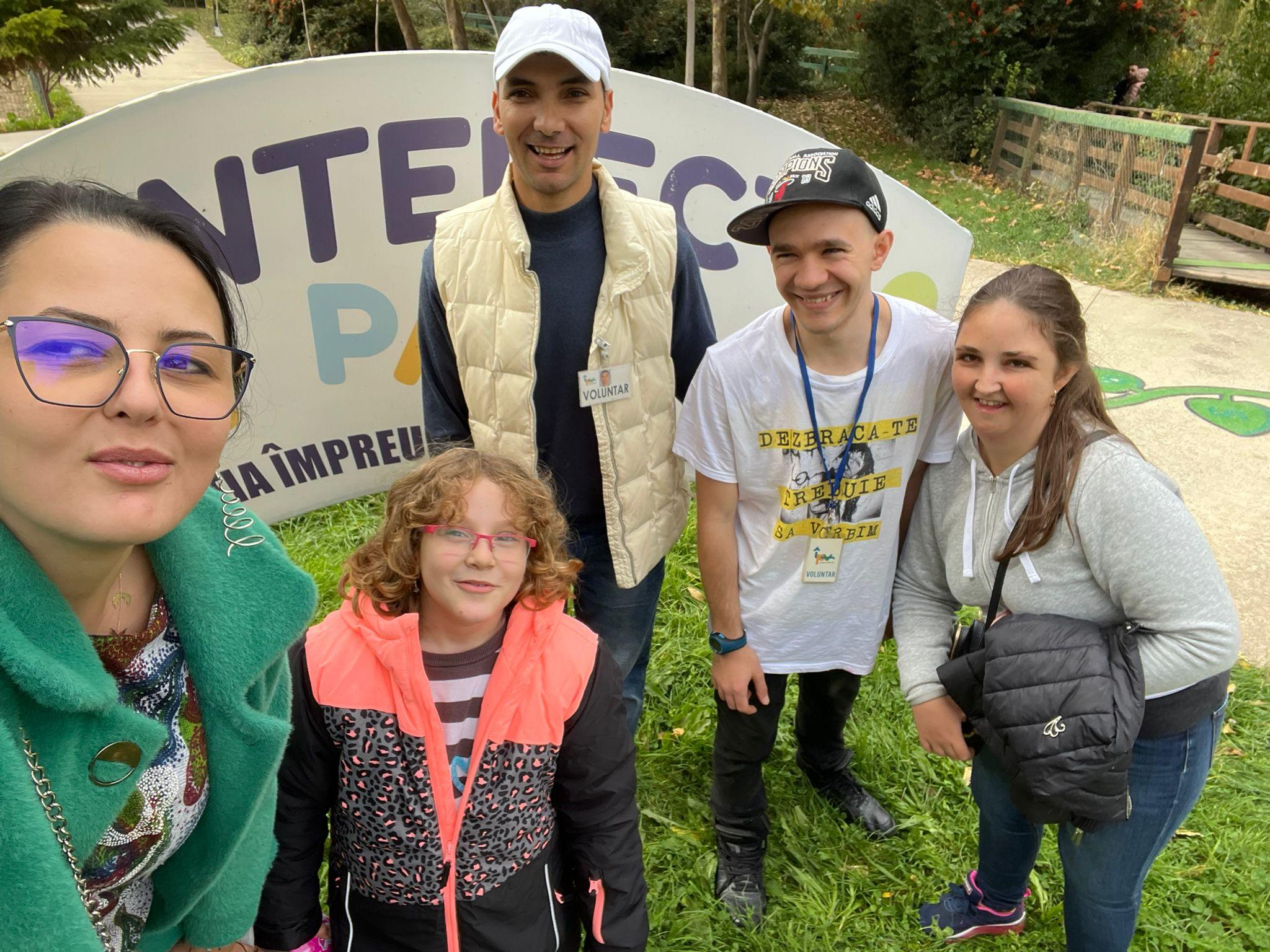
Our young adults were involved in: taking over and guiding visitors into the Park, and the maintenance of the green spaces and giant outdoor games. Also, they joined enthusiastically in the activities carried out in the Intelect Parc project (group games, for example), and they enjoyed the summer sun. They were monitored by our colleague, Olivia Grigore, and they were coordinated by IPV representatives. According to Olivia, this year, the most
The project “Labour market Employment for young Adults with a Disability - LEAD” is funded by Iceland, Liechtenstein and Norway through the EEA and Norway Grants Fund for Youth Employment.
LEAD Project
69
Cristina Șerbănescu
Youth Employment Magazine
Experience exchange between employers and young adults with disabilities
medicines. Additionaly, Radu Cazacincu talked about: the tasks that need to be performed by the packers (a position that the young adults could work on), the work schedule, the salary package and the bonuses granted. Also, the company’s administrator answered of the participants’ questions. On the 17th of October, two young beneficiaries of the LEAD project participated in an experience exchange organised at Jumbo Constanța by HAO and Alflo Cleaning (company which provides professional maintenance and cleaning services).
Health Action Overseas Foundation (HAO) has continued the series of experience exchanges between young adults with disabilities looking for a job and potential employers.
Thus, on the 14th of September, four young adults with disabilities had the opportunity to visit the medicine factory Magistra C&C SRL. On this occasion, Radu Cazacincu, the company's administrator, presented them the working and auxiliary spaces and he gave them details about: the production flow, the machines and the equipment for manufacturing and packing medicines, as well as about the protective equipment worn by employees.
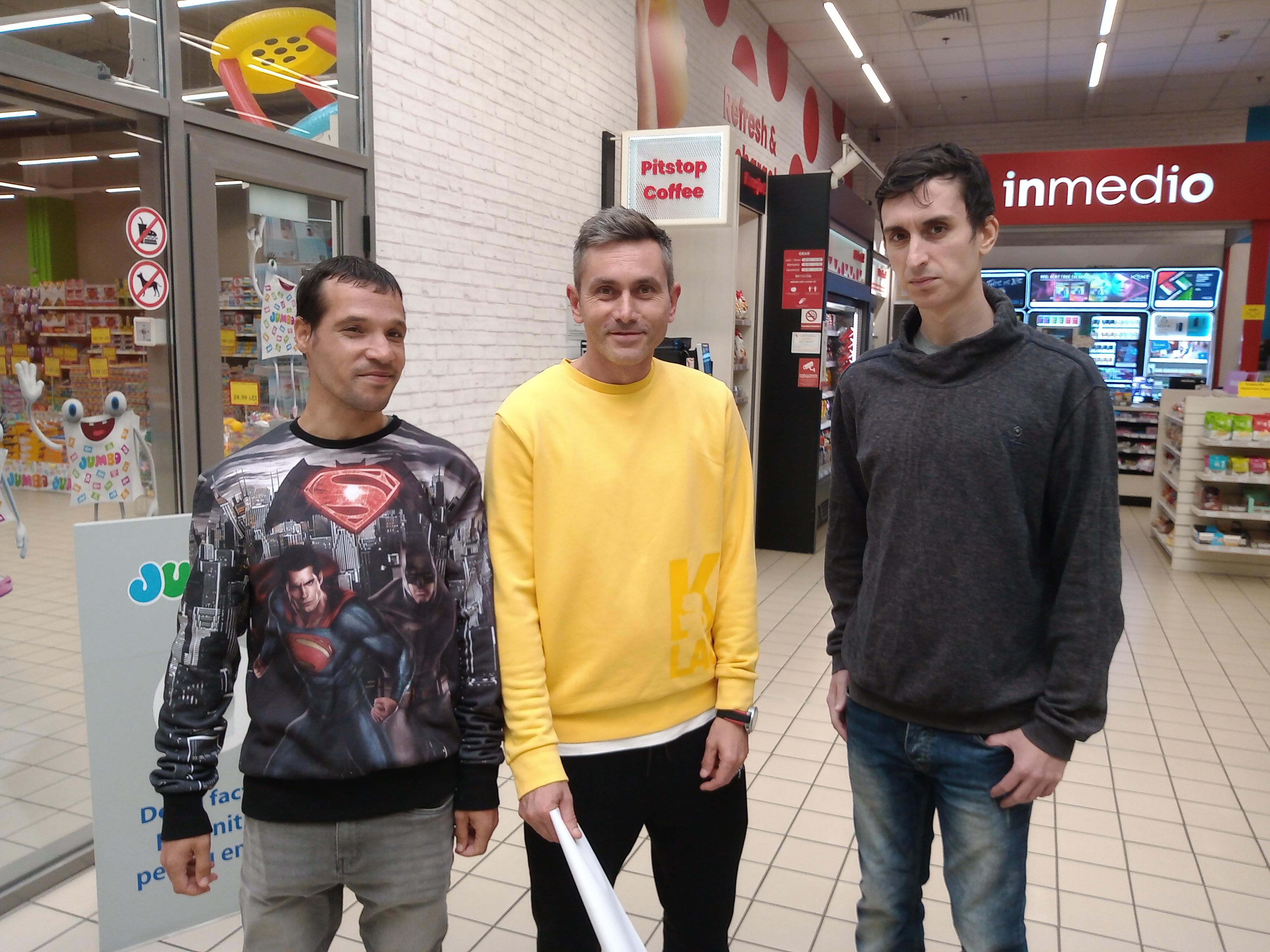
Beneficiaries of the LEAD project had the opportunity to see how the workers carry out the activities of production, verification and packing of
On this occasion, Florian Drăgulin, the company’s administrator, told the young adults about: the duties of the cleaning staff, the work schedule (in shifts), the employment contract, the salary package, and presented to them the tools and the equipment used by employees. Additionally, the young adults had the opportunity to observe how the employees carried out their work both inside the Jumbo store and outside it. Also, our beneficiaries entered into dialogue with Florian Drăgulin and Nicolae Ene, the manager of the Jumbo store. The young adults talked about: the reasons why they participated in the meeting, their previous work experiences, and their professional expectations. The young men made a good impression, so Florian Drăgulin offered them a trial period, in order to give them the chance to evaluate if they like the job, and it is suitable for them.
The project “Labour market Employment for young Adults with a Disability - LEAD” is funded by Iceland, Liechtenstein and Norway through the EEA and Norway Grants Fund for Youth Employment.
Cristina Șerbănescu LEAD Project
70
Youth Employment Magazine
Up to the 30th of september, 158 young Portuguese adults with disabilities benefited from opportunities offered within the LEAD project
In the context of a progressive return to normality, in October 2022, thirty months after Portugal declared an alert situation due to Covid-19, the Government took the decision not to renew it. However, the country in 2022 is different from the one that existed pre-Covid, so our colleagues from Consultis have considered that it is time to analyse, in more detail, the negative impact of the pandemic on the economy and society, particularly regarding the situation of people with disabilities.
Taking as a reference the 170 measures proposed by the National Strategy for the Inclusion of People with Disabilities to be implemented in the period 2021-2025, they have emphasized that almost all the goals proposed for 2021 were missed, among which was the realisation of a diagnosis on employability. In their opinion, this situation is certainly related to the fact that there is no specific budget allocation for the implementation of the Strategy. This situation is all the more serious because the number of people with disabilities registered in the public employment services has increased by 30% over the last decade, according to the Disability and Human Rights Observatory. Between 2011 and 2021, 3,175 more people with disabilities were registered in the Employment and Vocational Training Institute (13,583 in 2021), with relevant increases during the periods of the pandemic.
Complementary, according to the study "People with Disabilities in Portugal - Human Rights Indicators 2022", carried out by the Disability and Human Rights Observatory (Higher Institute of Social and Political Sciences of the University of Lisbon) and released on the 13th of December 2022, despite some progress that has been achieved in the human rights of people with disabilities in Portugal, the additional difficulties faced by
these people are slow to decrease, putting them more exposed to the risk of poverty or social exclusion.
Social protection and living conditions
According to the results of the Survey on Living Conditions and Income, in 2021 there was an increase in the rate of poverty or social exclusion by 2% compared to the previous year. In conformity with mentioned source, 30.5% of disabled people (aged 16-64) were exposed to the risk of poverty or social exclusion.
Education
The report highlights that in the academic year 2020/2021, learning and inclusion support measures were mobilised for 78,268 pupils, representing 6.7% of all those attending compulsory public education in Portugal. Also, there were 2,779 students with disabilities enrolled in higher education, an increase of 7.6% compared to the previous academic year (+197 students). According to the mentioned source, 1,223 grants were awarded to students with disabilities, which represents 1.5% of the total number of grants awarded to higher education students (+13.7% compared to the previous academic year).
Work and employment
The report shows improvements in registered unemployment of people with disabilities. In September 2022, there were around 13,000 unemployed people with disabilities registered in the public employment services, a decrease of 4.6% compared to December 2021. However, in the general population, in the same period, the decrease of people registered as unemployed was much more accelerated, reaching 17%. These numbers demonstrate the increased difficulties of people with
71
Youth Employment Magazine
disabilities in accessing employment, which happens in a slower way.
Professional integration of people with disabilities, by sectors
According to available data, in 2021, there were more disabled workers in the public sector than in the private sector, totalling almost 20,040, 6% more than in 2020. In the last 5 years, the prevalence of employees with disabilities in the public sector has increased insignificantly, from 2.4% in 2017 to 2.8% in 2021.
As for the private sector, in 2020 (the year when the pandemic started), only 0.59% of the employees of companies with more than 10 workers were people with disabilities. In the same year, 200 people with disabilities were hired in these companies (+1.5% compared to 2019). In this context, our colleagues highlight two aspects. On the one hand, this percentage decreased year by year, from +9.1% in 2018 compared to 2017, to +7.7% in 2019 compared to the previous year and up to +1.5% in 2020 compared to 2019. On the other hand, the prevalence of employees with disabilities in the private sector remains very low; in the last 5 years it has increased by only 0.08 percentage points, from 0.51% to 0.59%. These data contrast with the objective of extending the Quota System for people with disabilities to the private sector, whose transition period for companies with more than 100 workers ends in February 2023.
In this context, it is clear that there is a growing attention of companies towards inclusive employment. However, most companies will not yet be able to comply with the law, either because they do not know how to identify suitable candidates to meet the quotas or even because of ignorance of the law. The law aims at integrating people who, having disability, can still perform the activity they are applying for without functional limitations or, having functional limitations, these can be overcome through the adequacy or adaptation of the workstation and/or support products. Hence the importance of the LEAD project and similar initiatives, working directly with people with disabilities and employers.
Progress of LEAD project in Portugal
As society gradually returned to normality, the LEAD project's activities have naturally increased. Therefore, the LEAD team in Portugal is satisfied
with the results achieved. Our colleagues report that on the 30th of September, 2022, 158 young Portuguese adults with disabilities looking for a job were registered as beneficiaries on the LEAD project and got involved in the employment programme. Of these, 61 were involved in the Supported Employment programme and 17 were already employed.
Also, our colleagues from Portugal have continued to organise experience exchanges between young adults with disabilities looking for a job and potential employers. Consequently, between April and September 2022, eight such meetings took place. These events facilitated interactions, and built natural relationships between employers and potential employees, increasing employment opportunities for young adults with disabilities. Eight employers and 20 young adults attended these meetings.
The Consultis team considers that the activity of spreading information about the Supported Employment methodology, its advantages, and its implications is particularly relevant within the scope of the LEAD project. It is envisaged to promote this methodology in Portugal, through various activities, with the aim of ensuring its implementation by other entities.
In this context, both Portuguese Centres – The Integrated Centre of Resources in Supported Employment, and The Centre of Supported Employment Services – deliver consultancy and provide information to employers and human resources specialists to raise awareness on general issues concerning disability at the workplace, and inclusive employment. This is a particularly successful activity. Up to the 30th of September 2022, 137 organisations / companies from different regions of Portugal (from the Porto metropolitan area to the Centre and South Regions) benefited from consultancy services, provided by Consultis specialists in this way. In parallel, 21 employers and human resources specialists had the opportunity to attend three training sessions organised by the Consultis team, in order to prepare them to include young adults with disabilities in their teams, as employees. The last training session of 2022, attended by 10 human resources and employment specialists, was held online in November, with the support of Rumo – Cooperativa de Solidariedade Social, CRL, from Barreiro.
72
Youth Employment Magazine
At the same time, the process of expanding the National Network of Supported Employment Services Providers has continued. This Network was created in February 2019 in order to facilitate the implementation of Supported Employment methodology throughout the country and to ensure the exchange of information between professionals in the field. According to our colleagues from Consultis, so far 37 organisations from different regions of Portugal have joined the National Network. The last organisation to join in was CRESAÇOR – Cooperativa Regional de Economia Solidária, CRL, from Azores.
The Portuguese LEAD team has been informing the representatives of public authorities and the members of the civil society about the role of the National Network of Supported Employment Services Providers: raising the level of community awareness on Supported Employment services and demonstrating that young adults with disabilities are able and are willing to work.
Until the 30th of September 2022, 169 representatives of public authorities and 4,190 members of the civil society (young adults with disabilities, members of their families, employers, representatives of non-governmental organisations, VET and CVET centres representatives) were informed about the opportunities offered by the LEAD project, and the activity of the National Network of Supported Employment Services Providers. Our colleagues have also worked with the municipalities from the Viseu and Guarda districts, in order to raise awareness and articulate the issues of disability.
The project “Labour market Employment for young Adults with a Disability - LEAD” is funded by Iceland, Liechtenstein and Norway through the EEA and Norway Grants Fund for Youth Employment.
António Silva Dias LEAD Project
73
Youth Employment Magazine
Beneficiaries of the LEAD project, attended the Youth Job Fair
On the 14th of October, young beneficiaries of the LEAD project, alongside relatives and teachers from School Center for Inclusive Education “Albatros” participated in the job fair organised by the Constanta County Recruitment and Employment Agency (AJOFM), in the premises of the Maritime University. The visit was coordinated by Olivia Grigore.

On this occasion, our colleague talked with employers which operate in logistics services and in the milling, bakery, and pastry industry, who were offering suitable jobs for the young adults enrolled in project. Moreover, Olivia facilitated interviews with representatives of a food company, for Gabriel and Alexandru, two of the young participants.
The job fair was an excellent opportunity for our colleague to talk to journalists from Radio Constanța and Dobrogea TV. She provided information regarding the services offered to young adults with disabilities within the LEAD project, in order to help them integrate into the labour market.
The project “Labour market Employment for young Adults with a Disability - LEAD” is funded by Iceland, Liechtenstein and Norway through the EEA and Norway Grants Fund for Youth Employment.
74
Youth Employment Magazine
Cristina Șerbănescu LEAD Project
New opportunities for young adults with disabilities enrolled in LEAD Project
The conference was a good opportunity for our team to identify new opportunities for the development of young beneficiaries enrolled in LEAD project, including through participation in sports activities, being known that the sport is very important for their psycho-somatic development and for their integration into society. Moreover, Olivia had the possibility to talk about: the activity carried out by HAO within the LEAD project, the services offered to young adults with disabilities in Constanța and about the results obtained by our team.
According to ADAPTO, this Association will organise a few events, both in physical format, (open to the general public), and online (in order to reach as many people with/without disabilities and their relatives as possible). It should be noted that the local non-governmental organisations involved in this project will receive the label "Sport without barriers" at the European level.
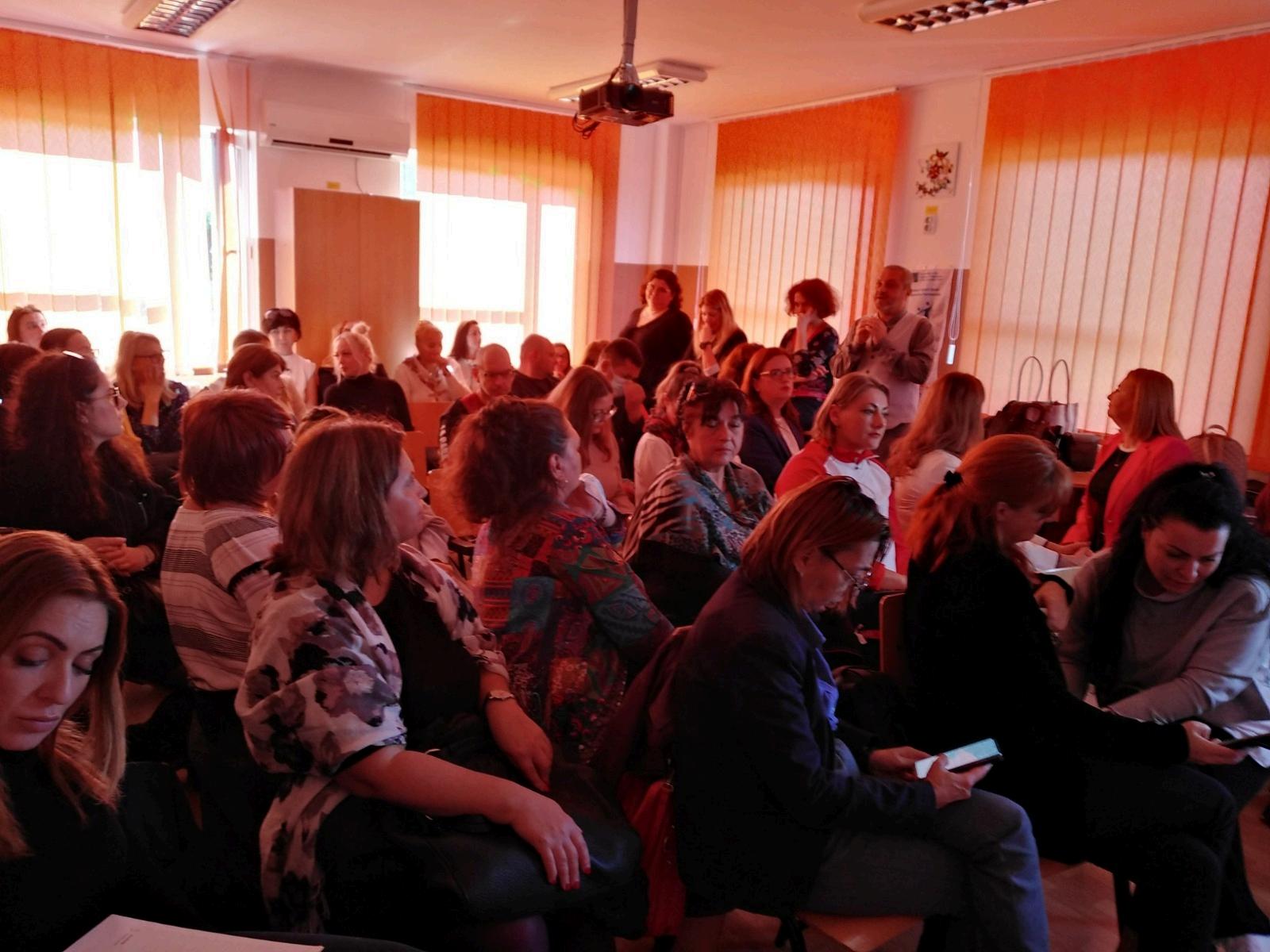
On the 21st of October, Olivia Grigore, labour market expert with HAO, participated in the Fact Finding and Local Activities Conference organised by the Youth Equality Promotion Association (ADAPTO), at the headquarters of the School Center for Inclusive Education “Albatros”. Strengthening public-private collaboration in order to organise inclusive sports activities was the main objective of the conference.
The social services offered to people with disabilities, using sports facilities by them and their relatives, strategies that could be applied in order to facilitate their access to these services and activities were some of the topics addressed during the event by specialists from non-governmental organisations involved in the integration of people with disabilities into society and by those from the public environment.
The project “Labour market Employment for young Adults with a Disability - LEAD” is funded by Iceland, Liechtenstein and Norway through the EEA and Norway Grants Fund for Youth Employment. the EEA and Norway Grants Fund for Youth Employment.
LEAD Project
75
Cristina Șerbănescu
Youth Employment Magazine
Interest for Supported Employment – specialised service for stimulating employment and integration on the labour market of people with disabilities
This was the main conclusion of the National Forum "Supported Employment - challenges, solutions, perspectives", organised on the 18th of November by Health Action Overseas Romania (HAO). The attendence list of the event included: representatives of public institutions engaged in disability policies, public and private providers of educational, social and employment services, human resources specialists from organisations and companies interested in assuring an inclusive work environment, young adults with disabilities, journalists.
The Supported Employment – viable solution for the integration of people with disabilities on the labour market
"We organised this Forum to discuss constructively about the wide spread of the Supported Employment model, as a solution for the integration of people with disabilities on the labour market. Why? Because Romania has an huge need for support services for these people. Let's not forget that there are about 850,000 people with disabilities in our country and less than 8% of adults with disability work. Why do we promote Supported Employment? Because it is a win-win model, based on a partnership strategy between the employee, the employer and the employment service provider, which it has successfully passed the test of time, both internationally and in Romania. It is time to offer as many people with disabilities as possible the chance to have access to this service", said Nicolae Dobrescu, Executive Director of HAO and Manager of the Labour market Employment for young Adults with a Disability project (LEAD).
Public-private task force for the issue of Supported Employment
During the event, Mihai Tomescu, the president of the National Authority for the Protection of the Rights of Persons with Disabilities (ANPDPD),
provided very good news to the participants. He talked about the Authority's concrete steps on the issue of Supported Employment, structured on three pillars: regulation, financing and organisational culture. In this context, Mihai Tomescu launched a public invitation to experienced non-governmental organisations to work together, within a public-private task force, with the aim of writing methodology for organising Supported Employment in our country. Regarding funding, the president of ANPDPD announced the negotiation of a program with European funding in the amount of 13 million euros.
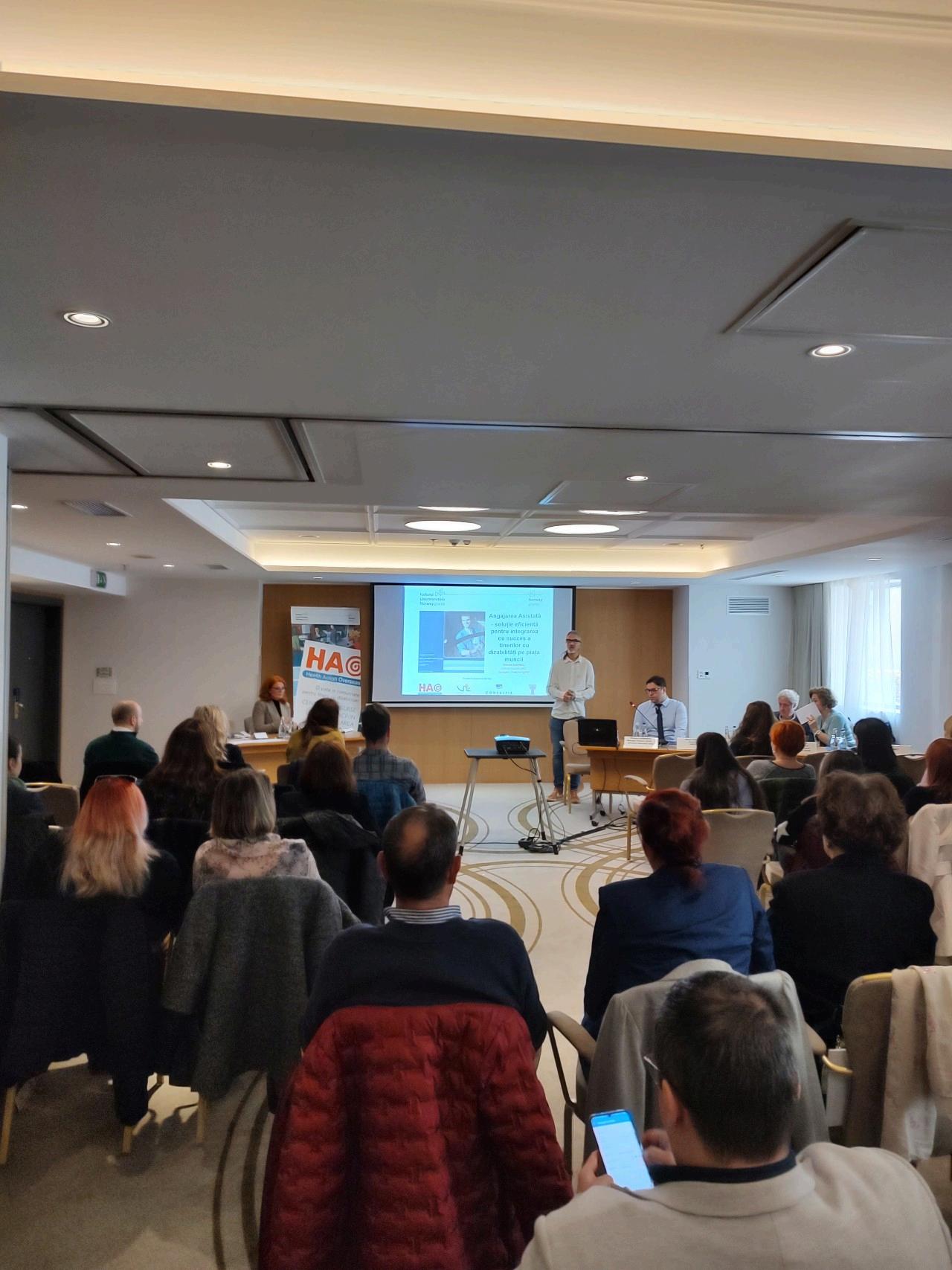
76
Youth Employment Magazine
Regard to the organisational culture, Mihai Tomescu emphasized the role of non-governmental organisations in changing the way the disabled person is perceived on the labour market. "You really change the inclusion practices, through your efforts, through the events organised by you! We need your support, experience and involvement. Let's write together the methodology for organising Supported Employment in Romania! Let's establish the legal framework, let’s finance Supported Employment and let’s put it to work!" said the president of ANPDPD.
Also, Răzvan Munteanu, representative of the National Agency for Employment, coordinator of the project "Facilitating the insertion on the labour market of people with disabilities", highlighted that the change of mentality regarding disability, and the collaboration of all the factors involved, both from the public and private sector are needed.
Supported Employment on the EUSE model, successfully implemented in Romania within the LEAD project
The presentation of Robert Elston, vice-president of the European Union of Supported Employment (EUSE) and Chief Executive, Status Employment (expert partner within LEAD project) was particularly well-received by the audience. Robert, which has 40 years of experience in Supported Employment, pointed out some theoretical and practical aspects regarding the successful application of this model. In the context, he talked about the principles and stages of Supported Employment. Also, he provided valuable information about ways of working with both person with disability and employer in order to achieve a successful, long-term integration of the beneficiary. At the same time, Robert Elston gave details about: his involvement in the EUSE activity, collaboration with HAO team within LEAD project, and about the support offered to our colleagues from Lithuania and Portugal, on the issue of Supported Employment.
Regarding Romania, Alina Dobrescu, Coordinator of the Supported Employment Programme, pointed out: "Since 2018, we have provided Supported Employment services, based on the EUSE model, within the LEAD project. In these years, we have achieved very good results both quantitative (practically all assumed indicators have been exceeded by
almost 100%) and qualitatively, aspect on which we particularly focused our attention. I am happy to say that our young beneficiaries have managed to get suitable jobs and keep them for the long term, to evolve, and to become respected members of the community, with adequate support, provided by our team "
Success stories - in Bucharest and in the country
A special section was dedicated to the success stories. For example, the participants had the opportunity to meet Diana, full-time employee with Pizzeria San Marco in Constanța, and to find out from Elisabeta Novac, the representative of the mentioned company, how the Supported Employment process is perceived by an employer who has collaborated with our team since 2018. "Ștefan was the first young man hired thanks to the HAO team. He still works with us. He was promoted and he is a valuable member of our team", said Elisabeta Novac.
On this occasion, we invited colleagues from other non-governmental organisations working with and for people with disabilities to present their good practices. Thus, Gabi Comănescu, director, "Motivation" Romania Foundation; Dalina Coșariu, social worker, "For You" Foundation, and Cristina Geană, vocational counselor, "Pro Act Suport" Association, talked about their success projects and programmes run for the benefit of children
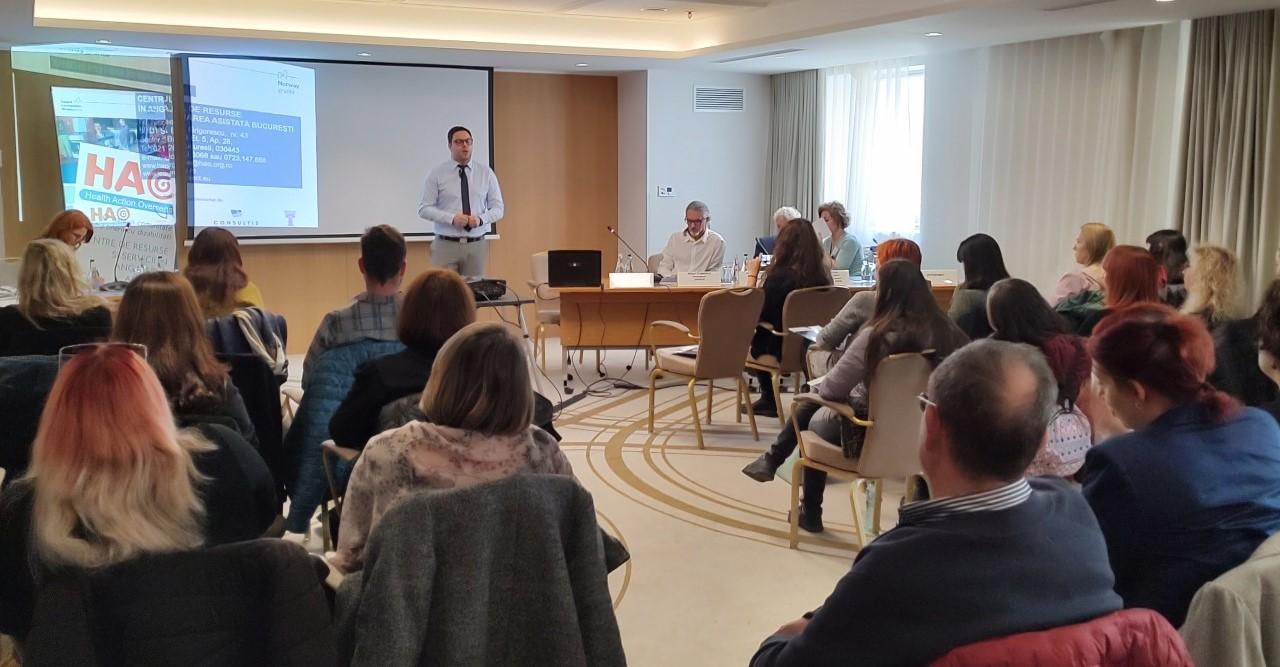
77
Youth Employment Magazine
and adults with different disabilities.
The project “Labour market Employment for young Adults with a Disability - LEAD” is funded by Iceland, Liechtenstein and Norway through the EEA and Norway Grants Fund for Youth Employment.
Cristina Șerbănescu
LEAD Project
78
Youth Employment Magazine
Lithuania: the Department for the Affairs of People with Disabilities under the Ministry of Social Security and Labour, Member of the National Network of Supported Employment Services Providers
Our colleagues from Valakupiai Rehabilitation Center (VRC) have put on the public agenda the issue of large-scale access of people with disabilities to employment services, in addition to their daily work dedicated to integration of young adults with disabilities into the labour market.
For example, VRC organised a round table, which was attended by representatives of: The Ministry of Social Security and Labour (including those of the Department for the Affairs of People with Disabilities), the Employment Services Agency, non-governmental organisations working with and for disabled people. The changes of the legislation regarding the integration of people with disabilities were the main objective of the round table.
During the event, the participants talked about the current situation on the Lithuanian labour market, and about the problems and challenges faced by people with disabilities who want to work. On this occasion, our colleagues pointed out: the results obtained within the LEAD project, the activities which have been organised so far, as well as the services offered to both people with disabilities and employers. At the same time, the need for a change of attitude towards people with disabilities was highlighted. At the same time, the VRC team has continued the process of expanding the National Network of Supported Employment Services Providers, created within the LEAD project in order to facilitate the implementation of Supported Employment methodology and to ensure the exchange of information between professionals in the field.
Furthermore, our colleagues have provided relevant information to representatives of public authorities and members of civil society, with the aim of raising the level of community awareness of Supported Employment services.
Thus, our colleagues have organised several public events and meetings, which were attended by representatives of the Department for the Affairs of Persons with Disabilities under the Ministry of Social Security and Labour (entity that became a member of the Network). At the same time, the cooperation relations with the Employment Services Agency (member of the mentioned Network) was strengthened.
The project “Labour market Employment for young Adults with a Disability - LEAD” is funded by Iceland, Liechtenstein and Norway through the EEA and Norway Grants Fund for Youth Employment.
Cristina Șerbănescu LEAD Project
79
Youth Employment Magazine
Young beneficiary of HAO, winner of a talent contest
On the 9 th of December, Secin, one of the beneficiaries of HAO, participated in the Ability and Talent event organised by the Together for the Future Association at the headquarters of the School Center for Inclusive Education “Albatros”.
The event included a contest, structured into 4 sections, namely: music, dance, art and diversity. This last section was won by Secin, who knitted a Christmas stocking, in front of the participants. Also, the young man presented other several items made with passion and attention by him. His performance was rewarded with money, gifts and applause. Secin proudly told about his passion for knitting and enjoyed beautiful moments, games and music with the other competitors and participants, according to our colleague, Olivia, who accompanied and encouraged him.
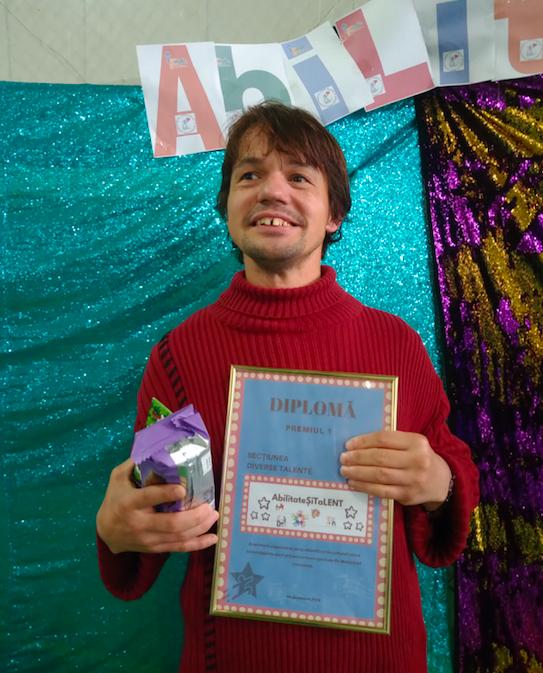
The project “Labour market Employment for young Adults with a Disability - LEAD” is funded by Iceland, Liechtenstein and Norway through the EEA and Norway Grants Fund for Youth Employment.
LEAD Project
80
Youth Employment Magazine
Your company has hired people with disabilities. Why did you make this decision?
Indeed, we hired three people with disabilities thanks to HAO. Dragoș and Edvin are beneficiaries of the LEAD project, but the third employee, namely Cristian, is not part of the project's target group. We noticed their desire to work, so we wanted to give them a chance at a fulfilled life, we wanted to offer them a solution. Although they have different disabilities, the young adults have a proactive attitude. They are receptive and attentive to perform their duties properly.The adaptation of young men to the status of employee was fast and without any particular problems, due to these aspects, and to the involvement of Alina Sachelaru (Supported Employment specialist with HAO). From the very beginning, I advised them not to be afraid, and to help themselves by helping. Now, all three are respected and valuable members of our team.
When did you start to collaborate with our team?
In 2021, when we established Altbox. The first employee was Dragoș, who worked initially as a manual packer. He was promoted, after a while. Now, he uses very well a packaging machine. Then, we hired Edvin, who joined the team as a graphic designer, and Cristian, who works in the digital department of Dacris. I had also another disabled colleague, but he has resigned because he found a better-paid job in IT.
How were they received by your colleagues?
My colleagues received them very well! They are like any other employee of the company. We don't make any kind of difference, but we take care to respect a few elements, so that they feel comfortable at work. I'm glad to tell you that they eat together, and they help each other at their jobs.
Furthermore, I noticed that they communicate even on the company's WhatsApp group.
How did you collaborate with our team?
Dragoș, Edvin și Cristian have received support from your team in order to prepare for the interviews, in the employment procedure, and after they started to work. Alina has kept in touch with me and the young adults, and she has been checking up periodically on the progress made by them.
I believe that Supported Employment is the only solution for integration of people with disabilities on the labour market. These people do not have strength, courage and self-confidence. They need guidance.
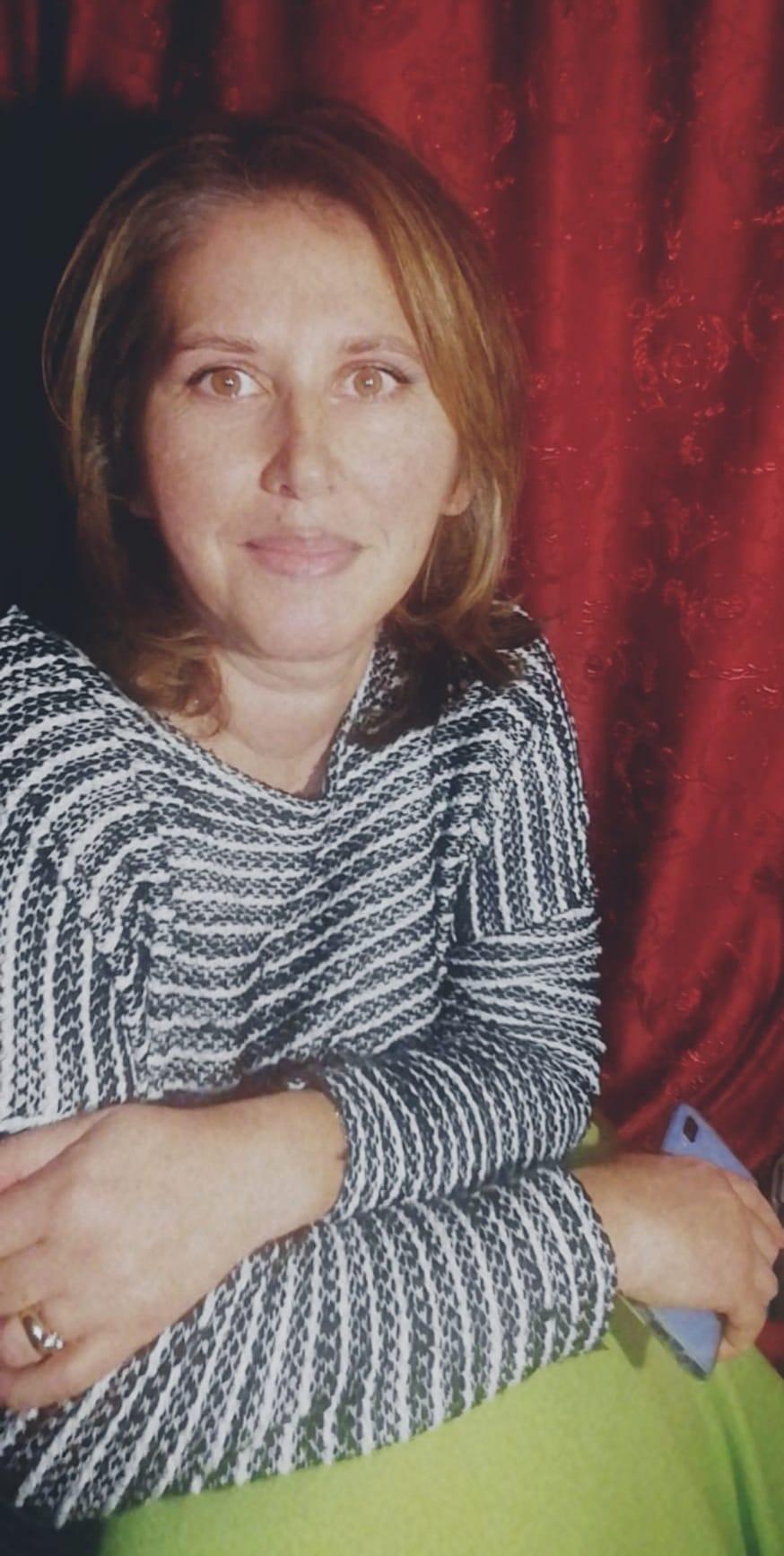
81
Interview with Cristina UDRESCU, human resources specialist at Dacris (company that offers printing services)
Youth Employment Magazine
“Supported Employment is the only solution for integration of people with disabilities on the labour market”
They need to know that someone supports them. They need to not be allowed to give up. For example, our colleague, Cristian, has great experience in both production and IT, and is a valuable employee of Dacris. However, he was unable to find a suitable job for a long time, until he met Alina, who recommended him to us. HAO helped us a lot; we would not have been able to find such involved employees.
Do you recommend to other entrepreneurs to employ people with disabilities? Why?
We wholeheartedly recommend to other employers, regardless of their activity field, to work with people with disabilities. Disability is one thing, the desire to work is another! People with disabilities have a special ability to evolve, they come up with solutions that we don't think about to, and they perform very well tasks assigned to them. These people want to be respected members of society and they work in order to get there. They worth a chance!
Thank you for your kindness to have us interview you and we wish you good luck in business!
Cristina Șerbănescu
82
Youth Employment Magazine
LEAD Project
"Trust yourself!"
Interview with Oana POPA, commercial worker at Carrefour

love to travel with my parents, but I like to walk around important places to me, also.
What did you do after enrolling in the LEAD project?
I talked to Olivia about what I like and what I wish to do, so she could get to know me better. She figured out what kind of job is suitable for me. She noticed that I like to take care of myself, and I love to choose nice things for myself, and she thought of finding me a job in a clothing store. Firstly, I tried to get hired at Decathlon, but they did not employ me. Then, Olivia helped me obtain an interview at Carrefour. I knew the supermarket, because I used to go there often and I liked it very much, from the very beginning. Fortunately, I was hired. Now, I work in the clothes department and I am very happy. I have kind colleagues, who received me with open arms, and with whom I get along very well.
What did our project enable you to do?
How did you find out about the LEAD project?
I found out about this project from a former teacher, when I was taking cosmetics and massage classes at the School Center for Inclusive Education “Albatros”. She recommended that I enroll in project. I liked this idea, so I went to the Services Center for Supported Employment, where I met Olivia.
Why did you want a job?
I really wanted to get a job in order to become independent. I did not like to ask my parents for money for clothes, going out, and so on. I graduated high scool, I went at the University, but I dropped out studies, because I found it very difficult. Then, I took those courses at School Center for Inclusive Education “Albatros”, but I didn't have a paid job until I met Olivia.
What do you like to do?
I like to go to opera and to theater, and I enjoy very much classical music. I
I learnt to have more confidence in my strength. Also, I found out a path in life. When I joined the project, I didn't know what to do with my life.
What are your plans for future?
I have two goals: to maintain my job and to start a family.
What message do you have for people with disabilities who are looking for a job?
I advise them to trust themselves, and to have faith that they will find a suitable job for them! I urge them to do not lose hope and to ask for support from NGOs, for example. I advise them to go to the Center (the Services Center for Supported Employment from Constanța)! It was the best solution for me!
Cristina Șerbănescu LEAD Project
83
Youth Employment Magazine
"Don't give up!"
Interview with Eduard URSACHE, commercial worker at Decathlon

How did you find out about the LEAD project?
I was looking for part-time jobs on internet. One day, I read an announcement on an online platform, and I called the Foundation to find out more details. I met Alina Sachelaru (Supported Employment specialist at HAO). Although I live in Târgoviște and she works in Constanța, Alina said that she could help me get a suitable job. I sent to her all the necessary documents and I registered as a beneficiary of the LEAD project.
What were your biggest concerns as an unemployed, young person?
I graduated the School of Arts and Crafts eight years ago. Since then, I have been looking for a stable job, because I have really needed to support my father. I worked in construction and in agriculture (without an employment contract), and I volunteered at a church. I was afraid that I would not be able to get a job.
What do you like to do?
I was diagnosed with left spastic hemiparesis. Many years ago, I was advised to go swimming, because it would help me. I was able to overcome my fear of water and I learnt to swim, thanks to a good teacher. Then, I fell in love with the swimming. I swam for five years, but I had to give up because of my family financial problems. I would have liked to work as a swimming coach.
What did you do after enrolling in the LEAD project?
I talked to Alina, so she could get to know me better. She helped me make a proper resume and upload it to online apps. Also, she encouraged me to apply for a job to Decathlon. I was called for an interview, and in September I was hired. Now, I am a cashier and I am very happy. I get along very well with my colleagues.
What did our project enable you to do?
It enabled me to do exactly what I wanted the most: to get a stable job. Now, I can help my father and I can give myself nice things. In addition, I learnt to have more confidence in my strength.
What do you do in your free time?
I help my father, and I like to relax and to go out with my friends, sometimes.
What are your plans for future?
I want to build a successful career with Decathlon and I would like to start a family, one day.
What message do you have for people with disabilities who are looking for a job?
Don't give up! Ask for support! A job is a step forward to a better life!
Cristina Șerbănescu LEAD Project
84
Youth Employment Magazine
International project Opportunities4autism (2020-1-PL01KA202-081445) a good practice for European employers in the area of Corporate Social Responsibility
often really want to work and have many strengths that can make them potentially outstanding employees (i.e attention to detail, loyal, reliable) (Redman, S. et al., 2009).They simply need assistance to overcome the barriers and difficulties they face. Across Europe, there is a serious lack of education and training that could give people with autism the vocational, social and communication skills that are required for employment.
The Erasmus+ founded project Opportunities4autism (2020-1-PL01KA202-081445) results are directly conected with supporting employment people with autism spectrum and are presented as follows:

Autism is a lifelong developmental disability. It is a spectrum condition also referred to as an autism spectrum disorder (ASD). The word ‘spectrum’ is used because while all ASD people share three main areas of difficulty (social communication and interaction, flexibility of thought) the condition affects people in very different ways. Some are able to live relatively independent lives, while others will require a lifetime of specialist support. Project Opportunities4autism encourage potential employers to give each person with ASD, the right support in the workplace.
Today, between 1 in 100 and 1 in 150 individuals are diagnosed with autism, amounting to around 3.3 million people with autism in the European Union (Autism-Europe, 2009). Studies indicate that across the European Union between 76% and 90% of ASD adults are unemployed (The National Autistic Society, 2013). Given that individuals with autism often struggle with the social and communication aspects of work (i.e understanding instructions, interviews, working in a team) these statistics might not seem surprising. However, the greatest employment obstacles that people with ASD face are not caused by their disability but by lack of access to opportunities and by stigma and discrimination in relation to their condition (Autism-Europe, 2014). Despite that, adults with autism
• The Opportunties4autism Training package including the “Opportunities4autism” VET trainer curriculum (IO1), opportunities4autism” VET trainer Manual (IO2), the “Opportunities4autism” Practical Guide for employers and managers“(IO3)
• An e-learning platform on which the outcomes of IO1, IO2, and IO3 are uploaded in order to be used by VET trainers and employers and managers. The learning platform is also integrate a set of Open Badges sponsored by an Open Badge provider, which is automatically linked with the assessment process of the courses so that, upon completion of a course, the trainee receives an electronic token that is attachable to their electronic resume in order to demonstrate the acquirement of the skill.
The project has the following objectives:
• Understanding the benefits of a neurodiverse workforce
• Understanding autism
• Increasing awareness of the difficulties an ASD person may face at the workplace
• Creating an autism-friendly recruitment process.
85
Youth Employment Magazine
When a person with ASD does seek employment, regardless of whether they managed to gain a relevant education or not, they are often faced with stigma and discrimination related to their autism. Even if a person does not reveal their condition to a potential employer, chances are they will be turned away because employers interpret their communication and social interaction difficulties as clear signs that they are not suitable employees, instead of seeing that with specific forms of support the individual could perform well in the job. Furthermore, for those who do manage to gain a job, keeping it is another challenge, as the combination of inherent difficulties, lack of support and social attitudes can be overwhelming for a person with ASD (Autism-Europe, 2014).
More about the Opportunities4autism project you can find on webiste: www.opportunities4autism.com
Beata Mintus, Poland
SEPAL Project’s contribution
86
• Designing an autism-friendly workspace
Youth Employment Magazine
Contributors & Credits
CONTRIBUTORS
From the Fund Operators
Mateusz Wiśniewski
Francesca Bombarda
Sara Barbi
External Contributors
Thomas Mc Grath
Mathias Marchioni
Lai-momo
Alessandro Rosina
From the Projects
Guro Øydgard
Janne Breimo
Ann-Torill Tørrisplass
Kamila Wodka
Natalia Truszkowska
ATIS TEAM
Anna Saroukou
Joerg Schoolmann
Sengkergki Dimitra
Alina Adomnicăi
Petya Atanasova
Elka Bozhkova
Tsvetelina Petkova
Yuri Katsarov
Vyara Gancheva
Teodora Ivanova
Dunja Buchhaupt
Kiz Sinnova
Nicolae Dobrescu
Cristina Șerbănescu
António Silva Dias
Beata Mintus
Anastasia Vlachou
Savvas Pavlidis
Eszter Szonyi
Kristina Barać Petrović
Monika Peter Tzvetkova
Maria - Evangelia Gretsi
Laura Pacareu Flotats
Ioannis Papageorgiou
DIRECTOR
Gian Luca Bombarda
87
Youth Employment Magazine
born with the intention of sharing the results and updates of the projects participating to the Fund to showcase the main achievements of implemented activities. Follow us: www.youthemploymentmag.net
Contact us: themag@youthemploymentmag.net
Official number: 3380/2019

FUND OPERATED BY:

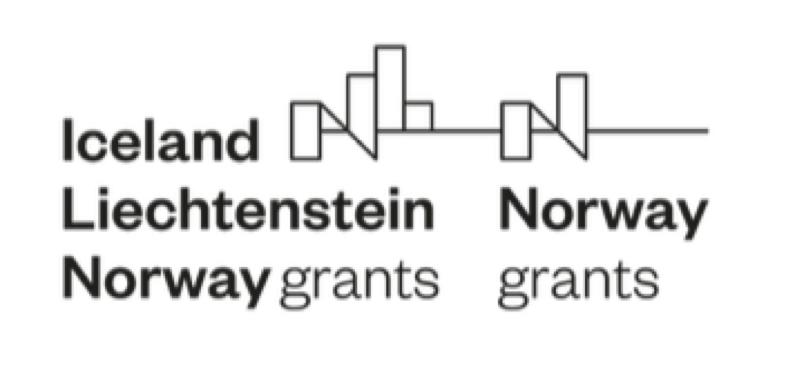
88
Youth Employment Magazine
The contents of the Magazine are the sole responsibility of the authors and can in no way be taken to reflect the views of the Donors.
miss the Youth Employment Forum! Go to the Forum
Cover image: free image Don’t






 Our Irish Journalist
Our Irish Journalist

































































